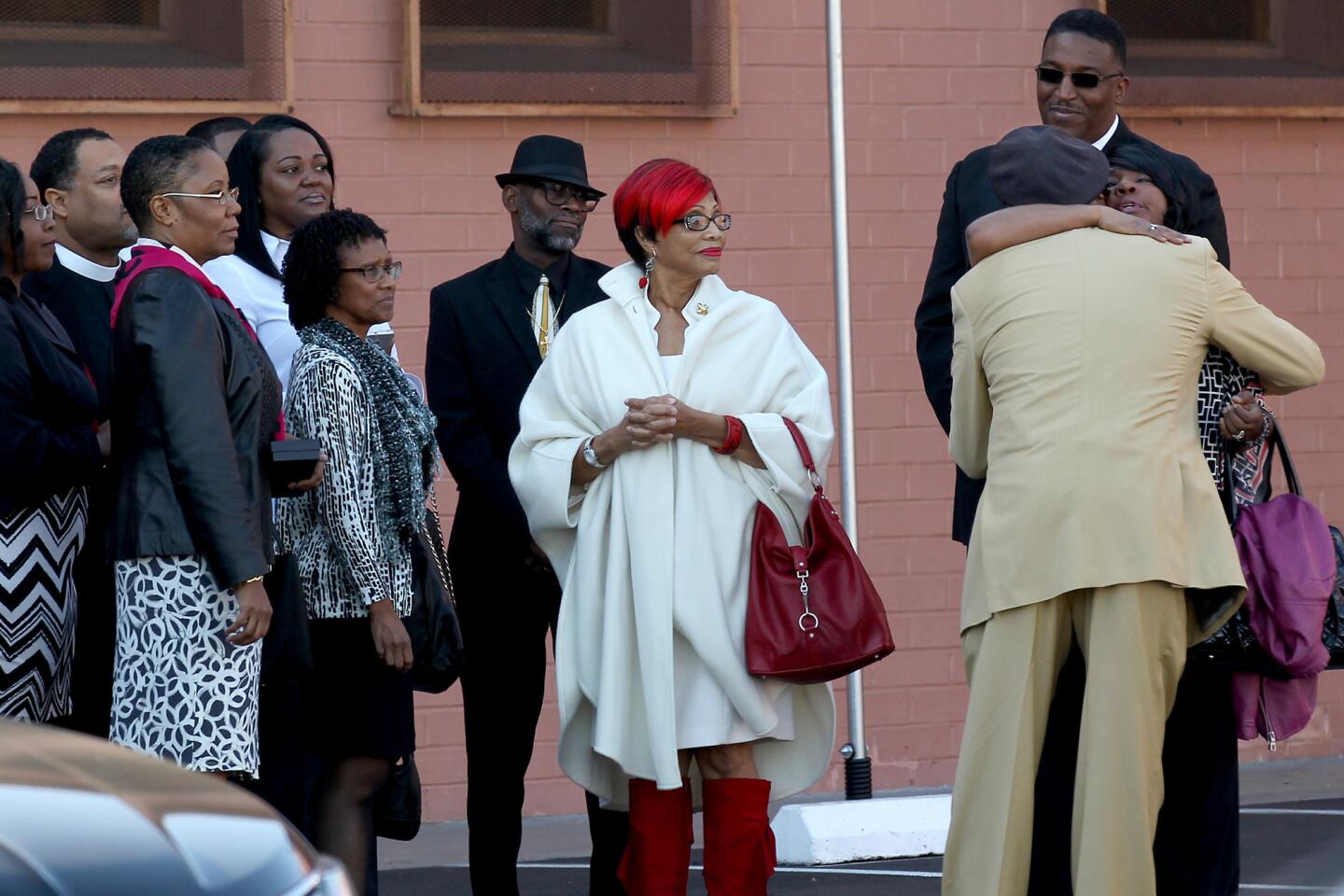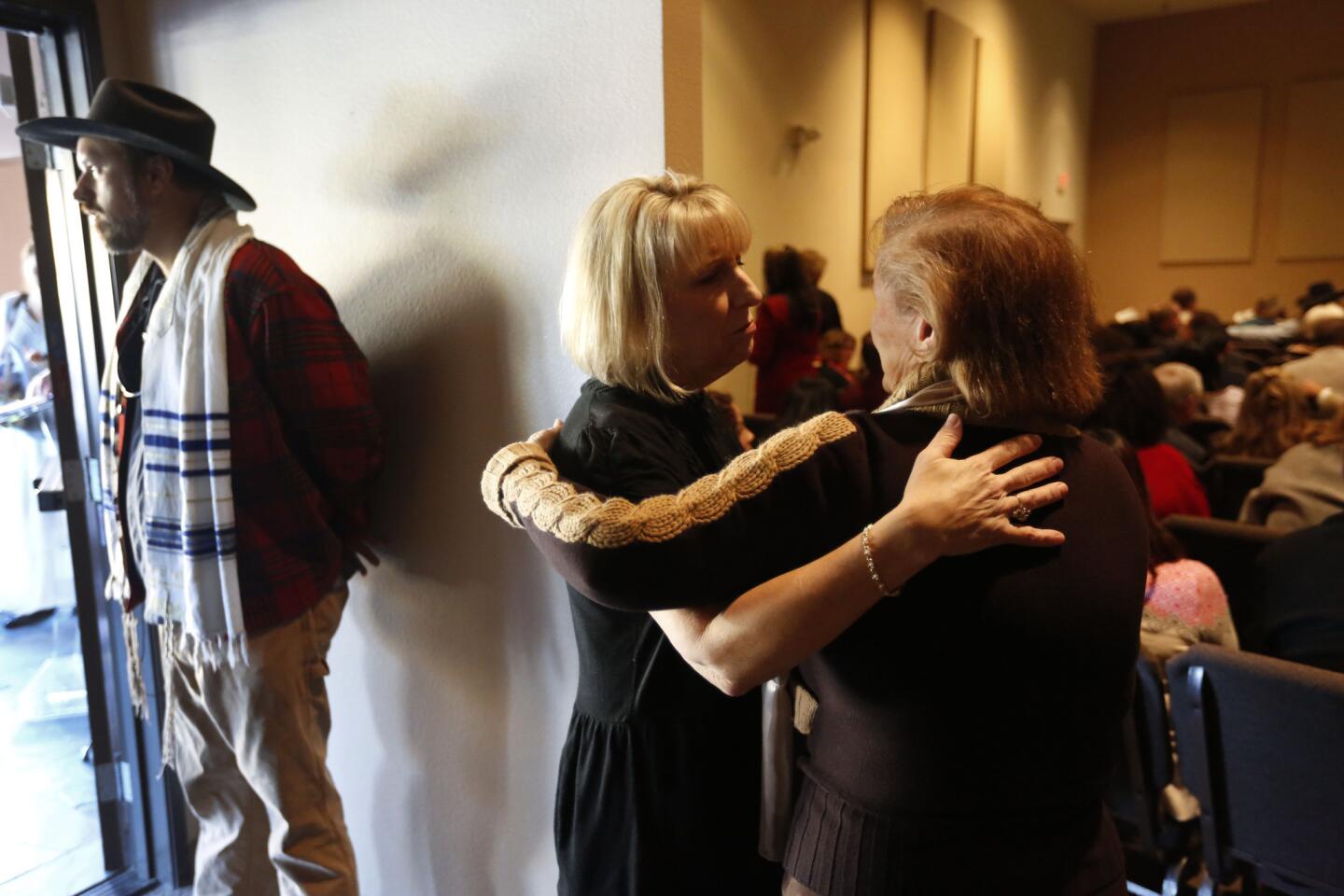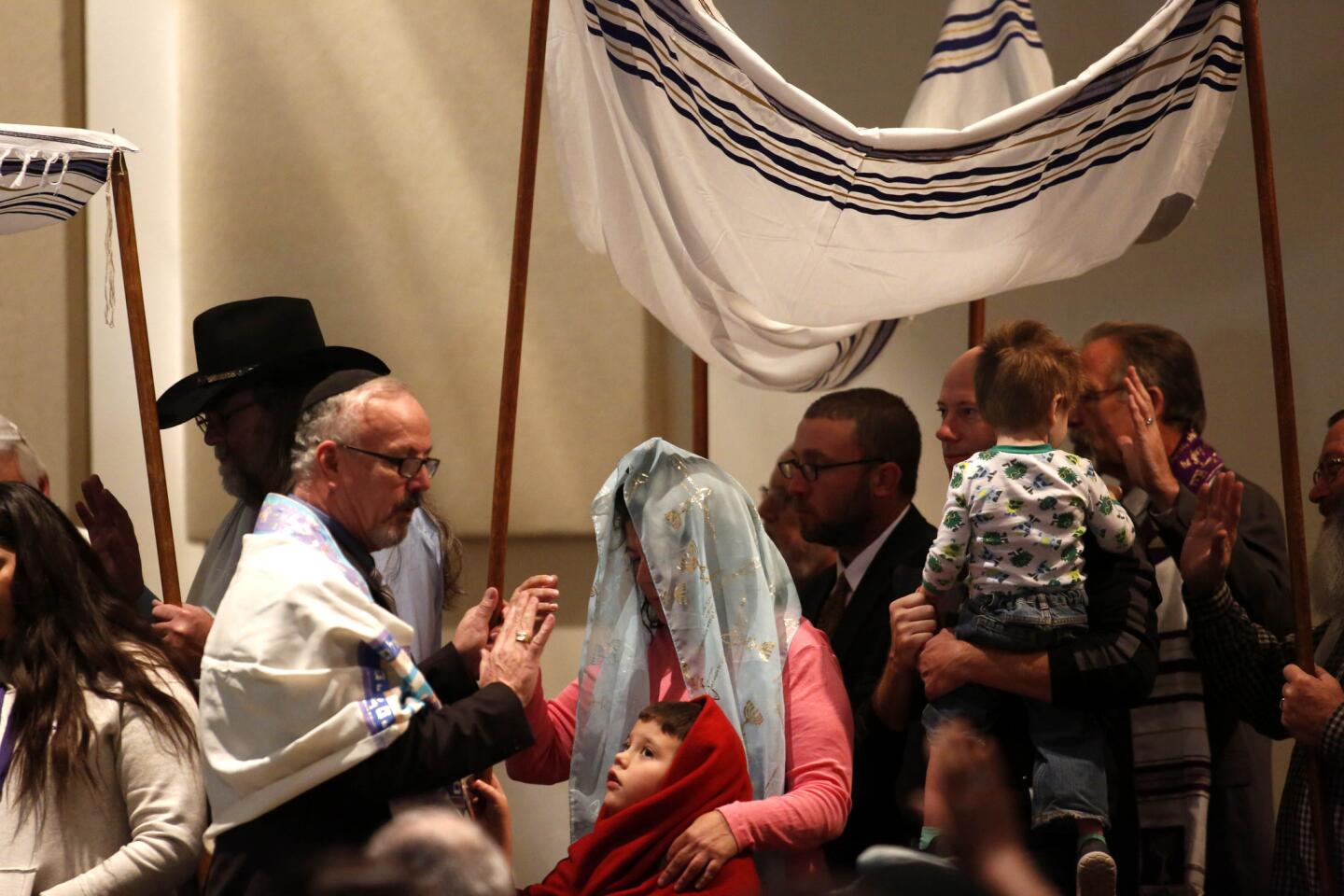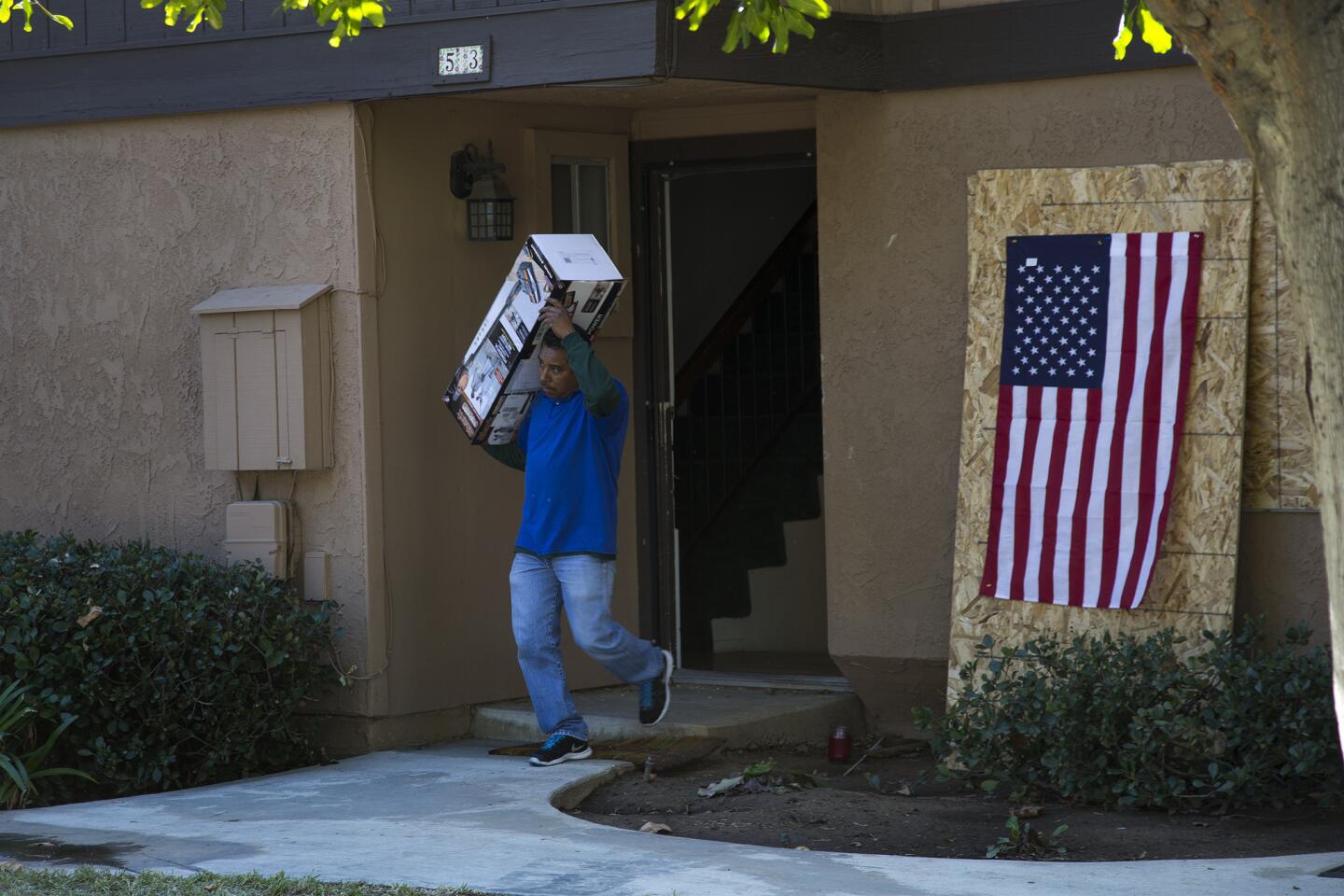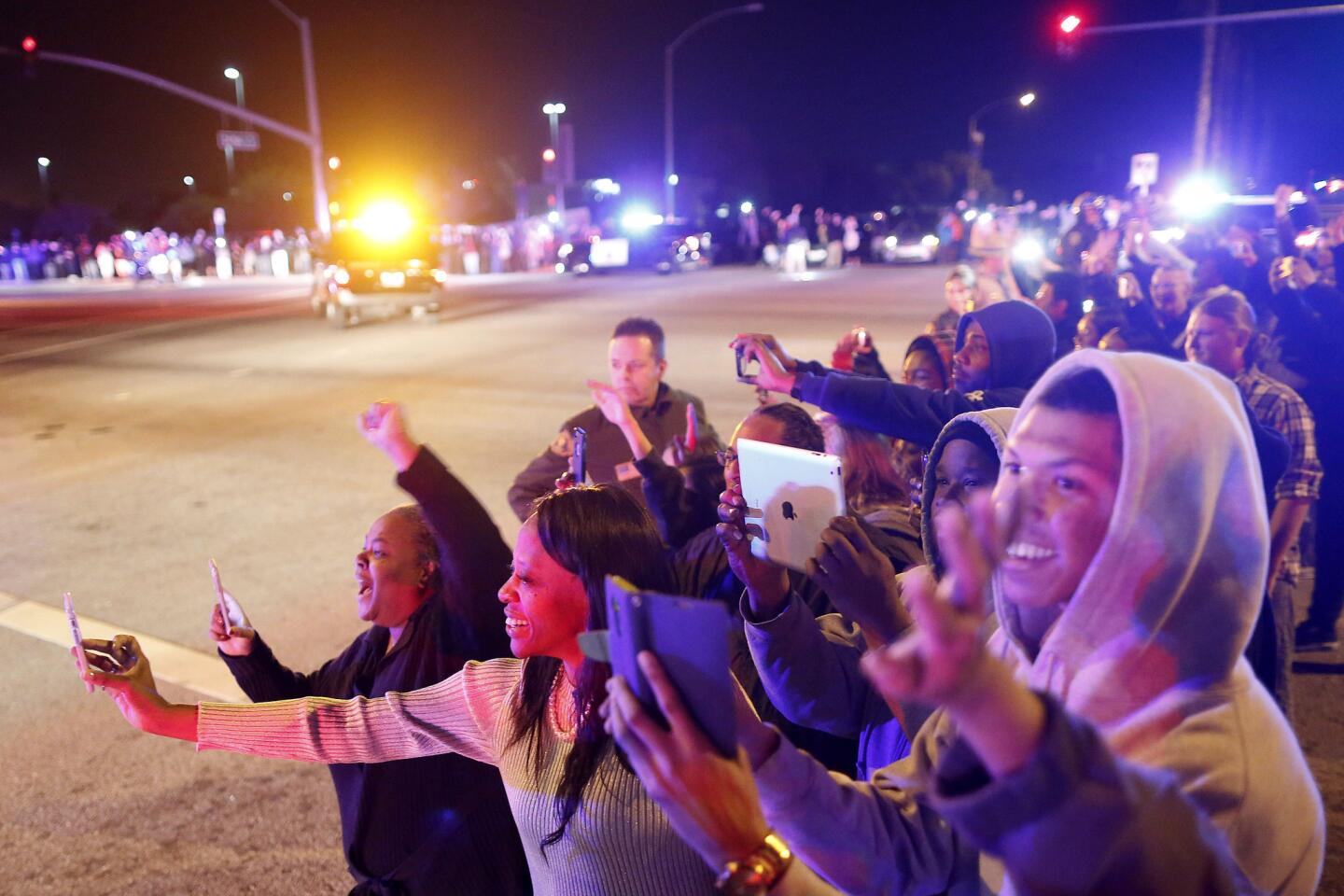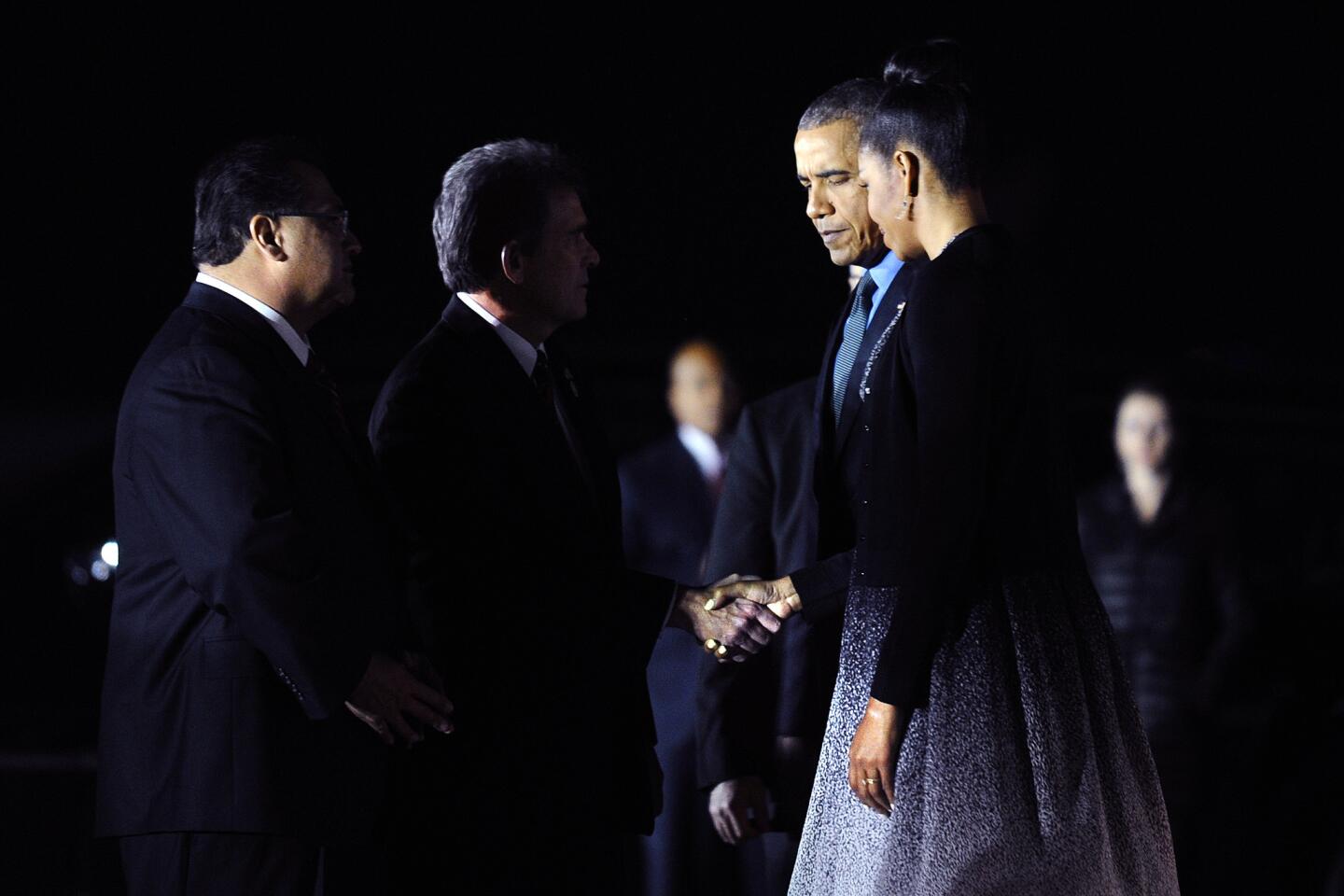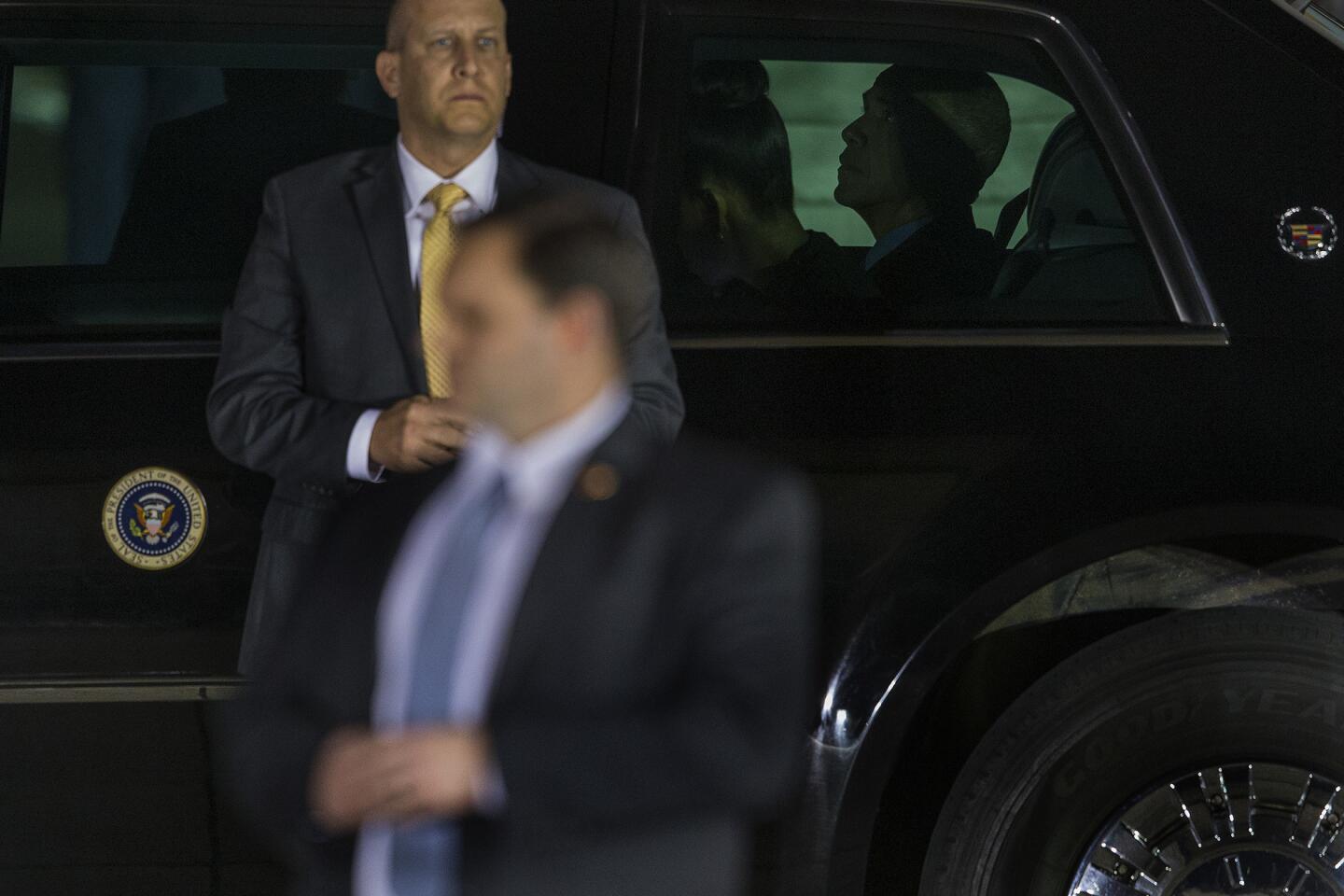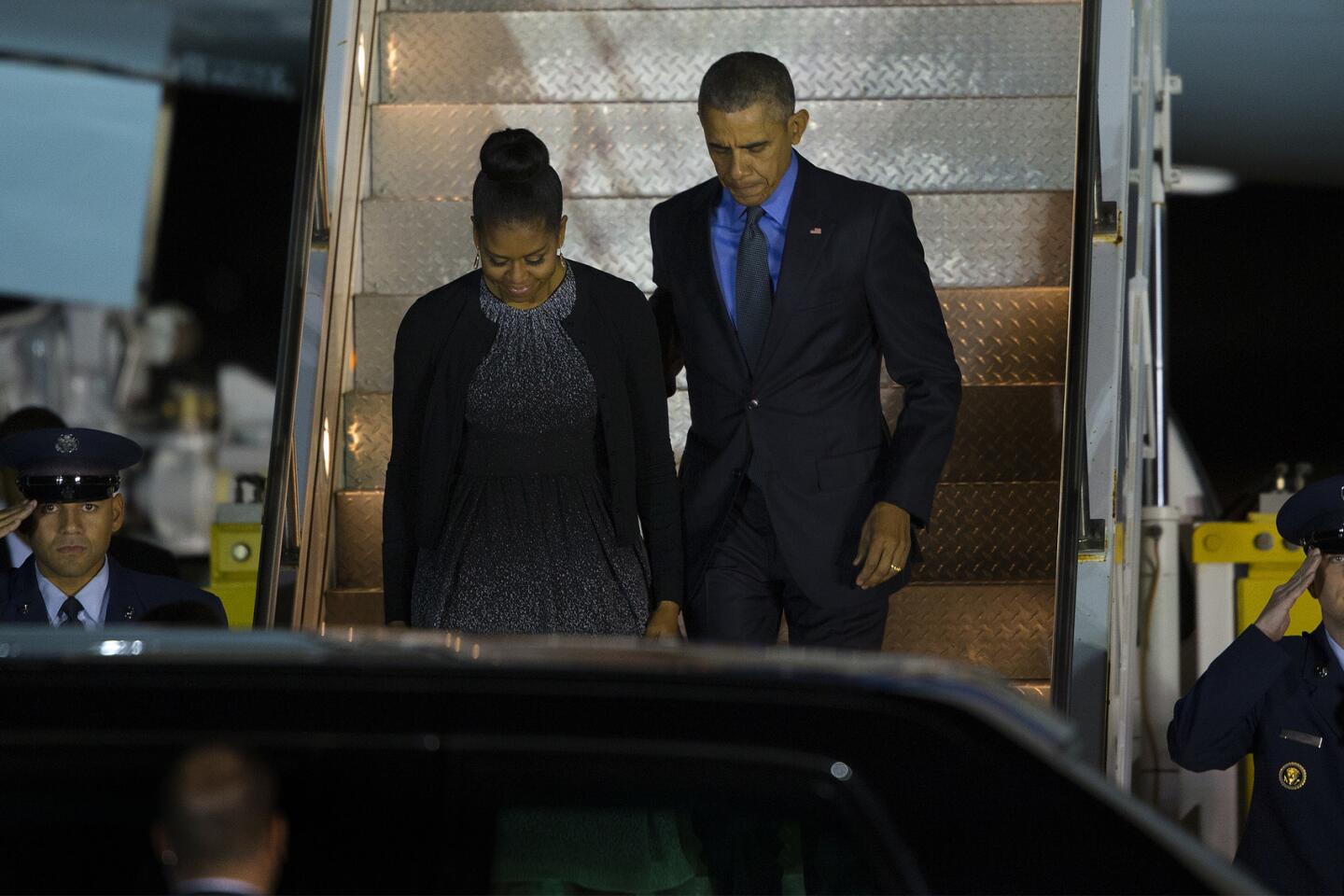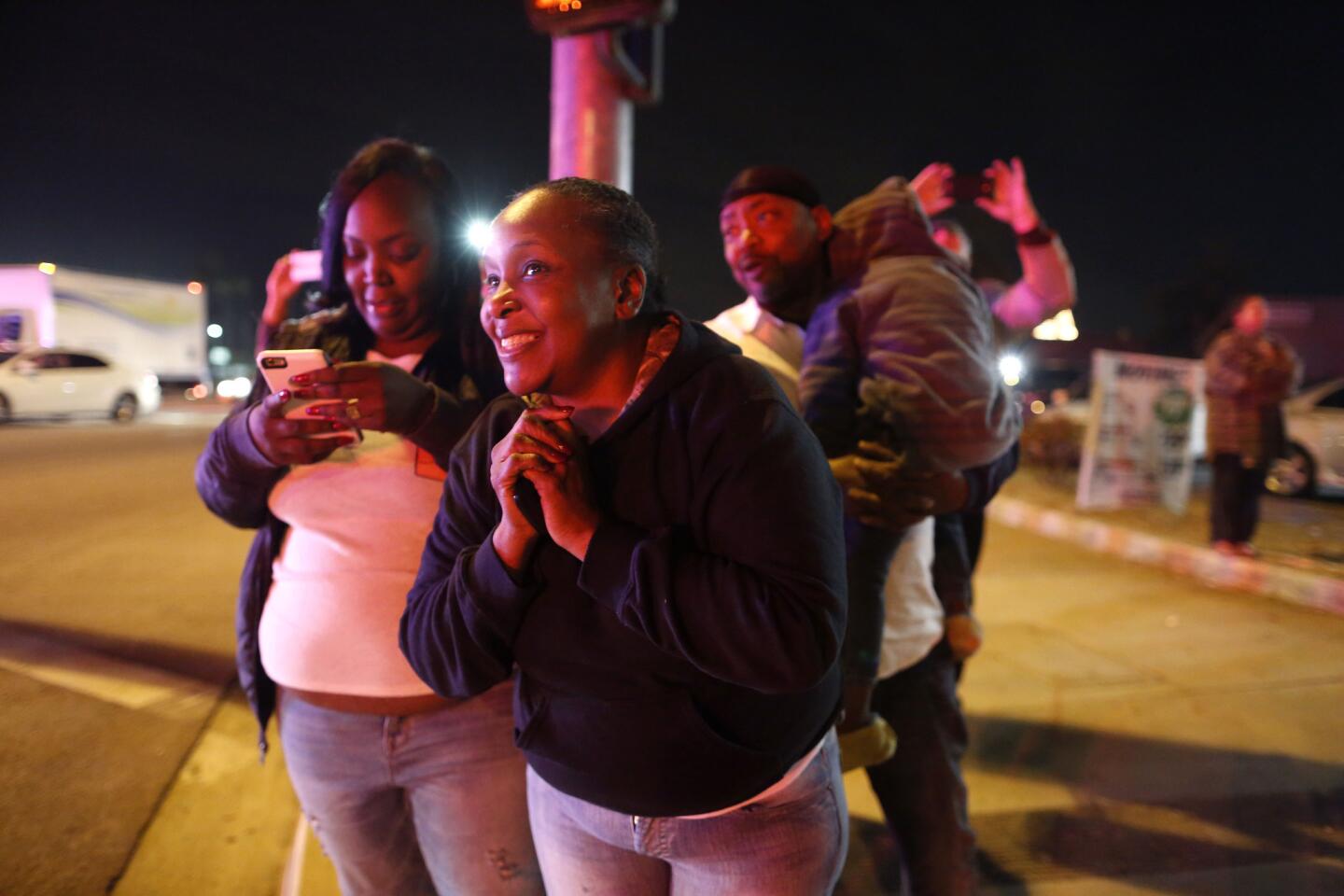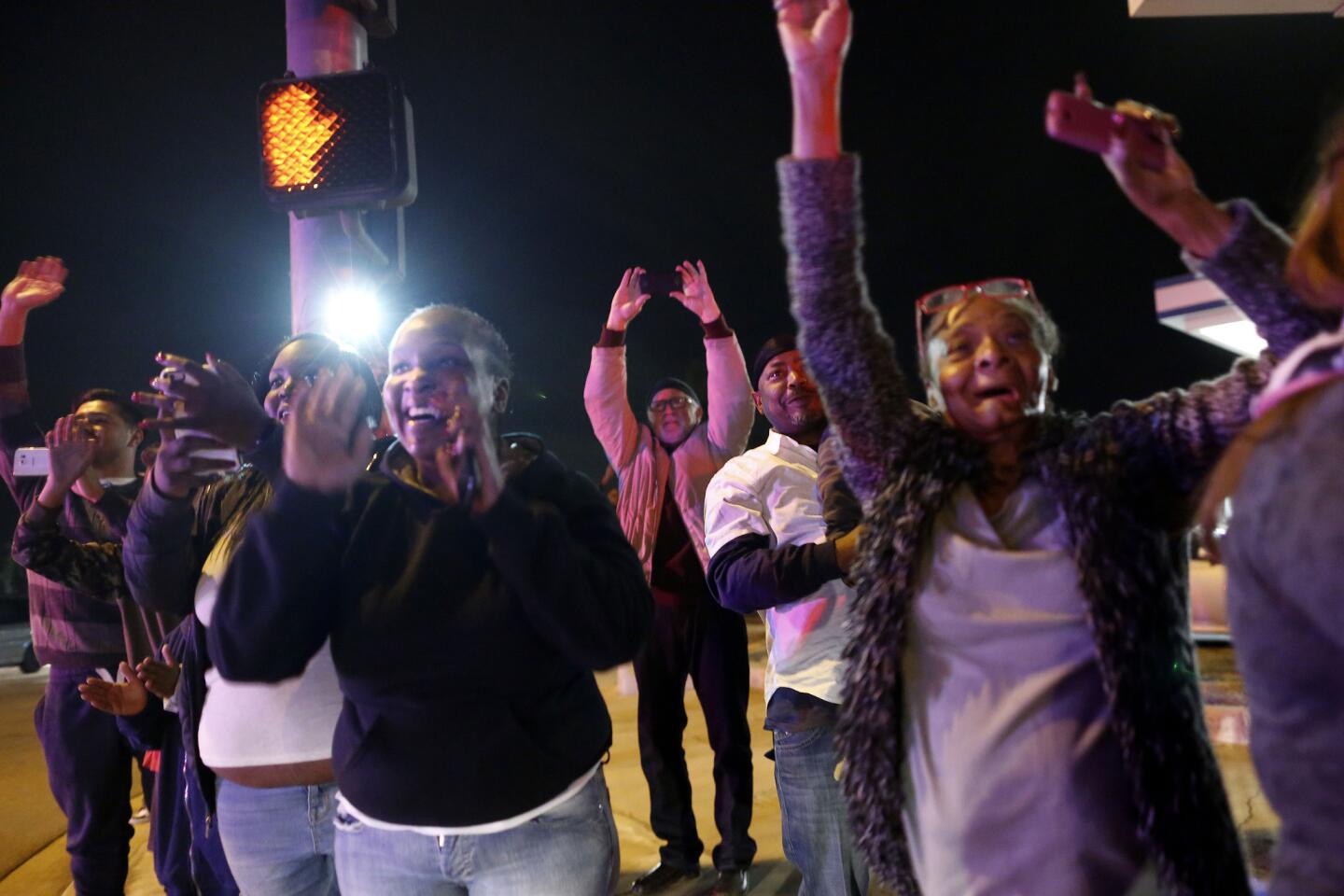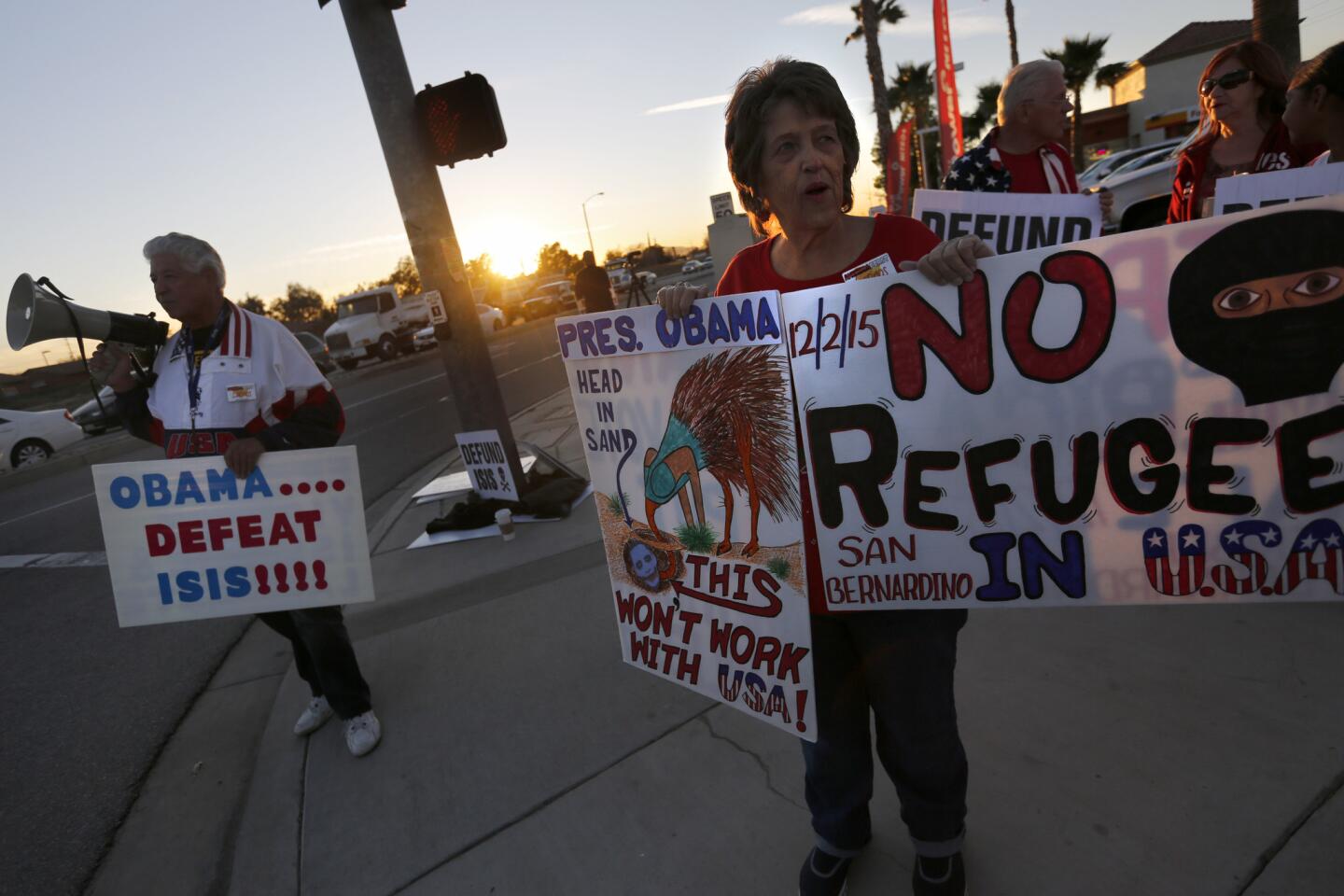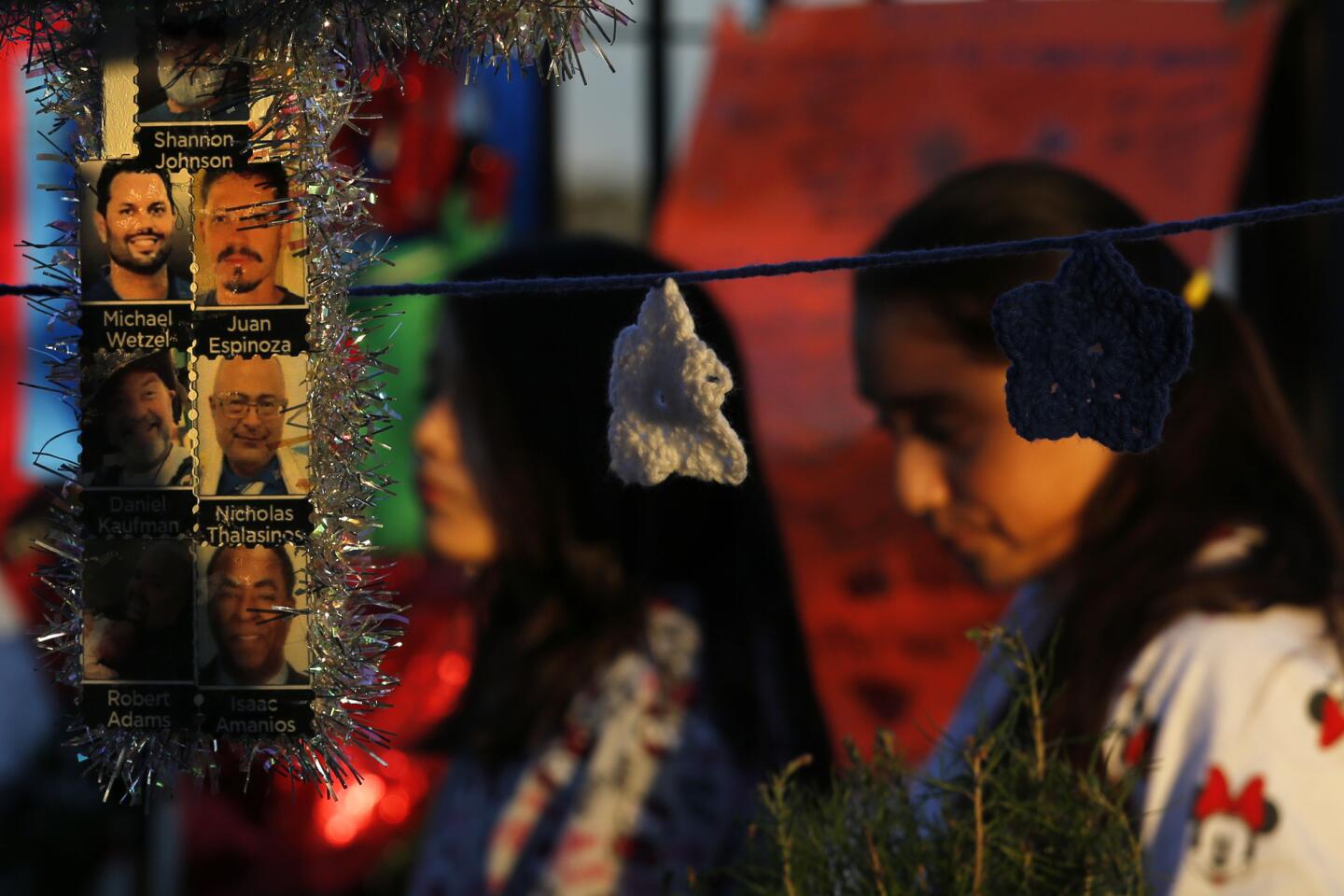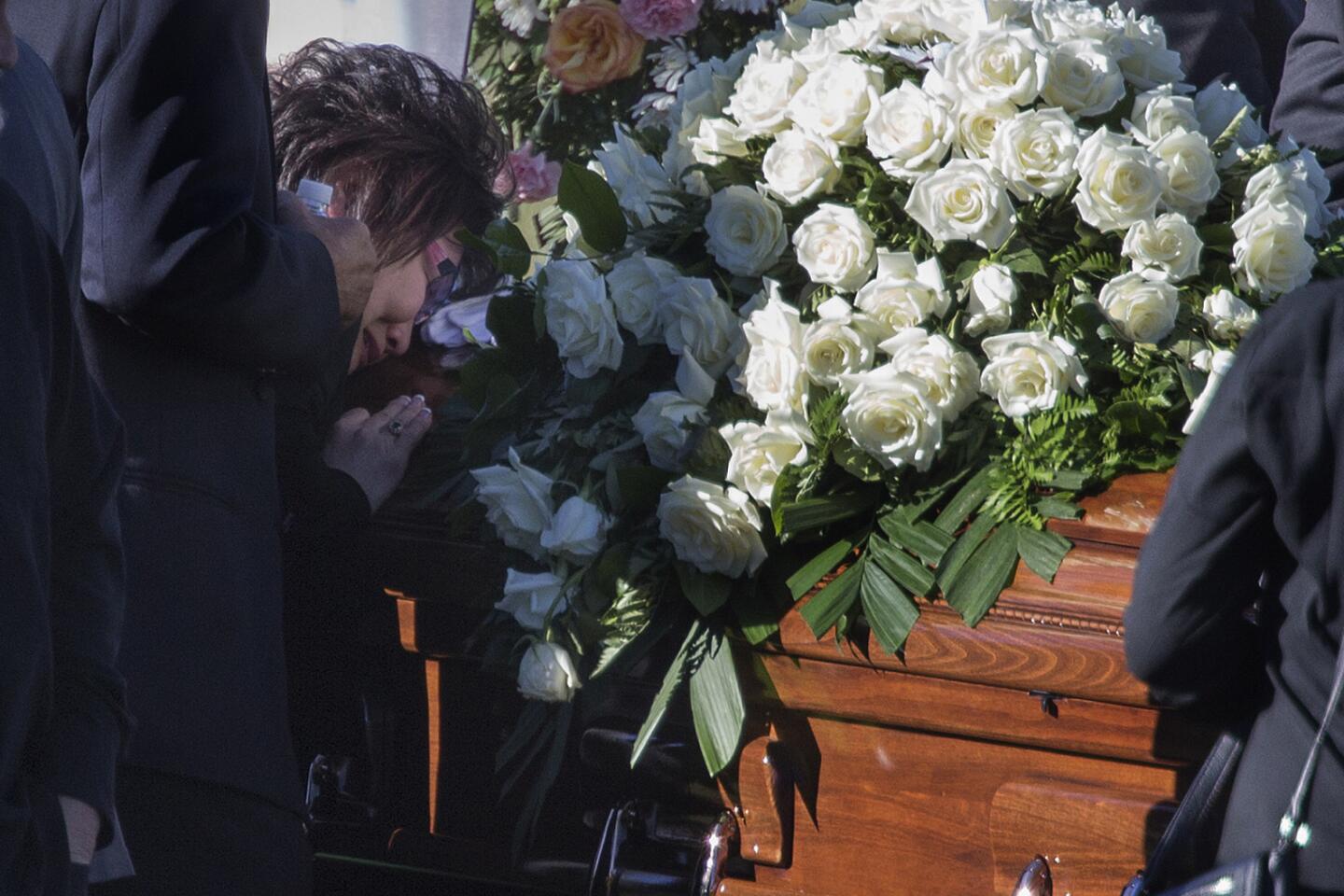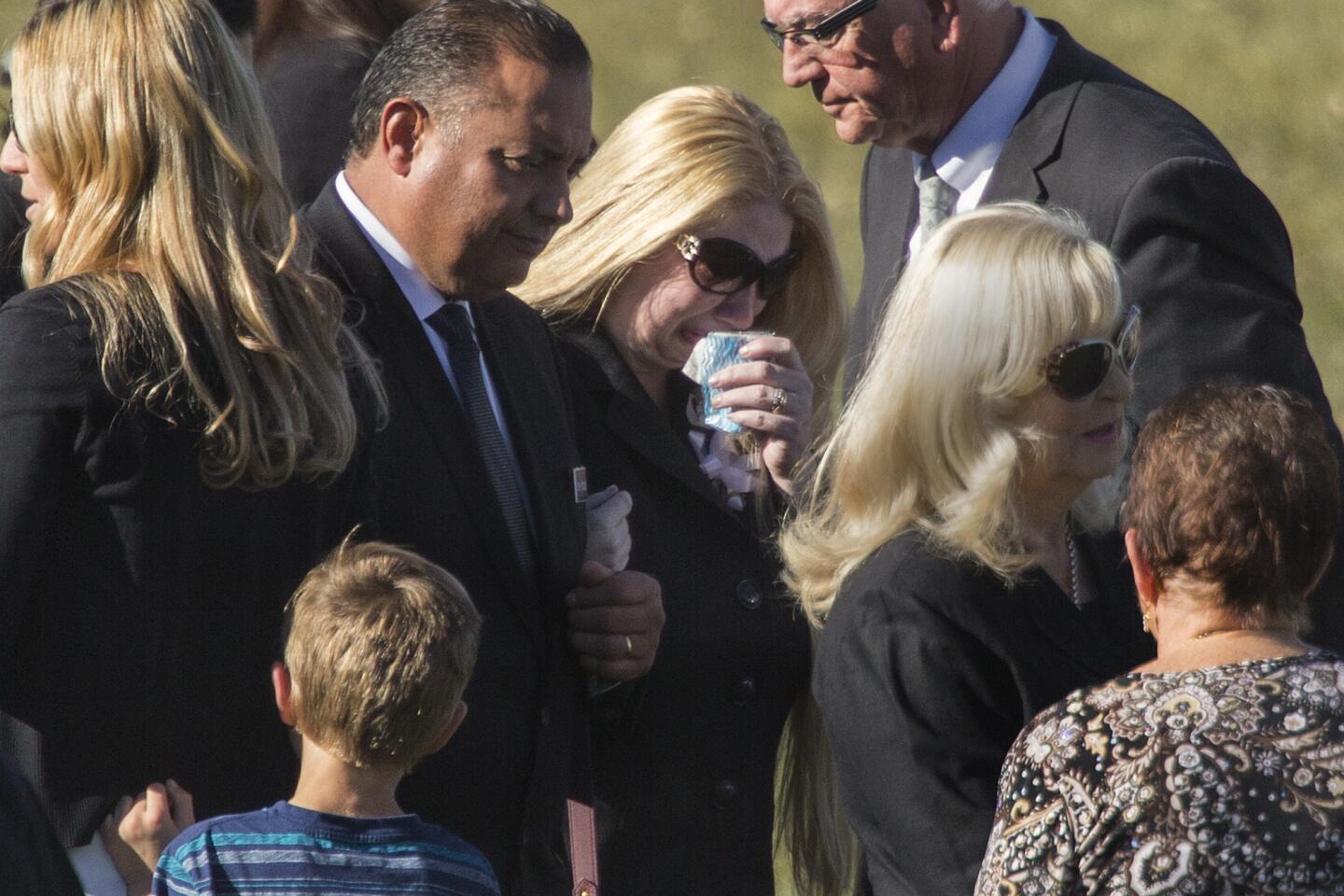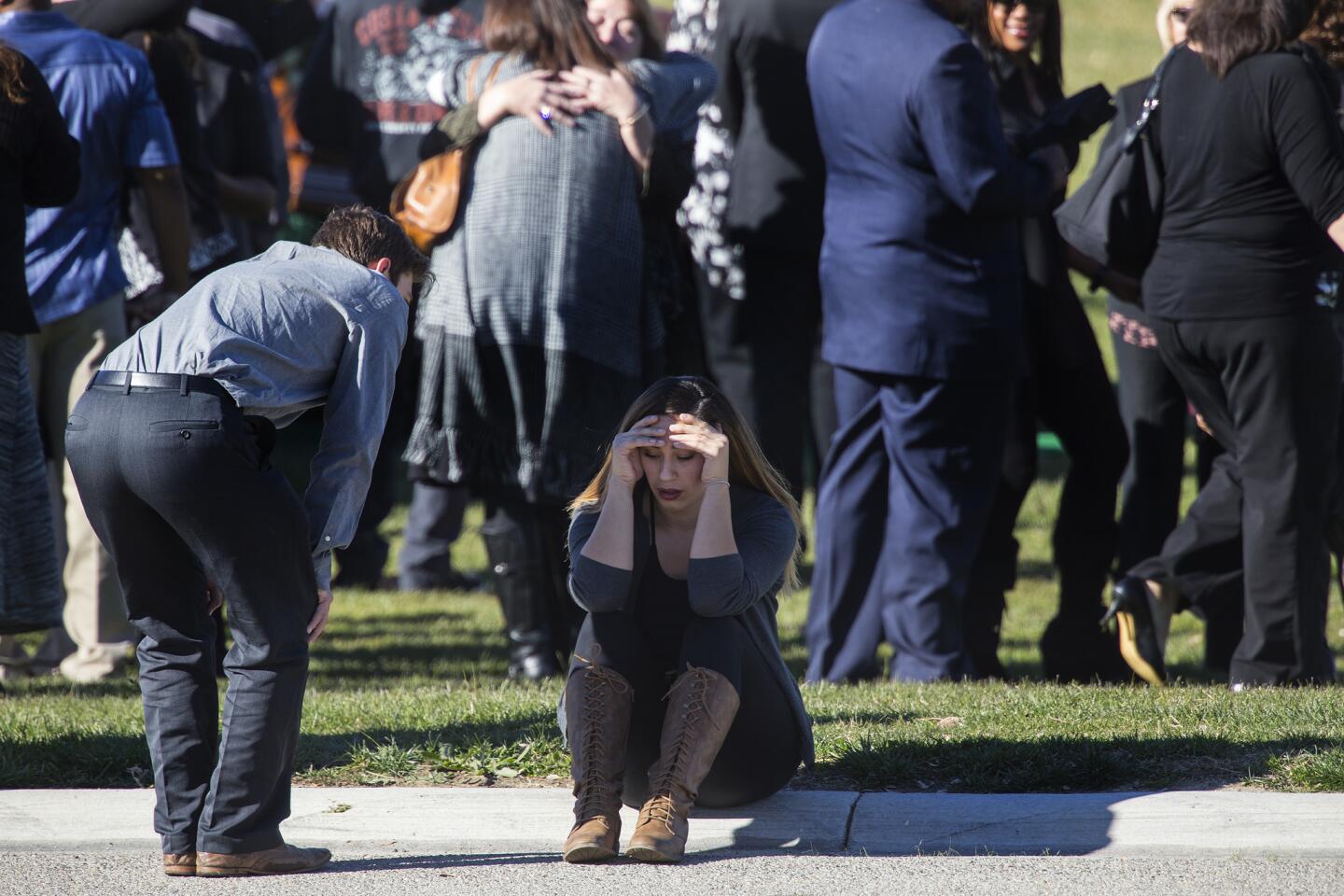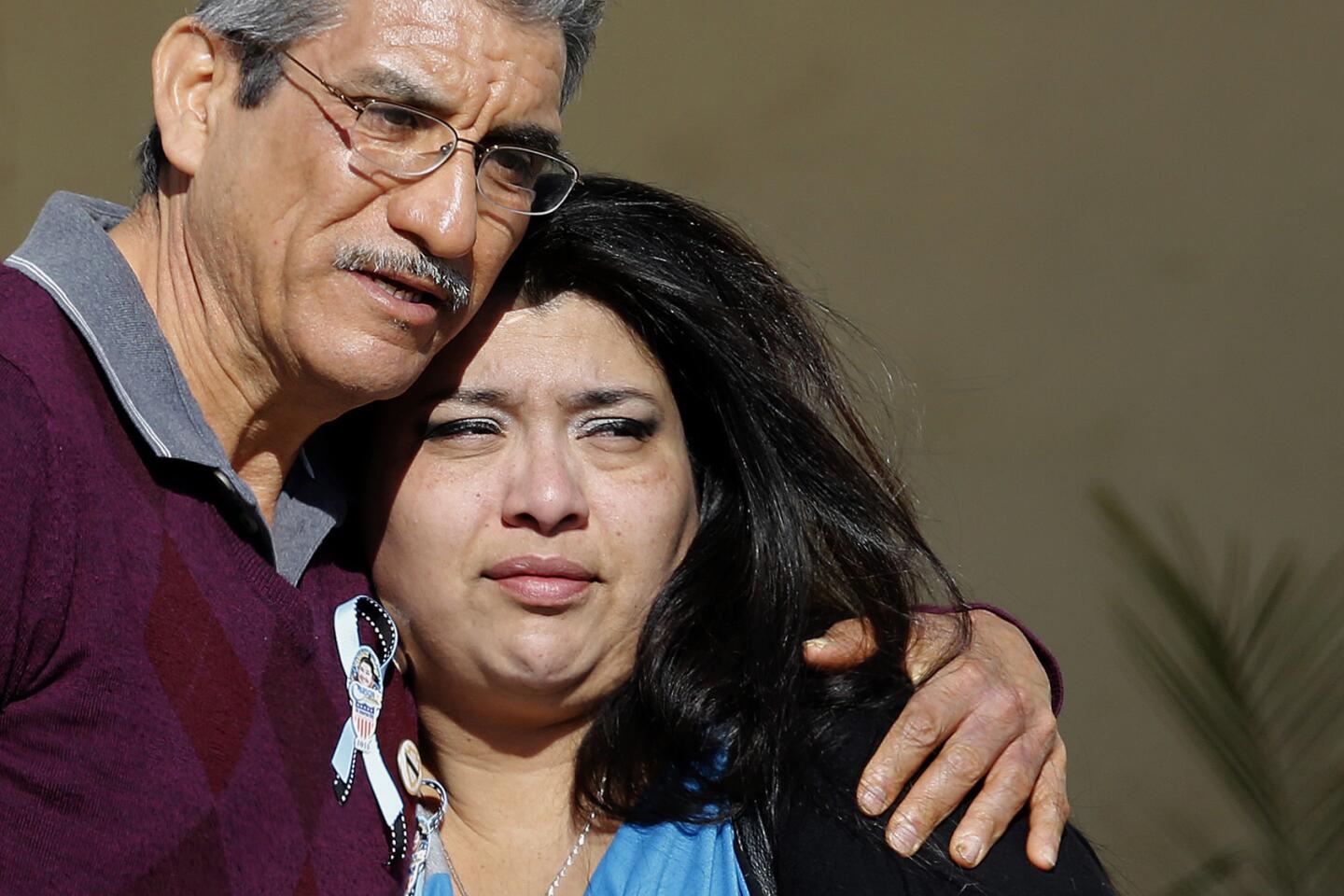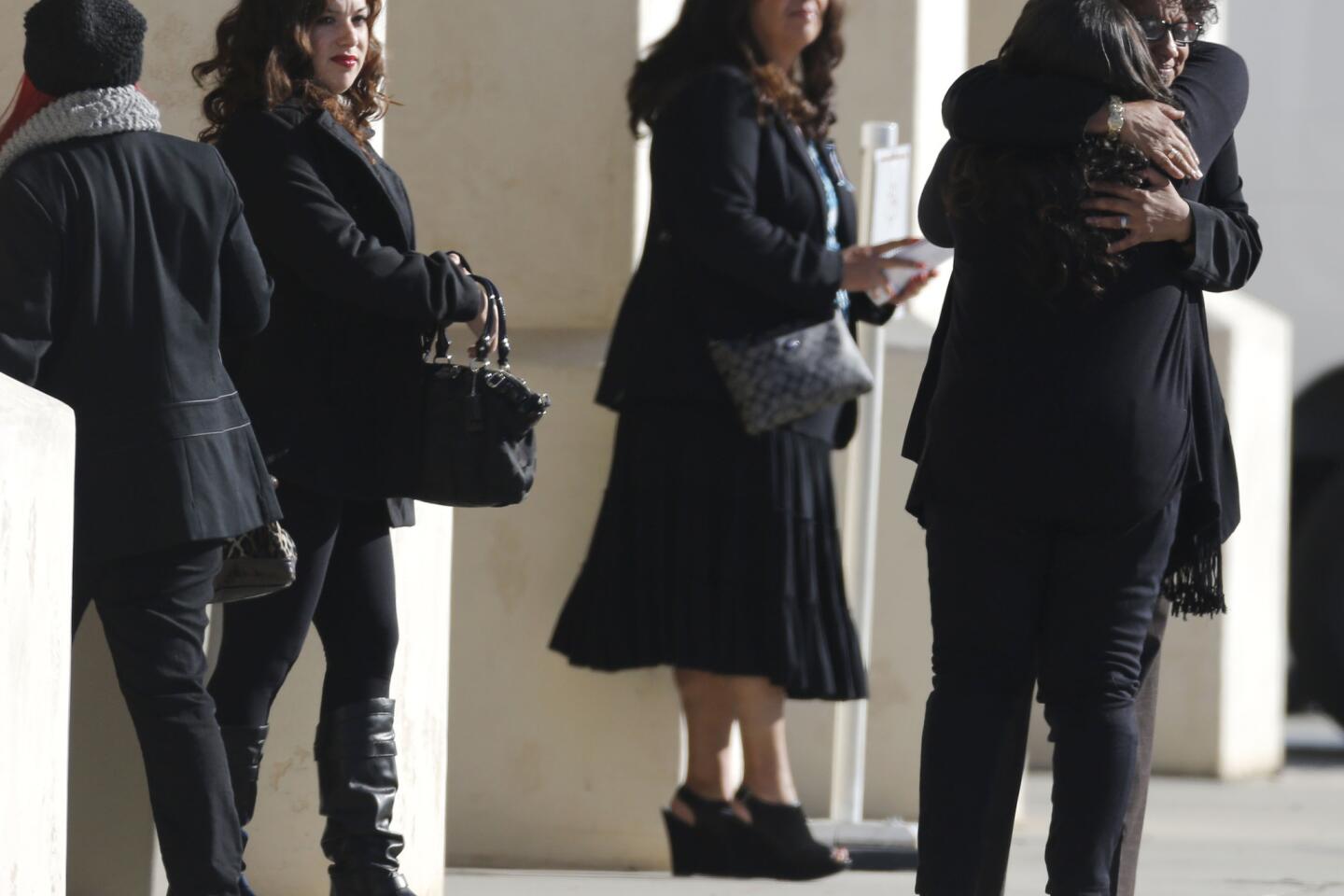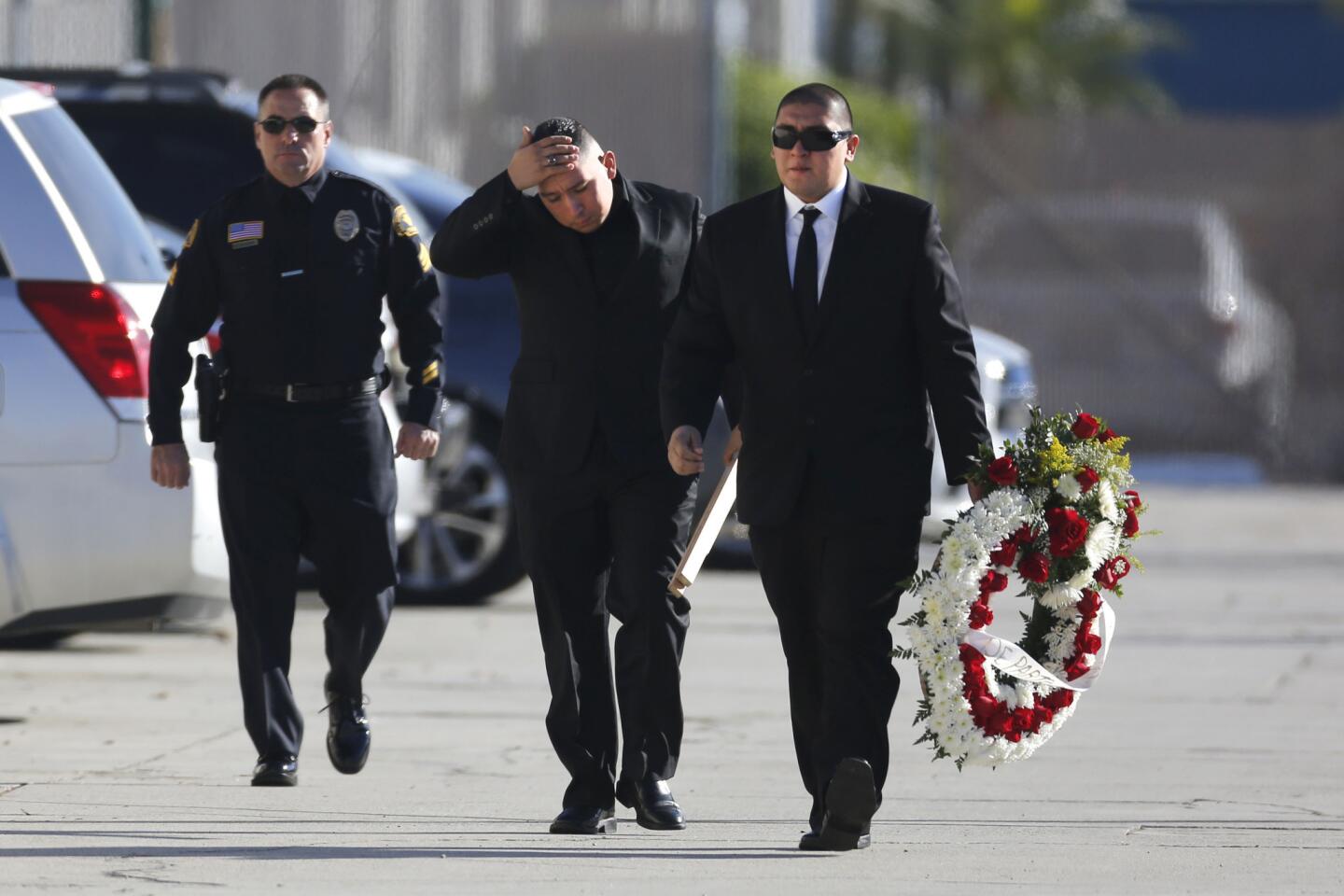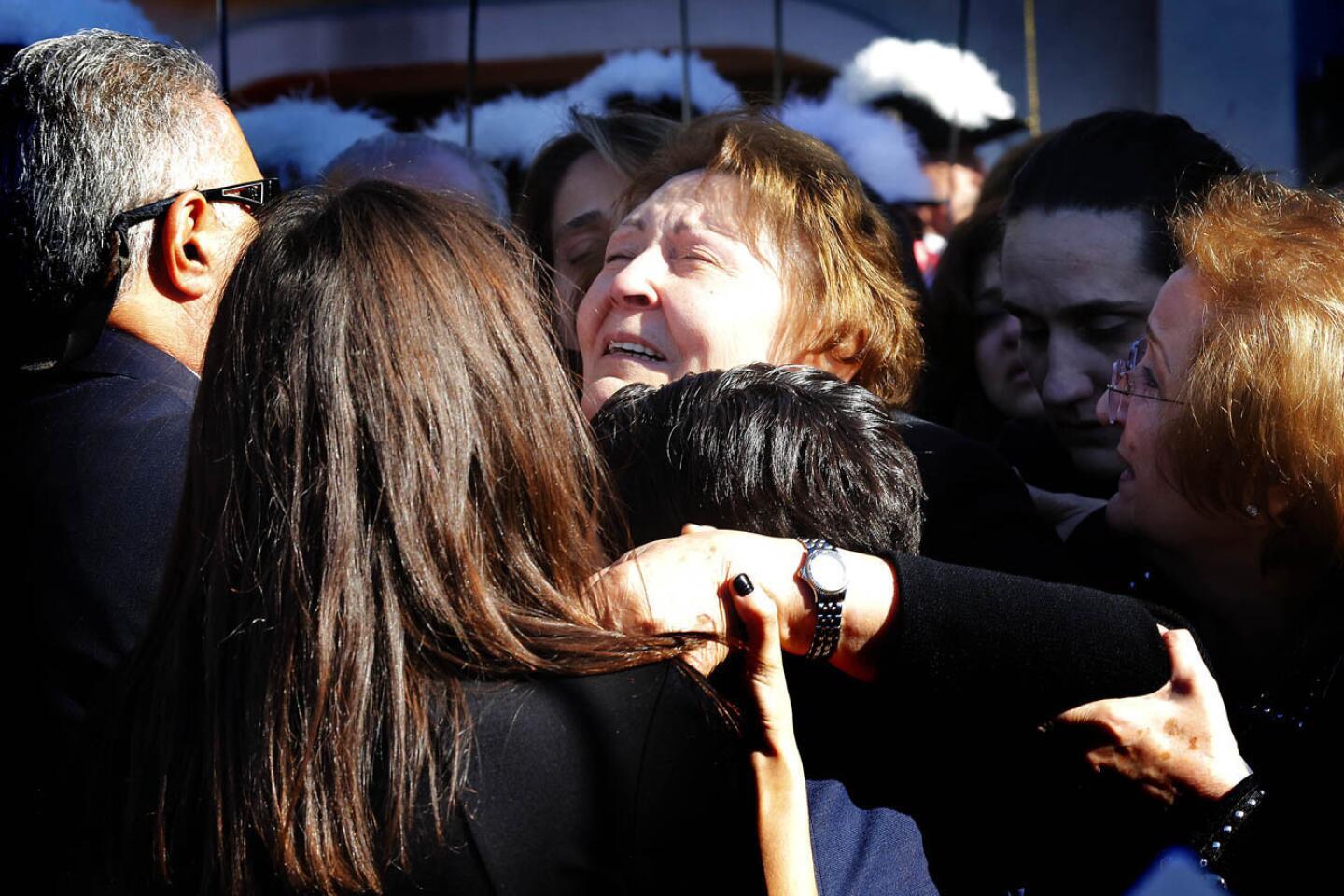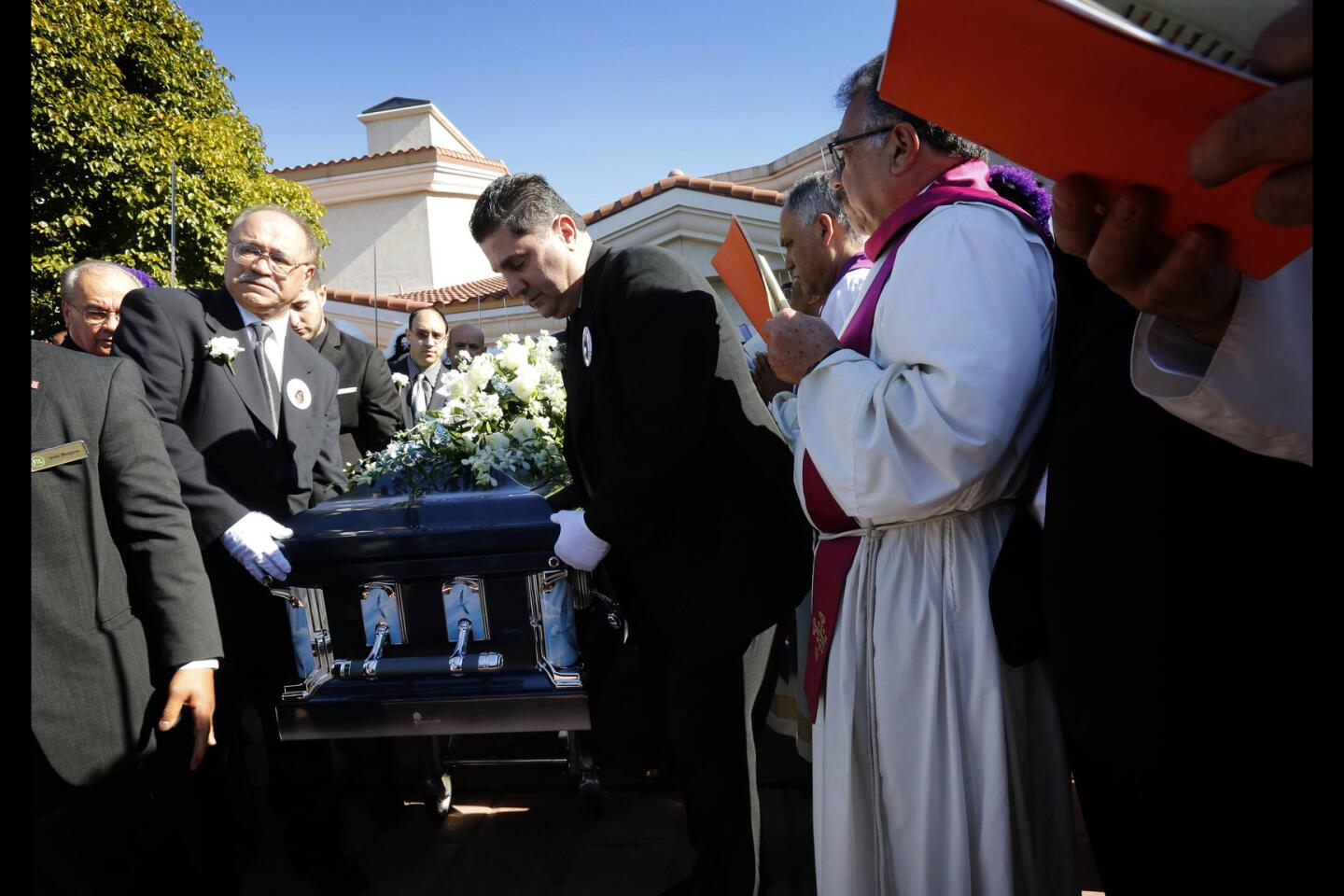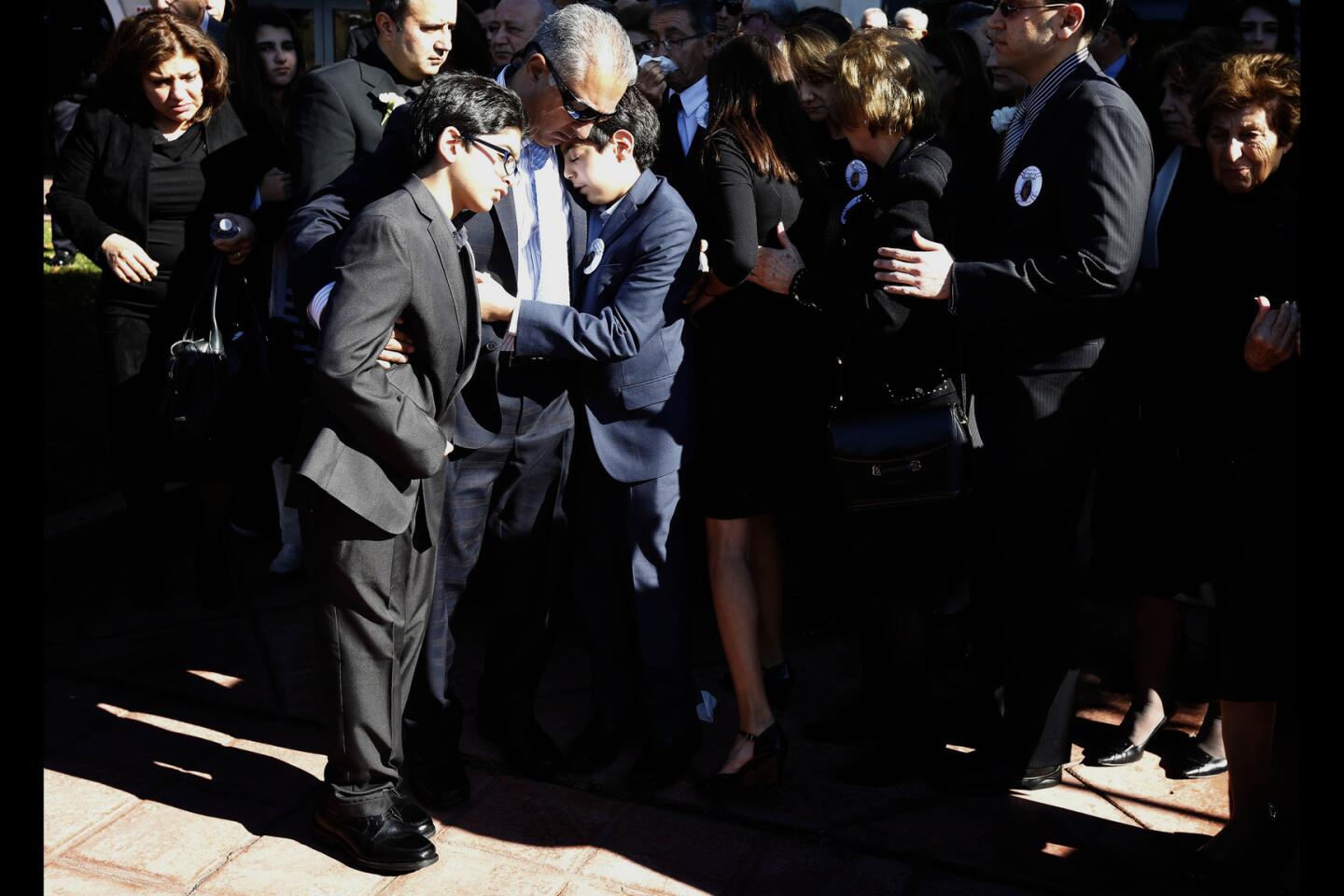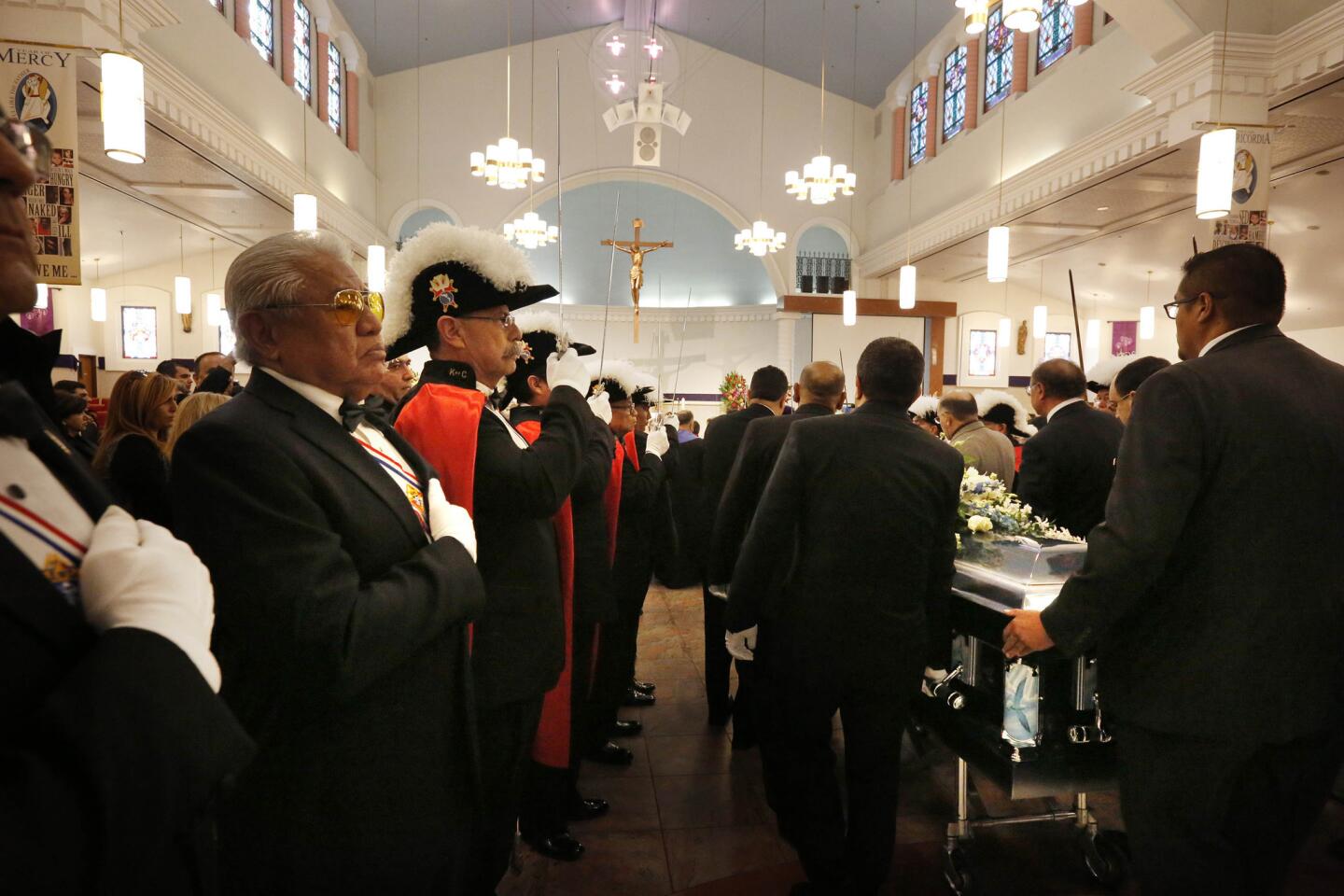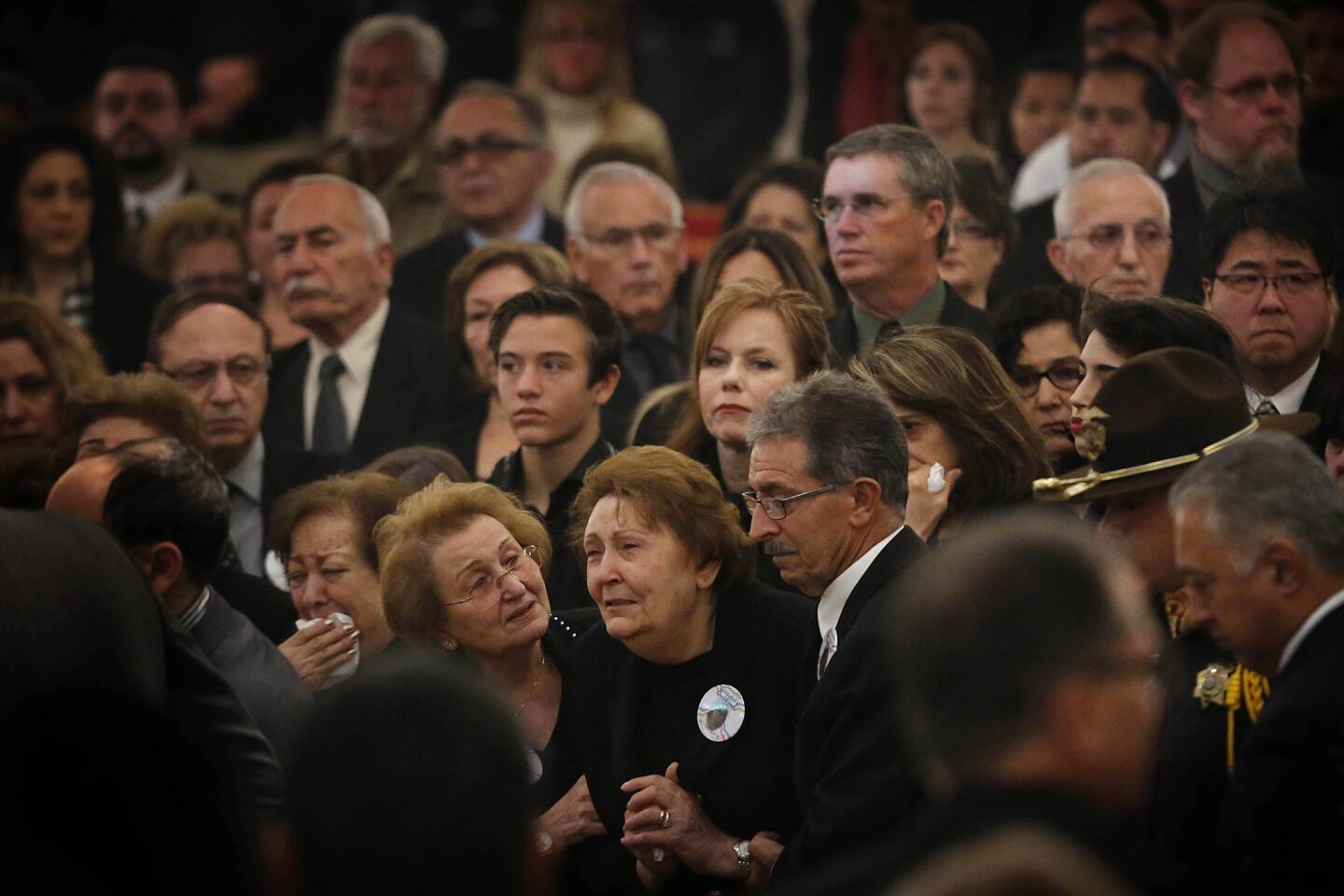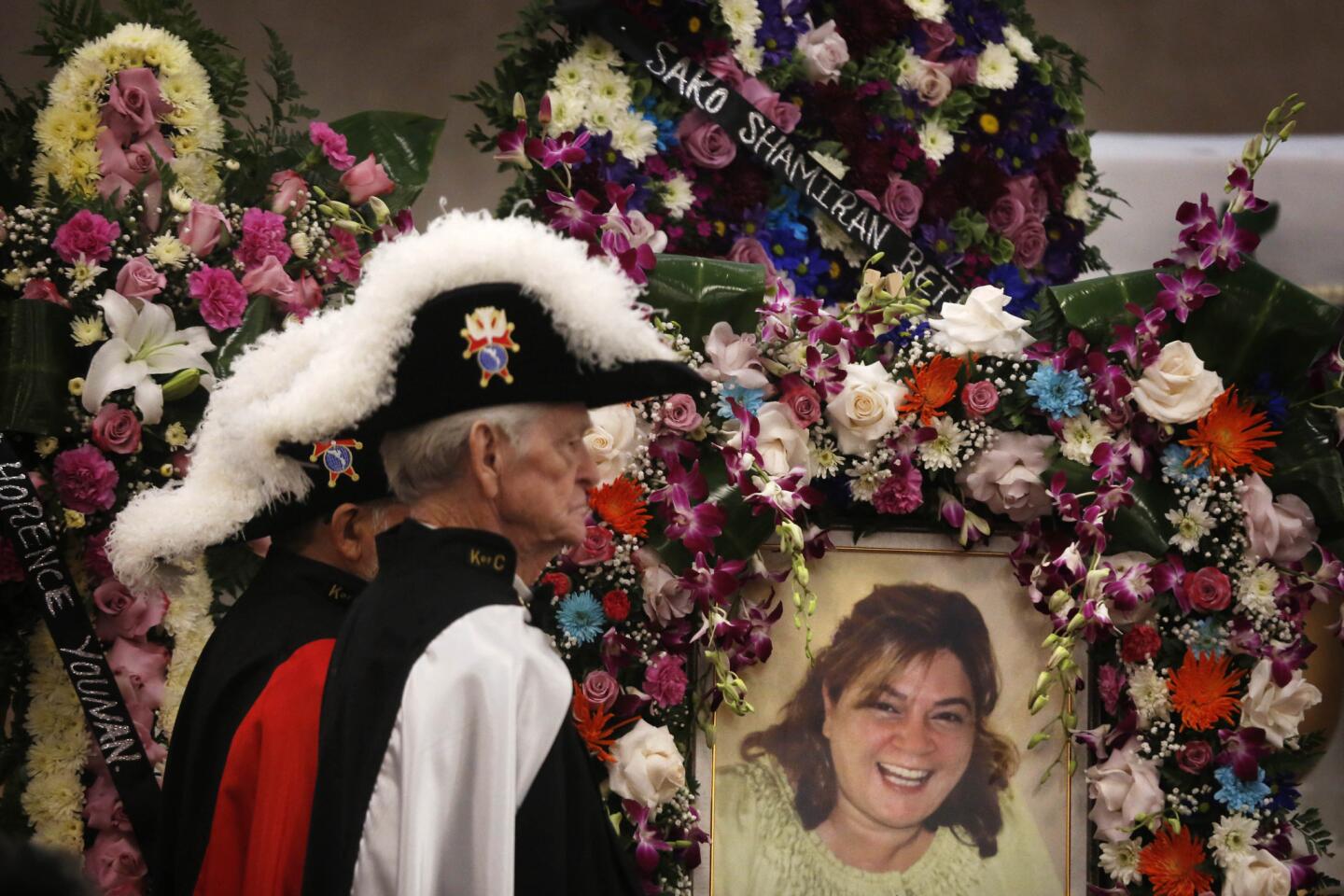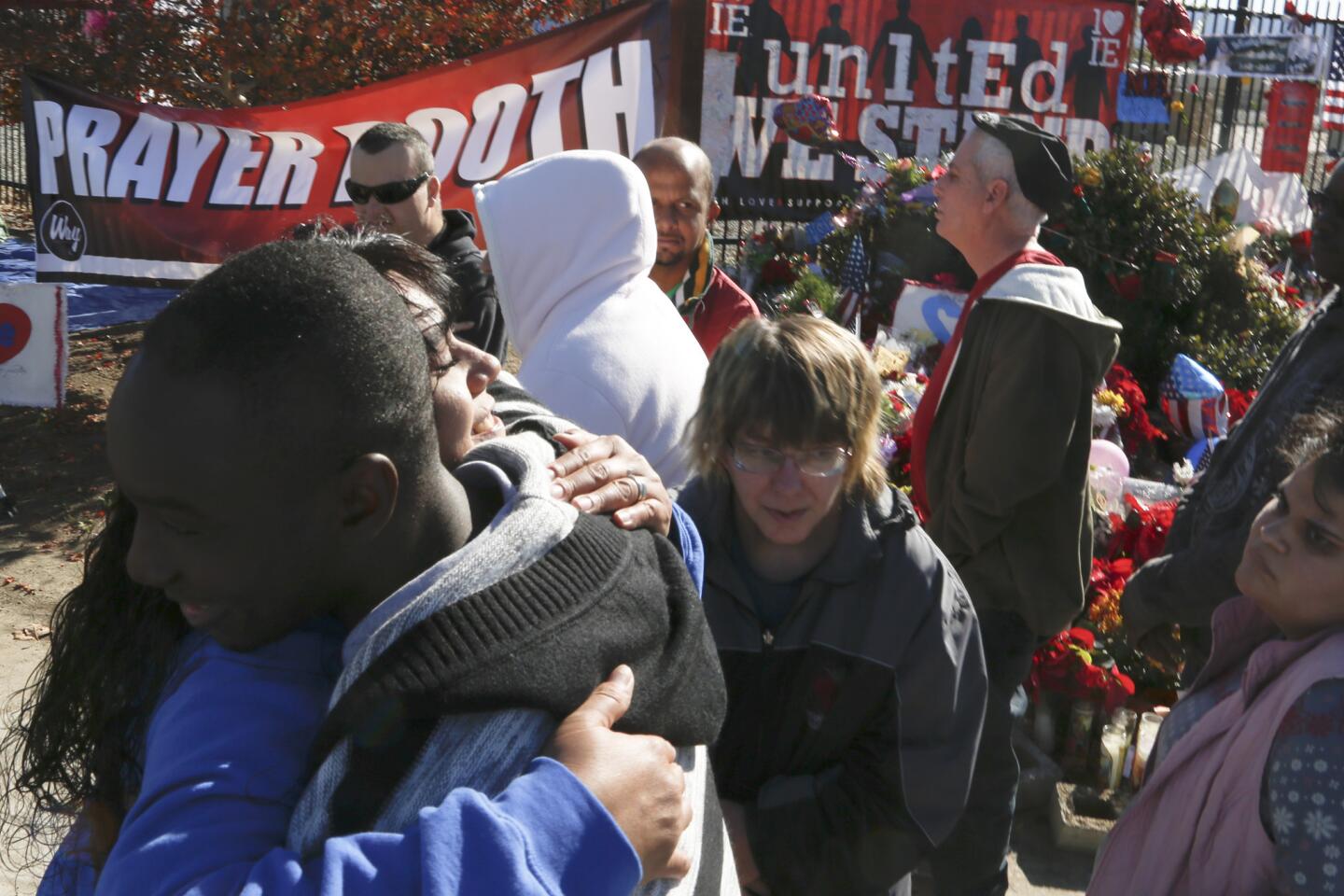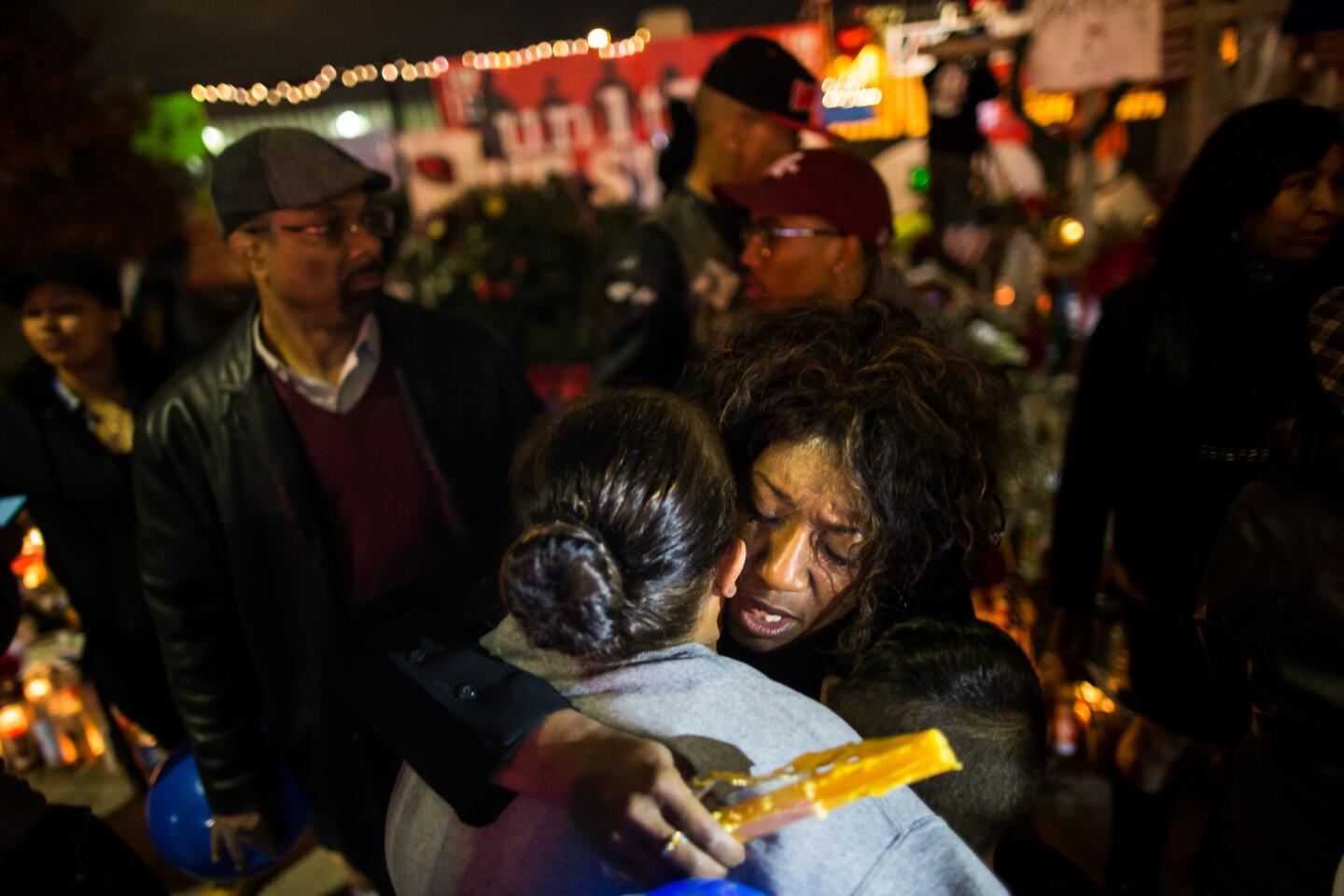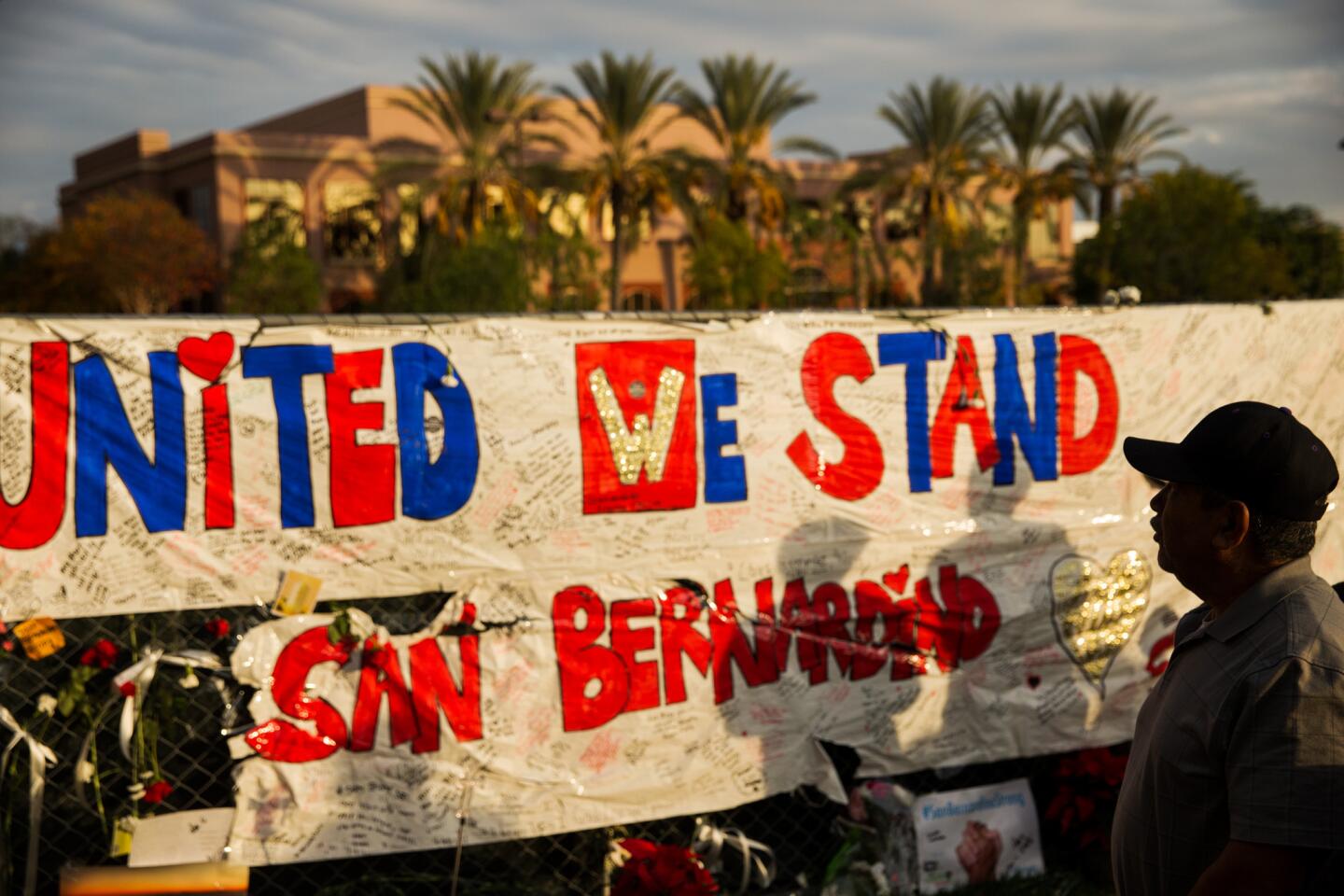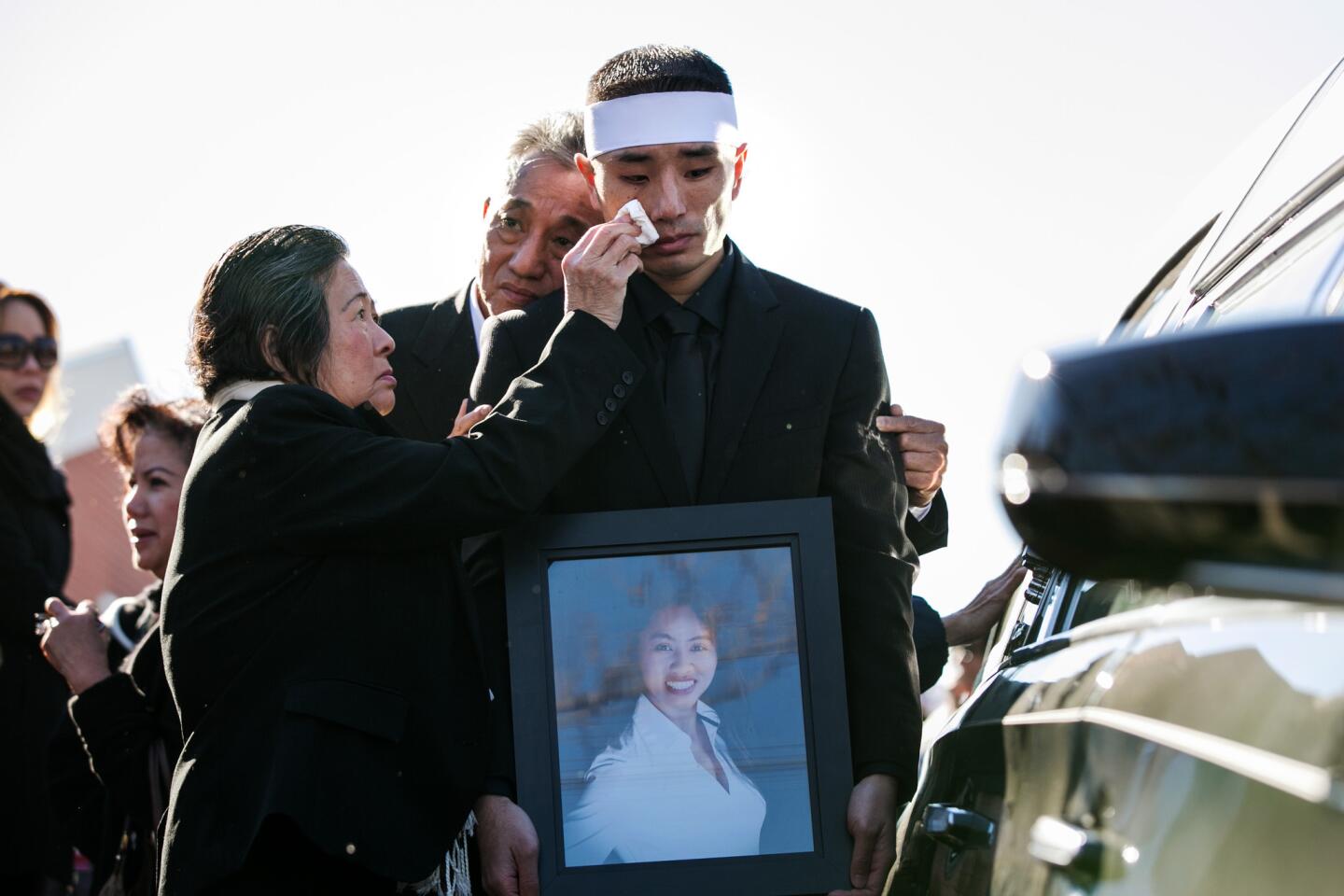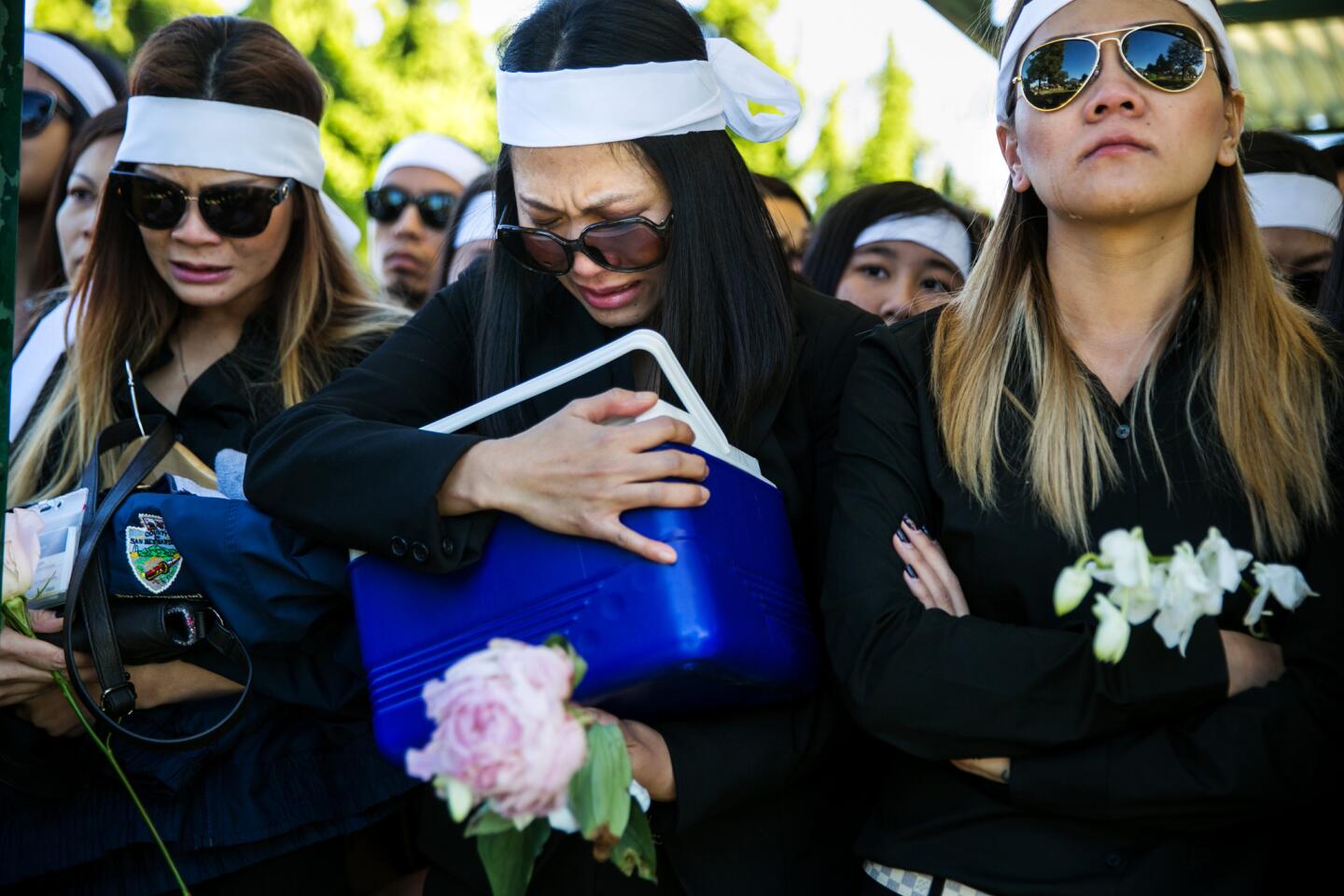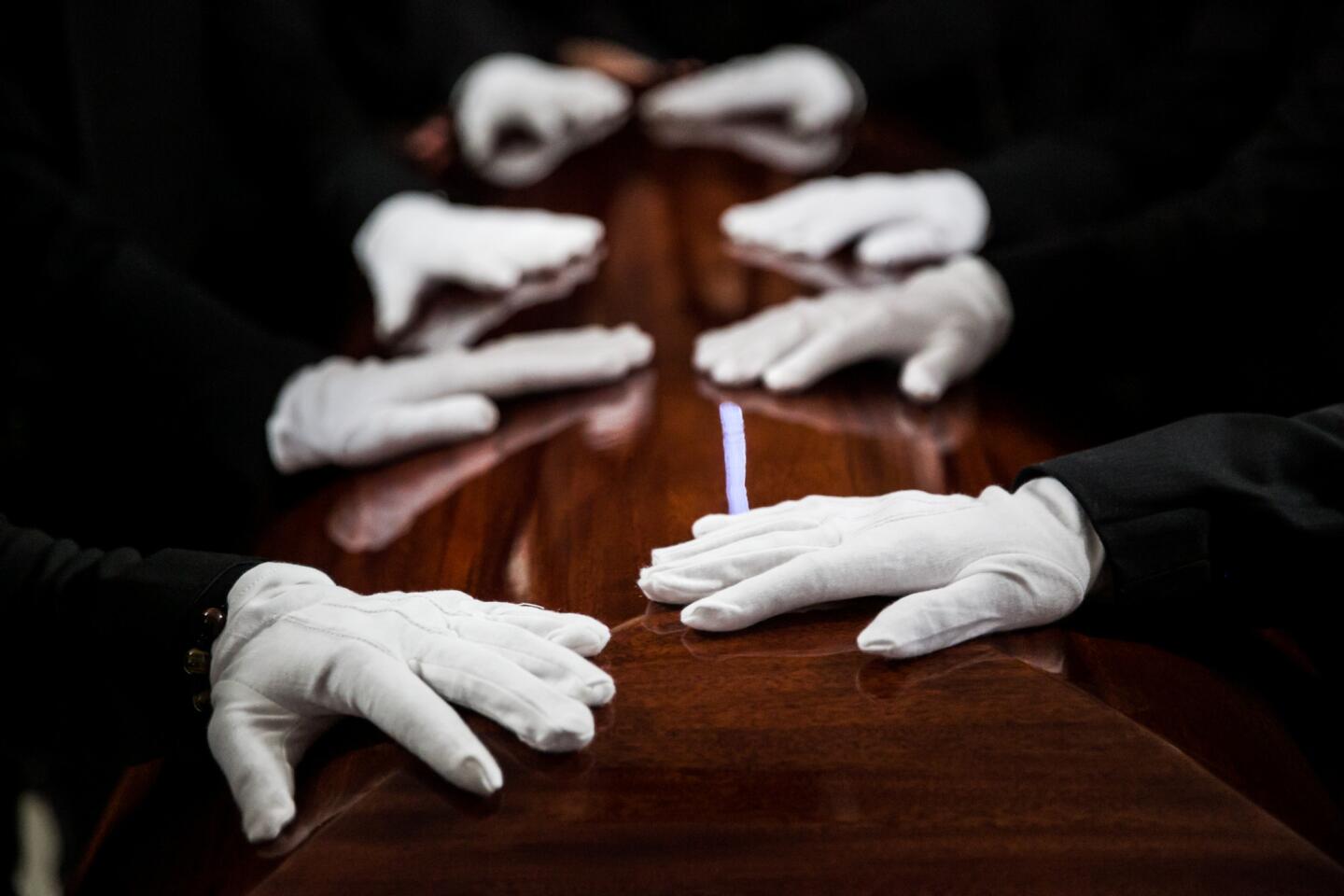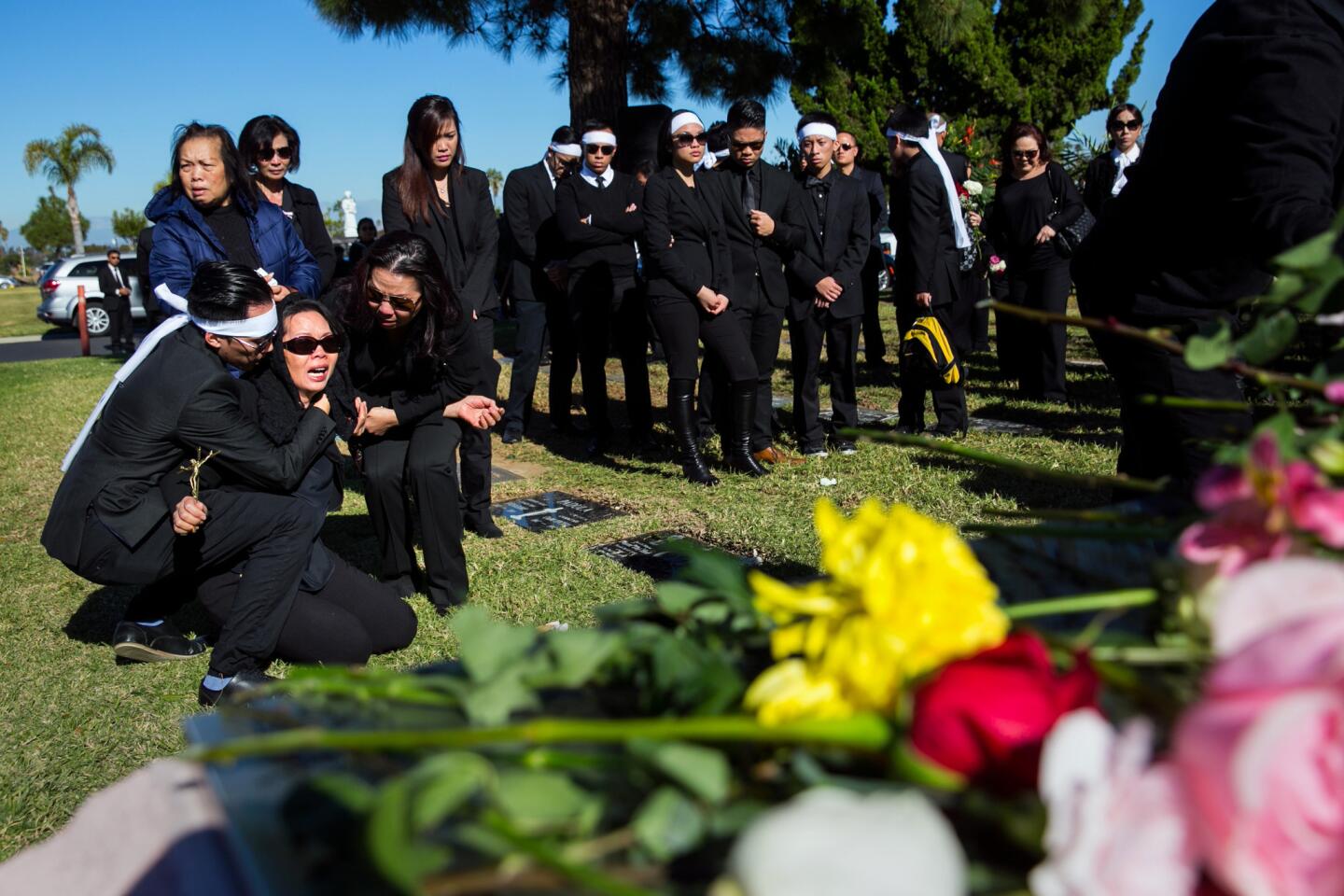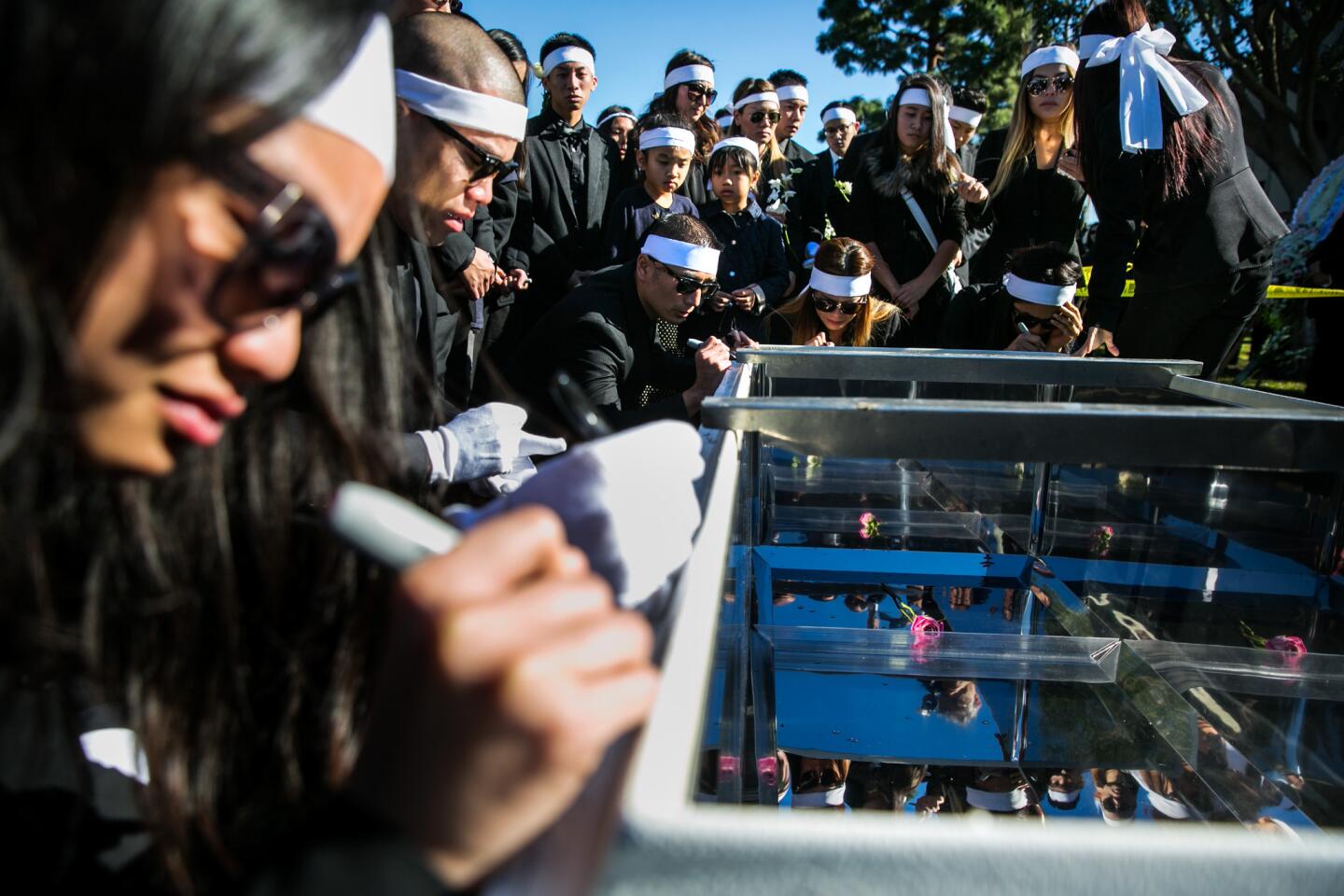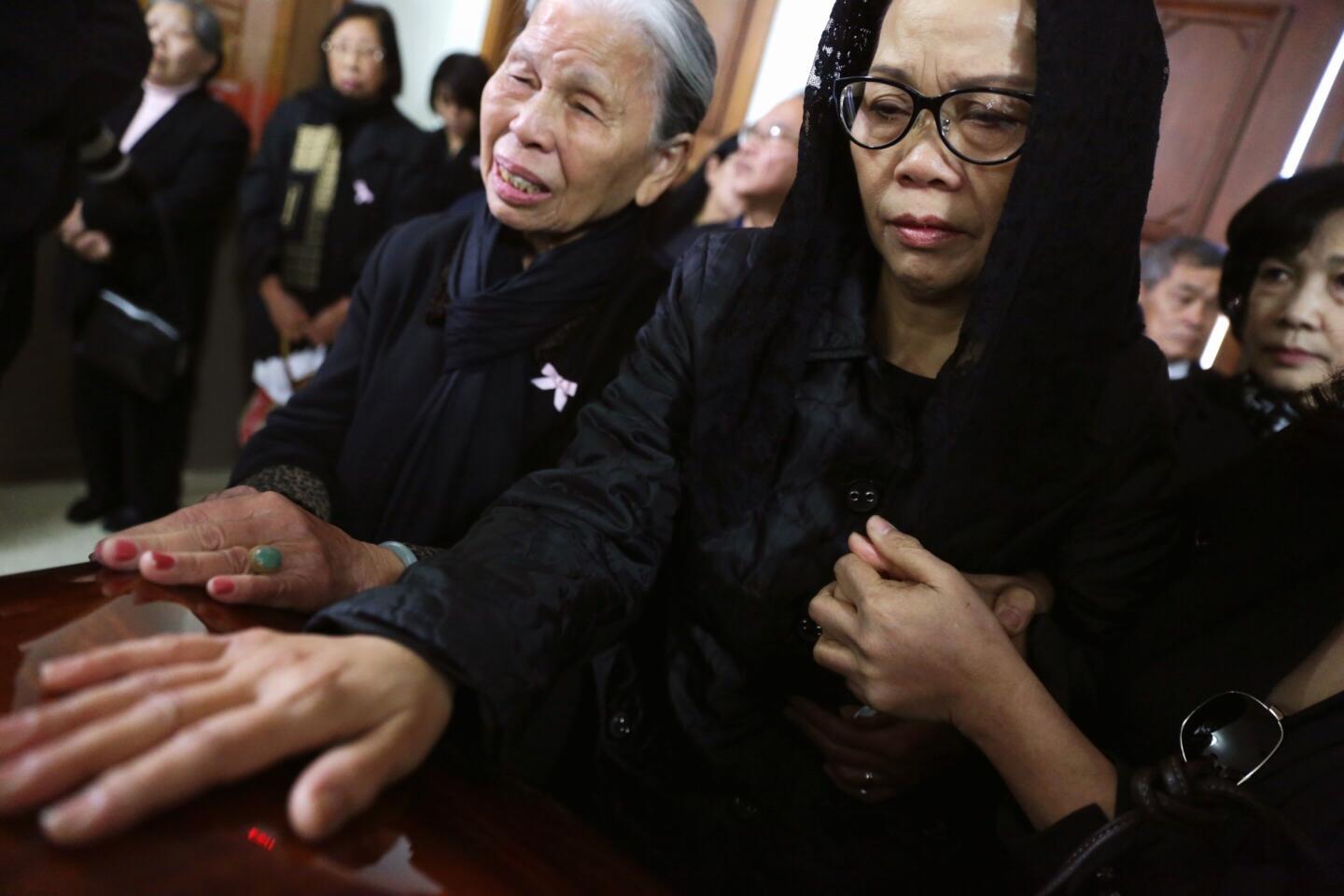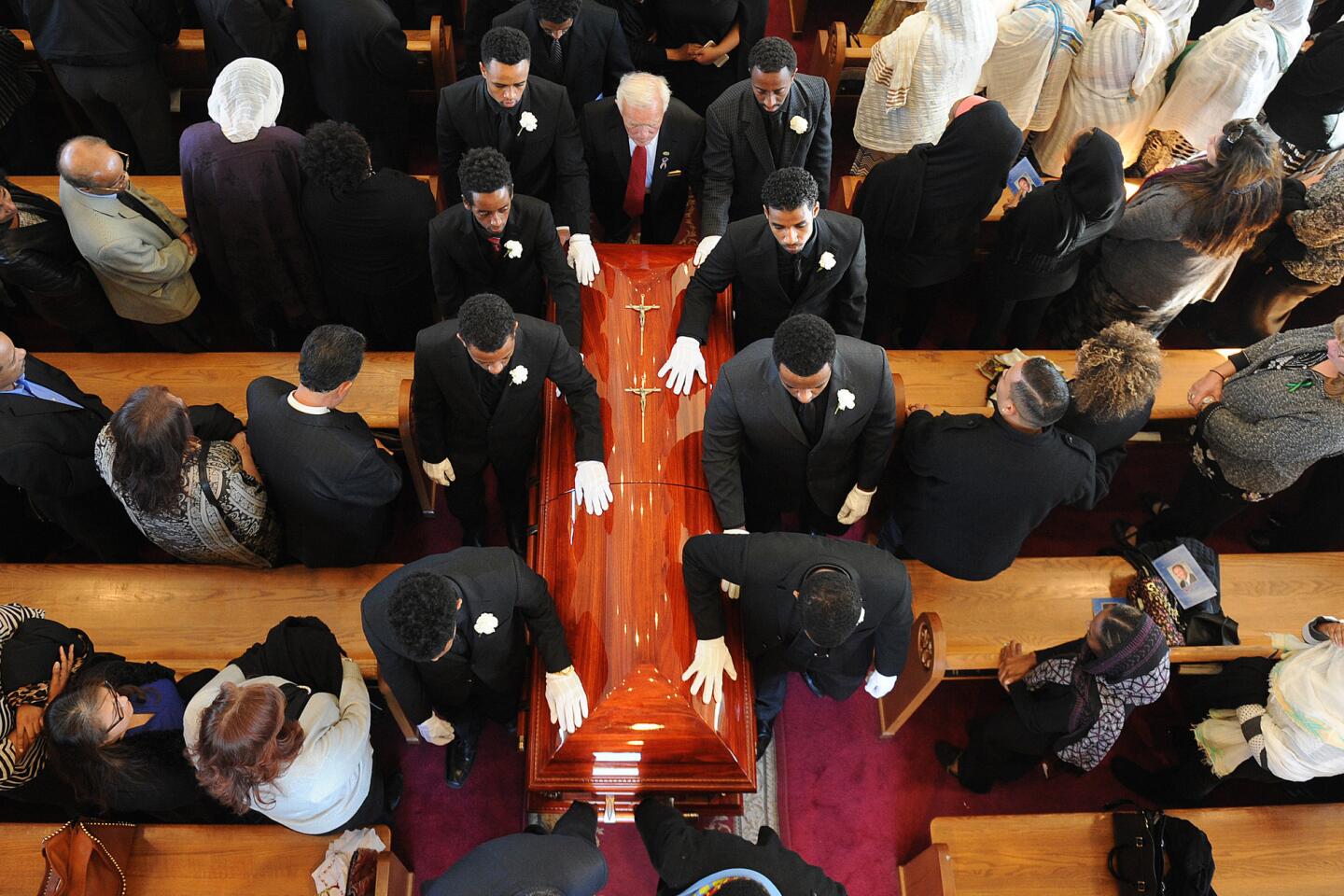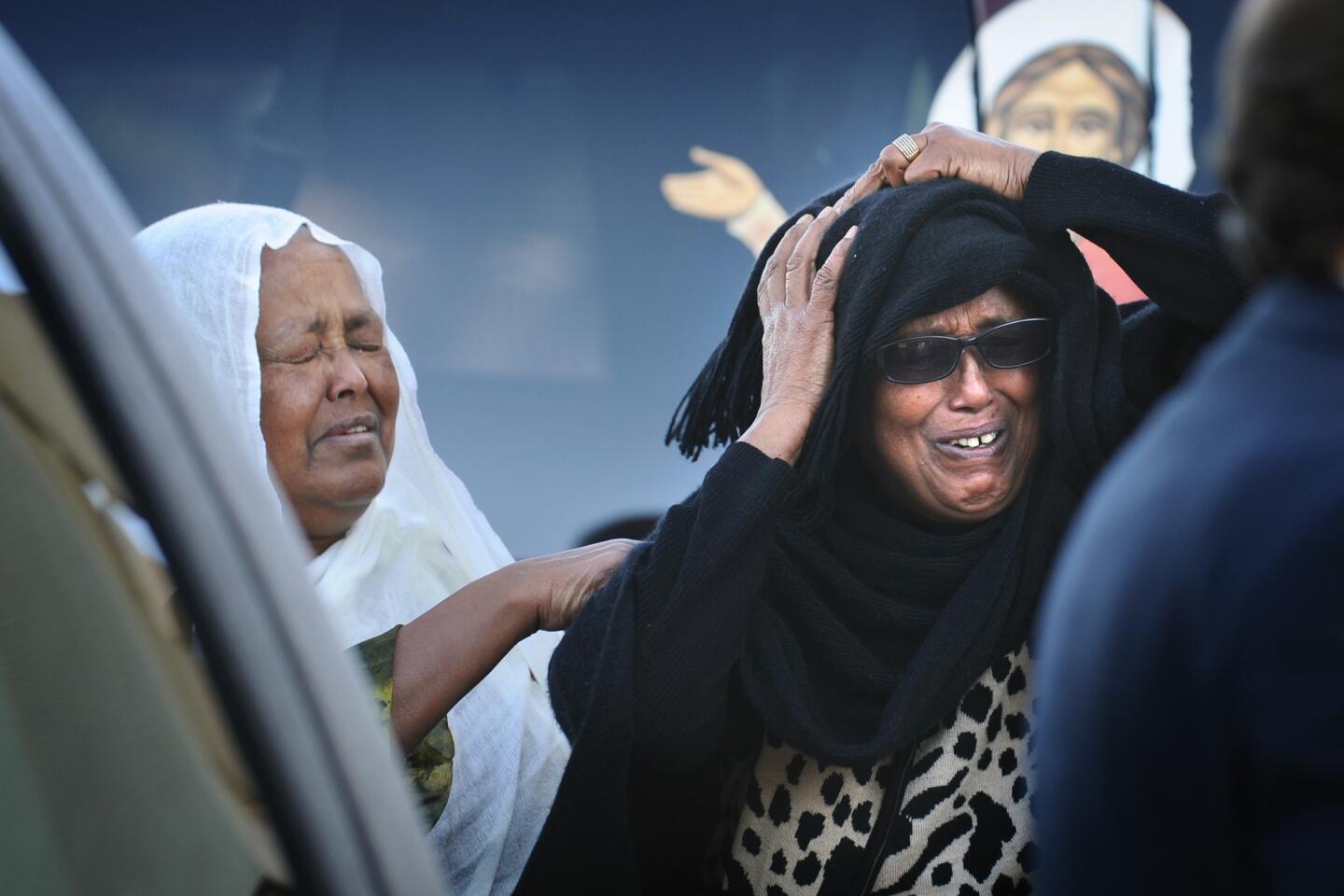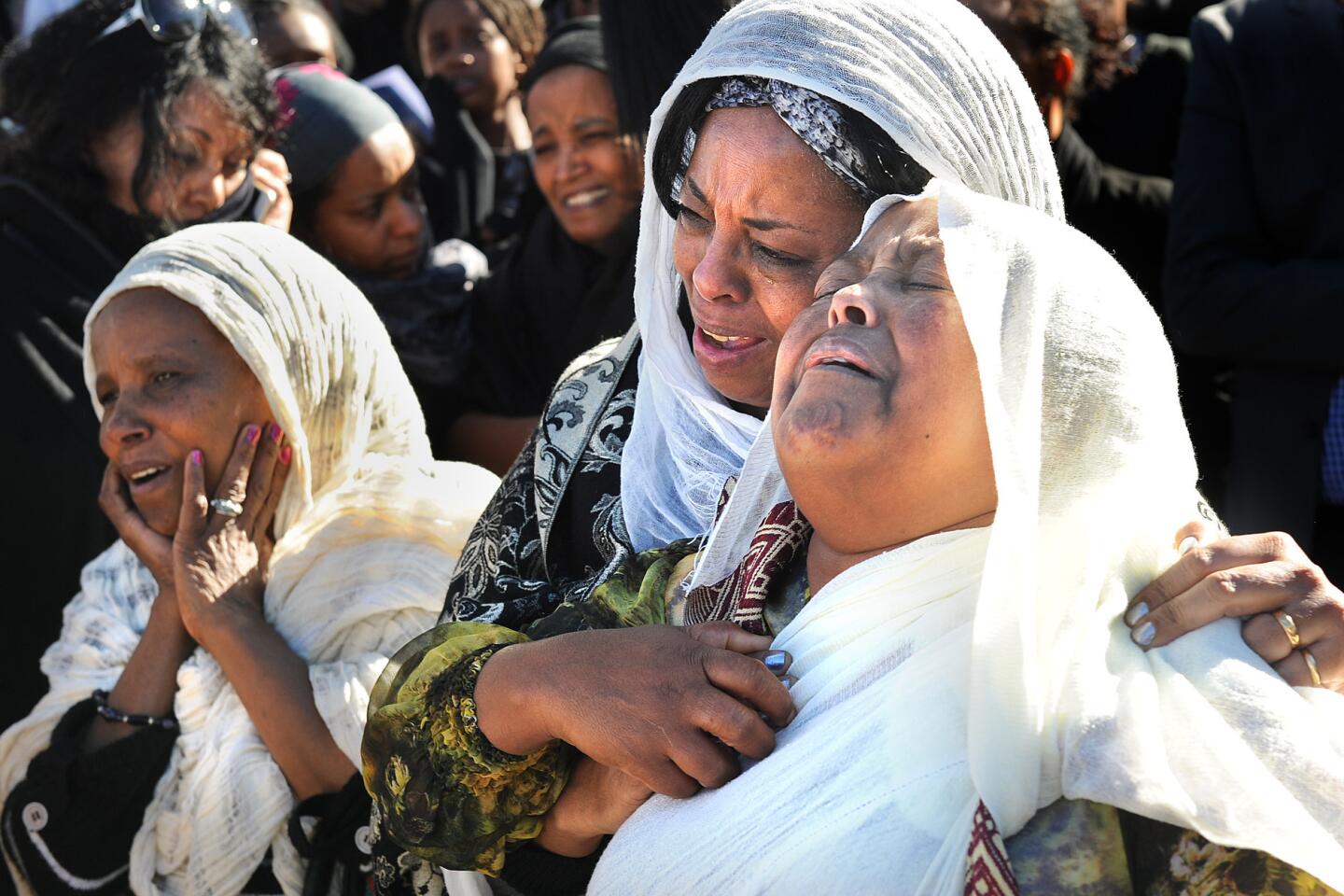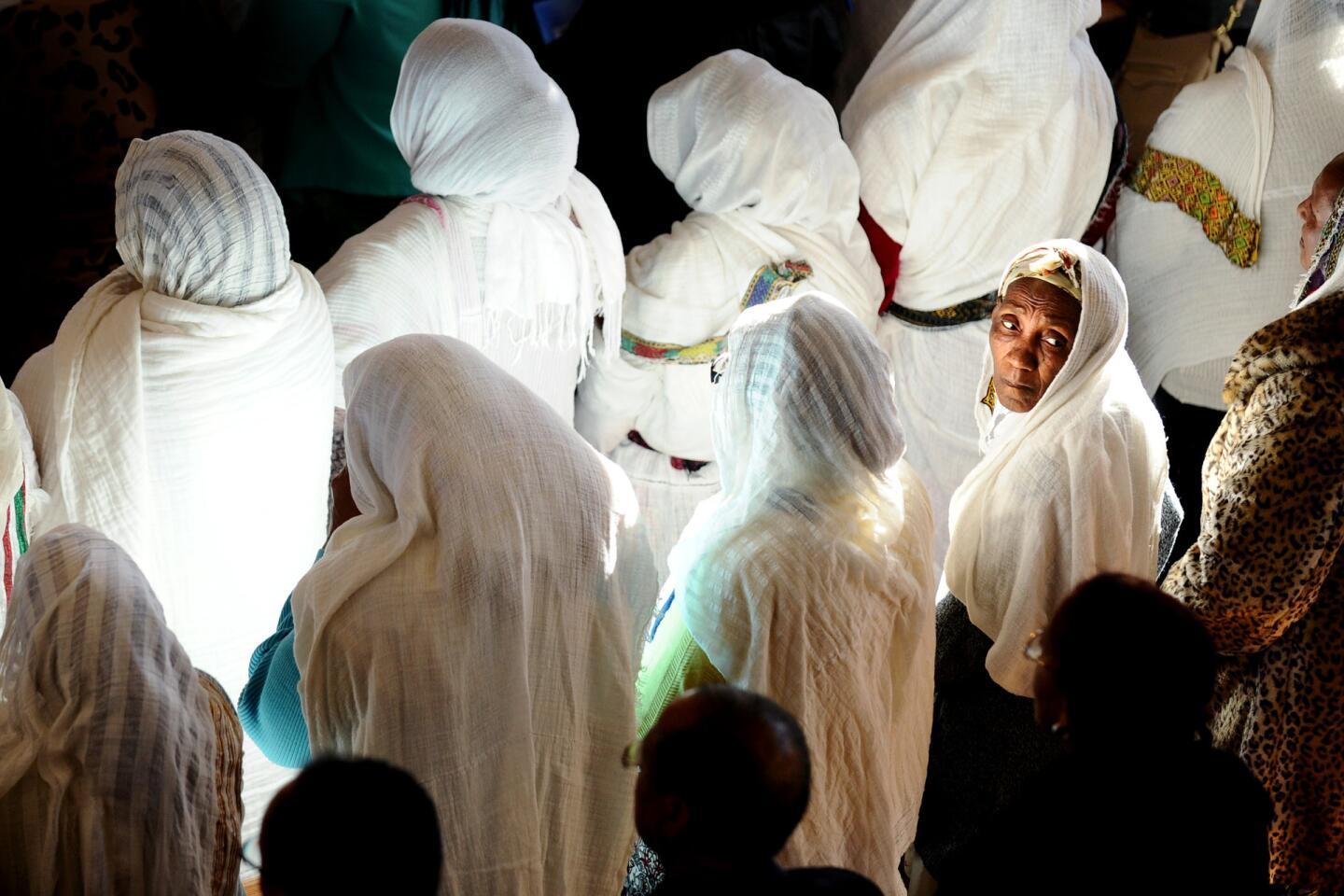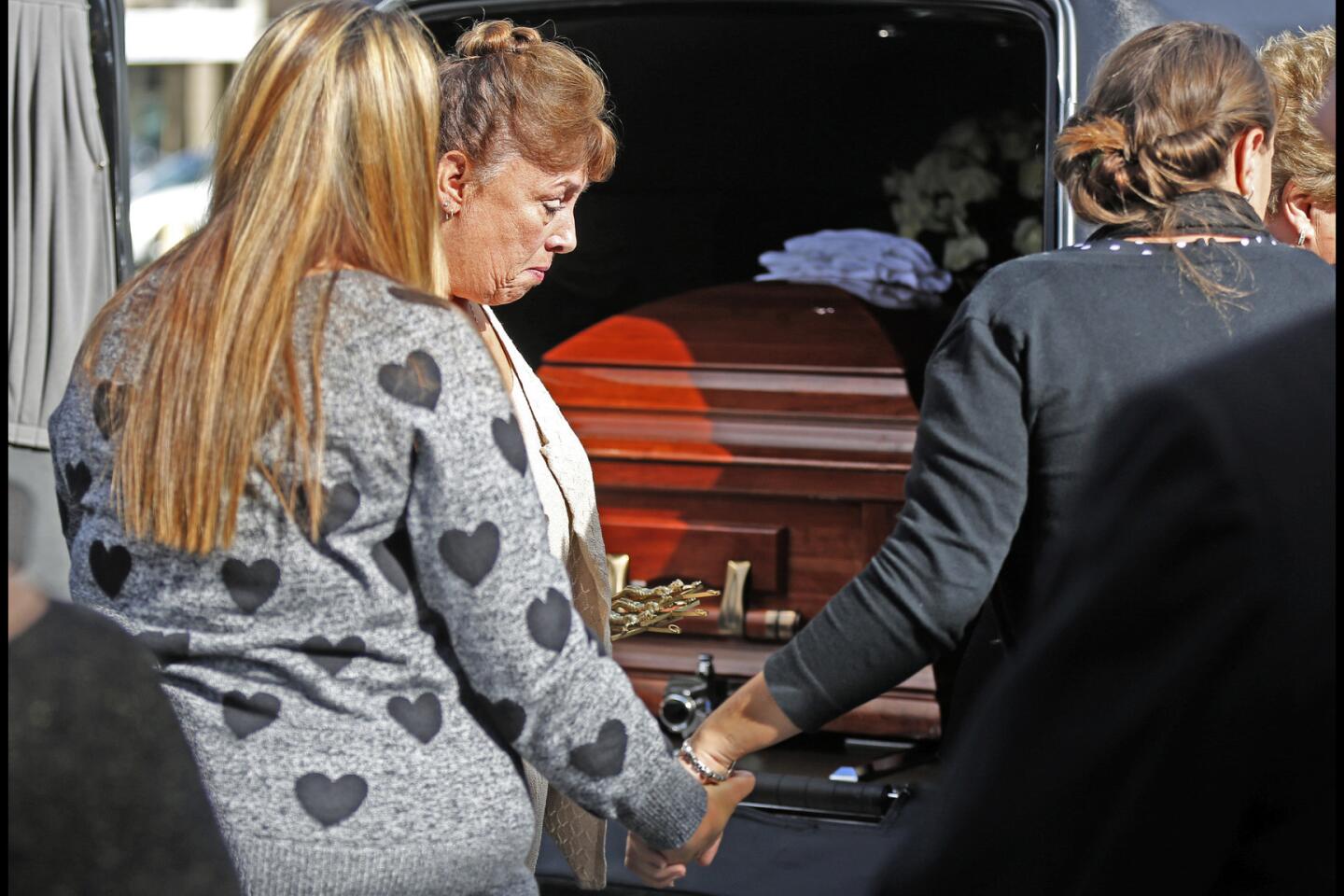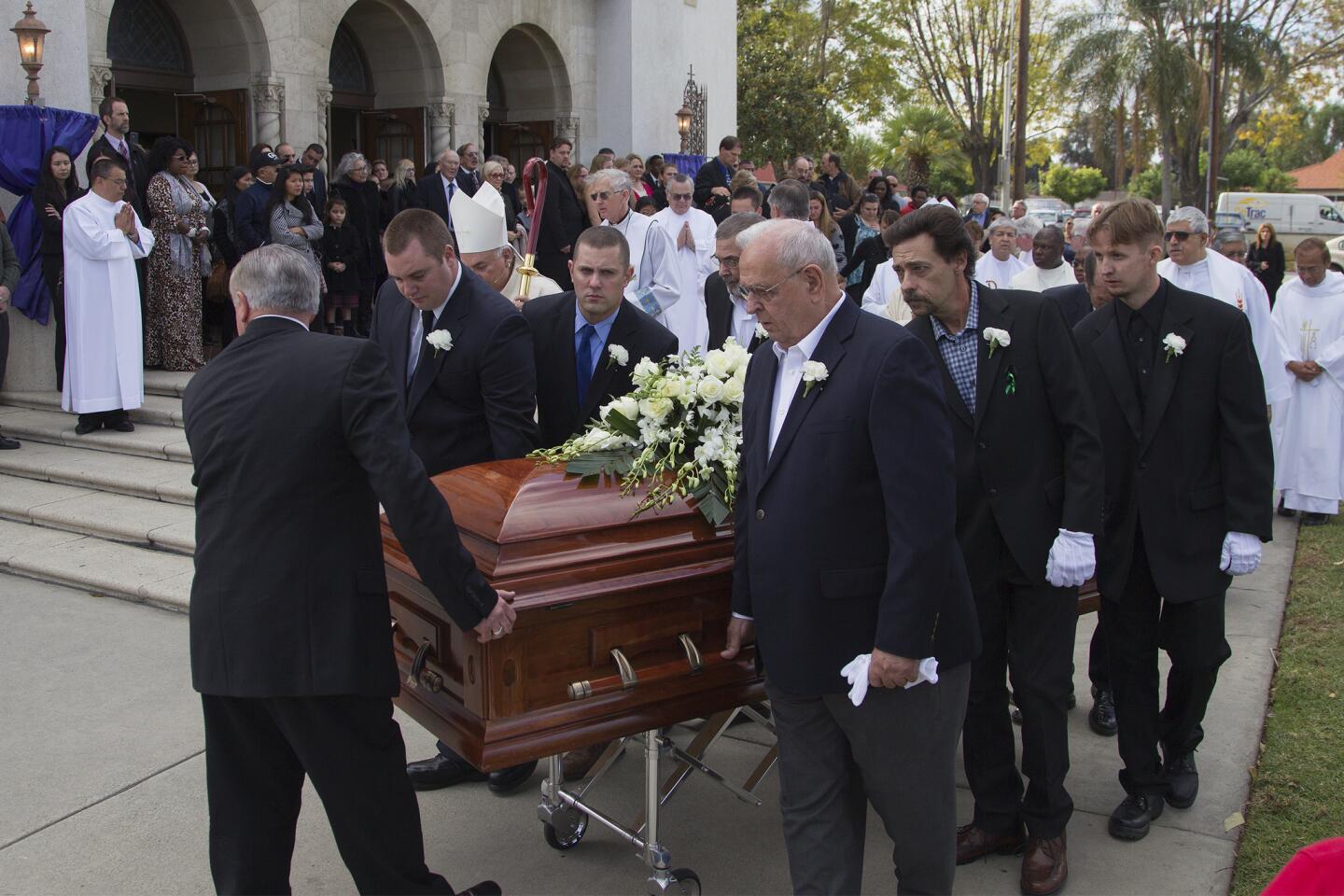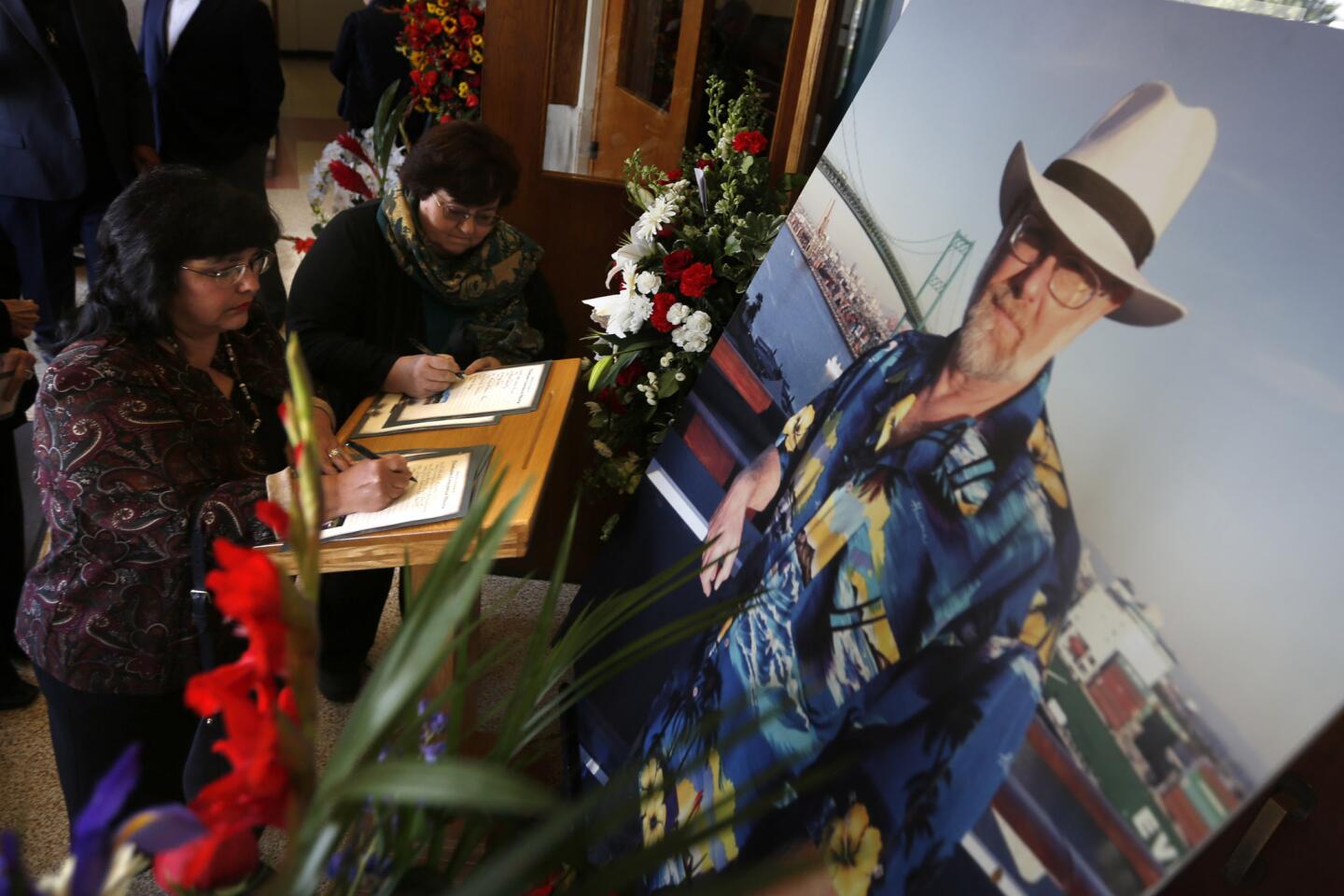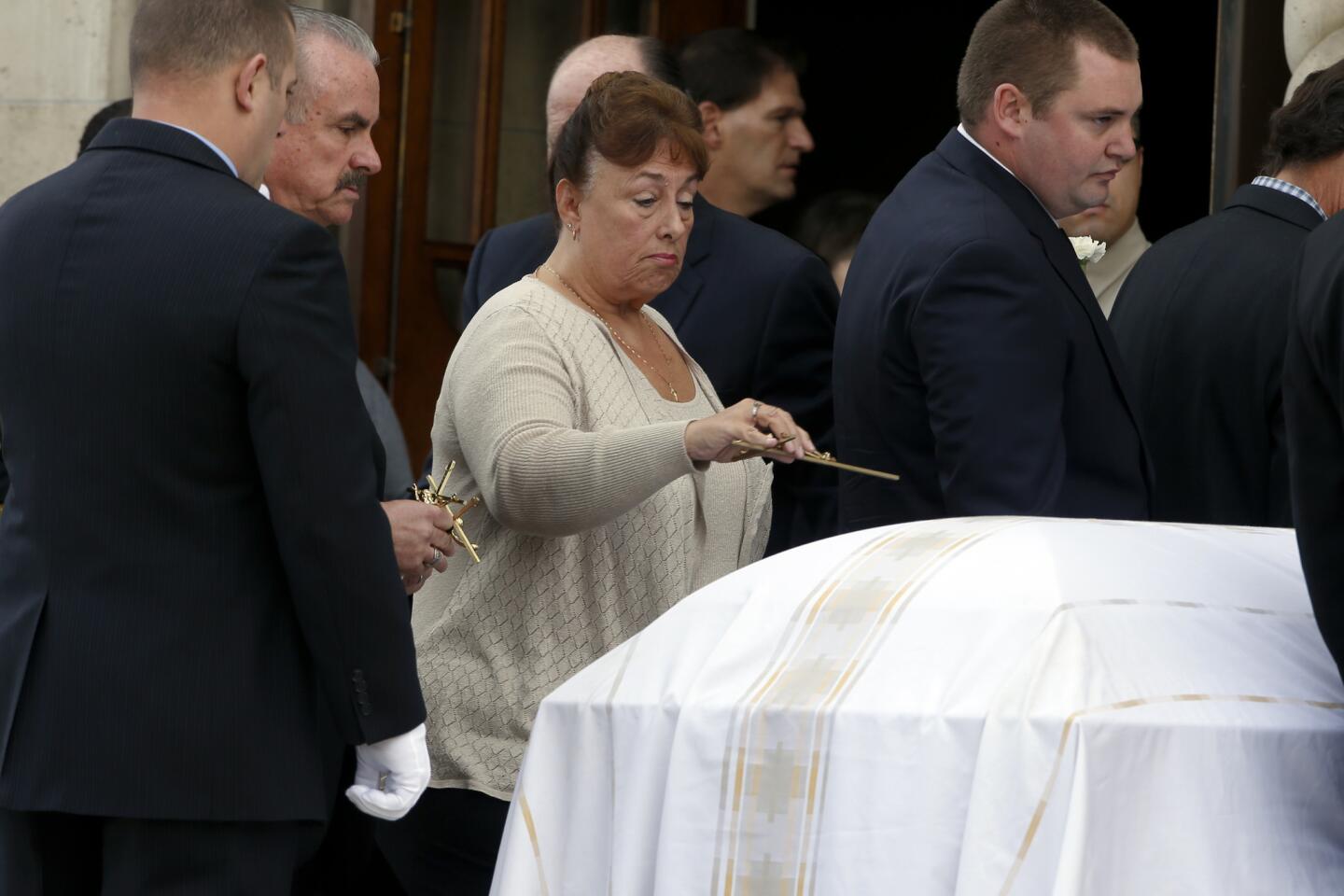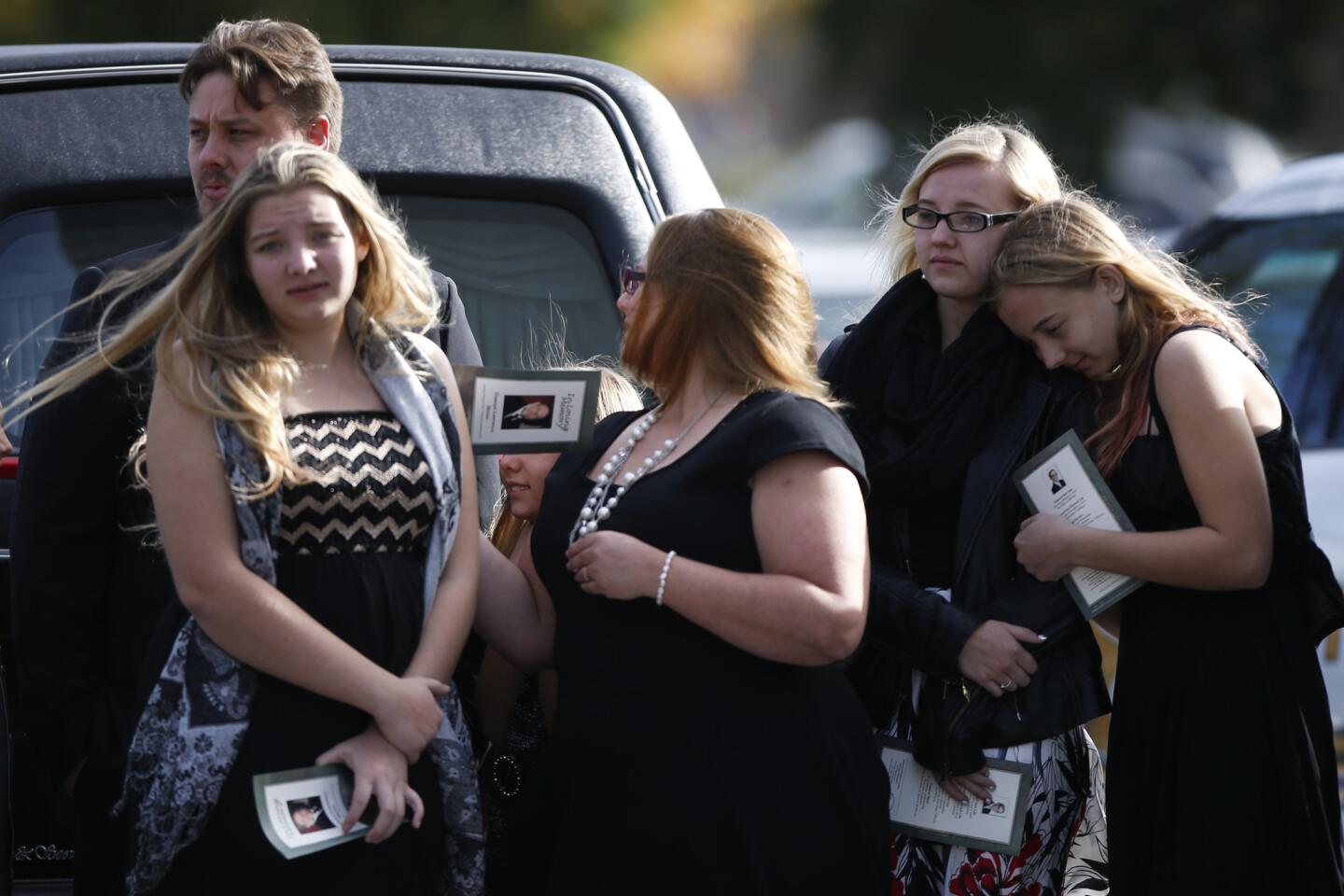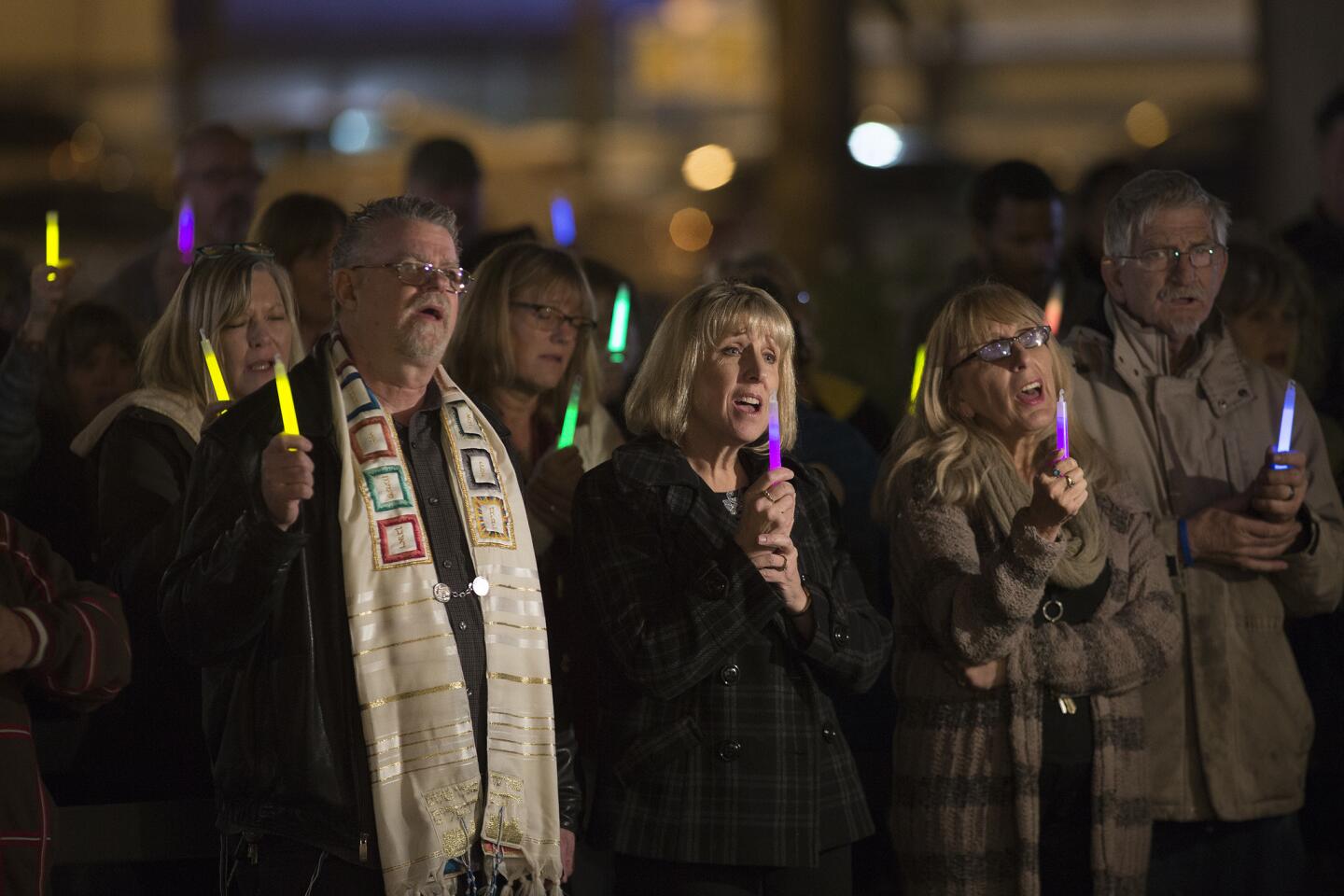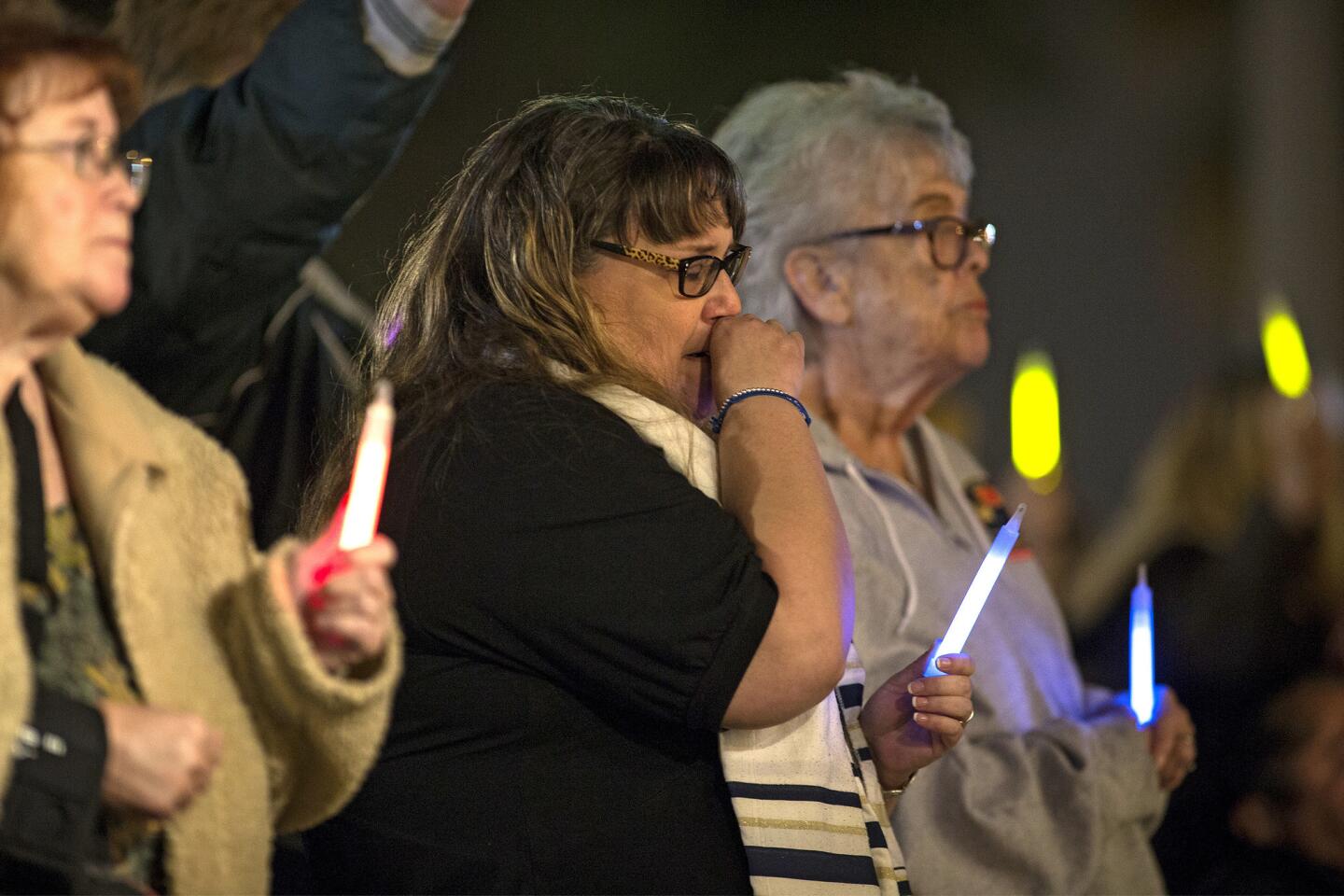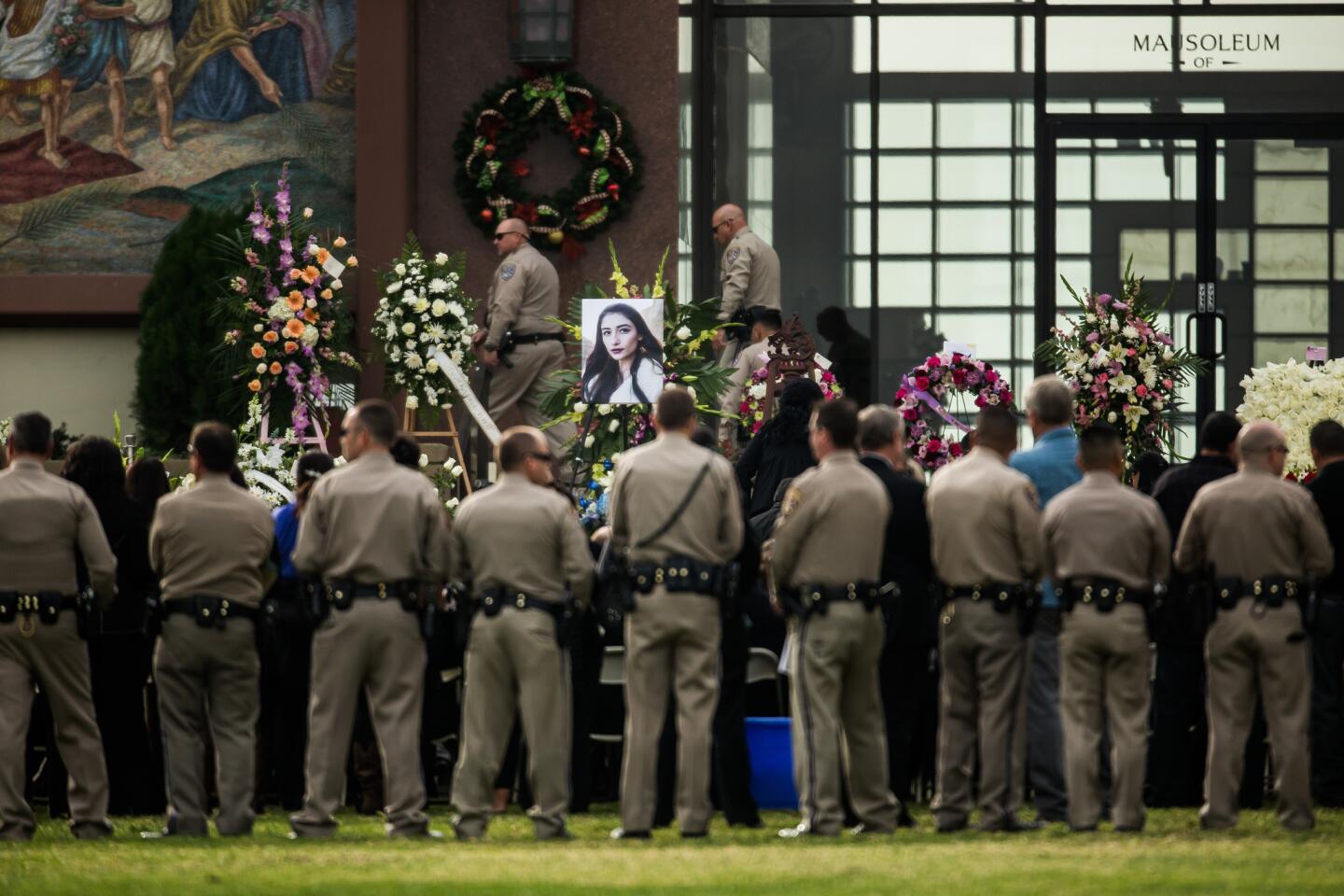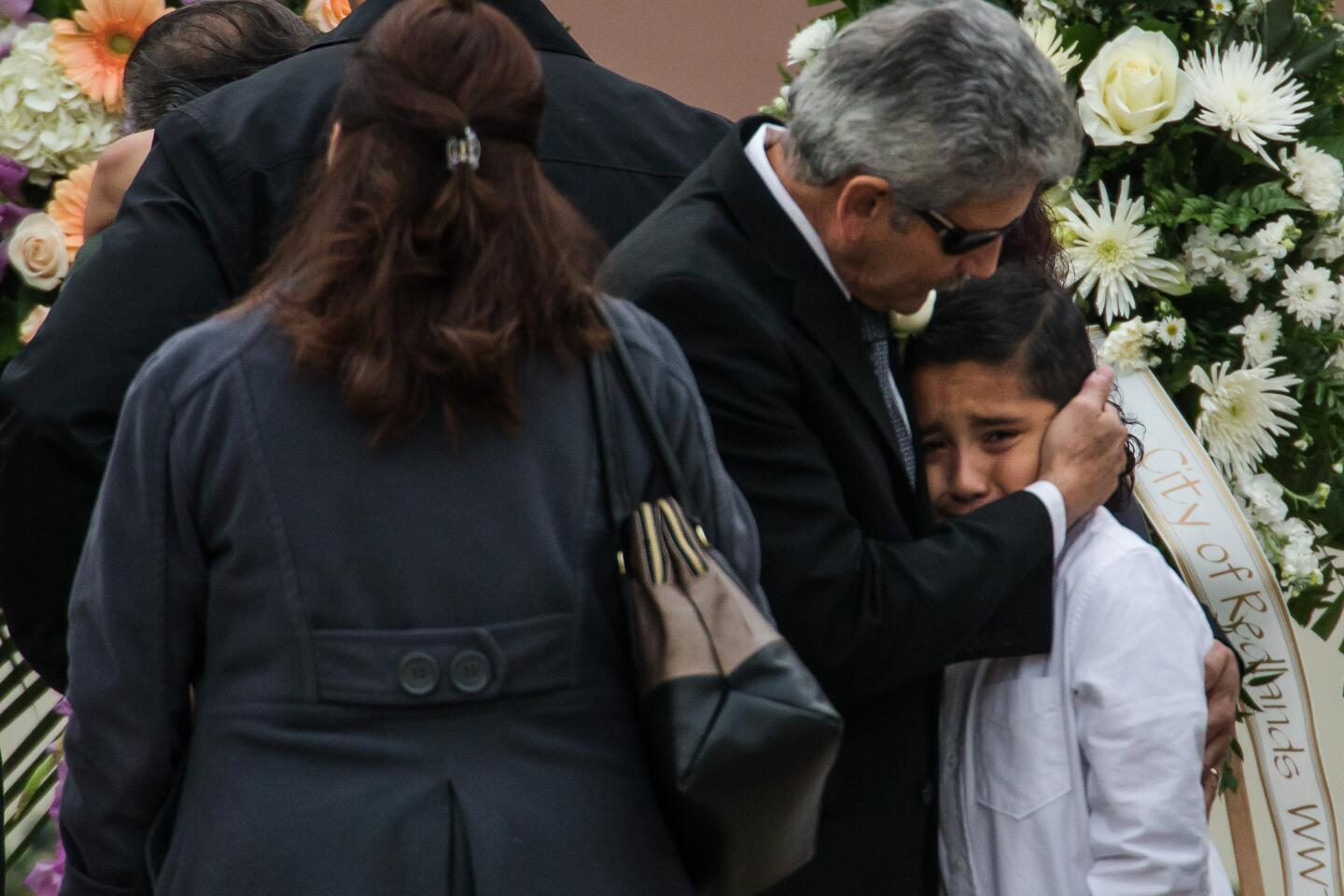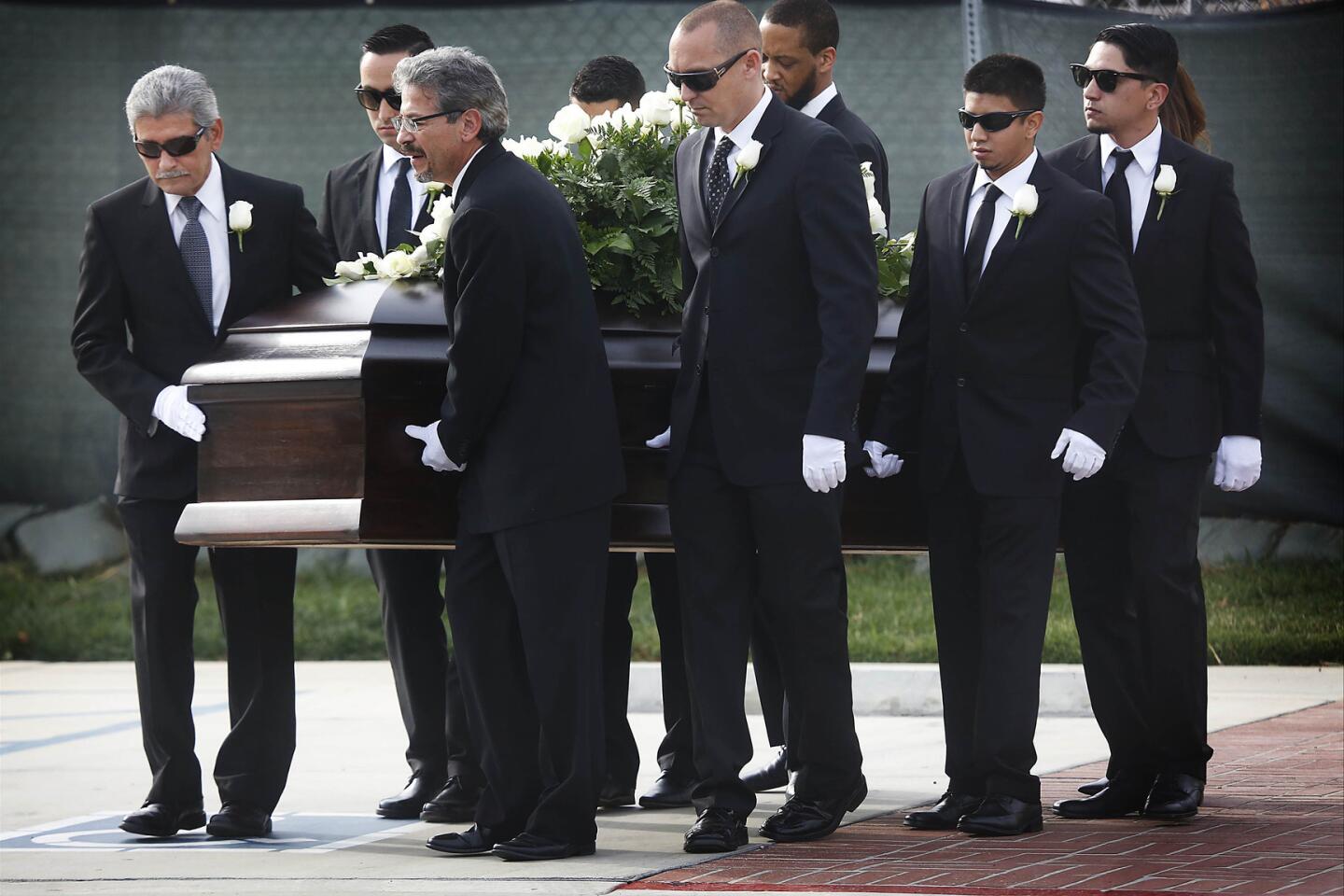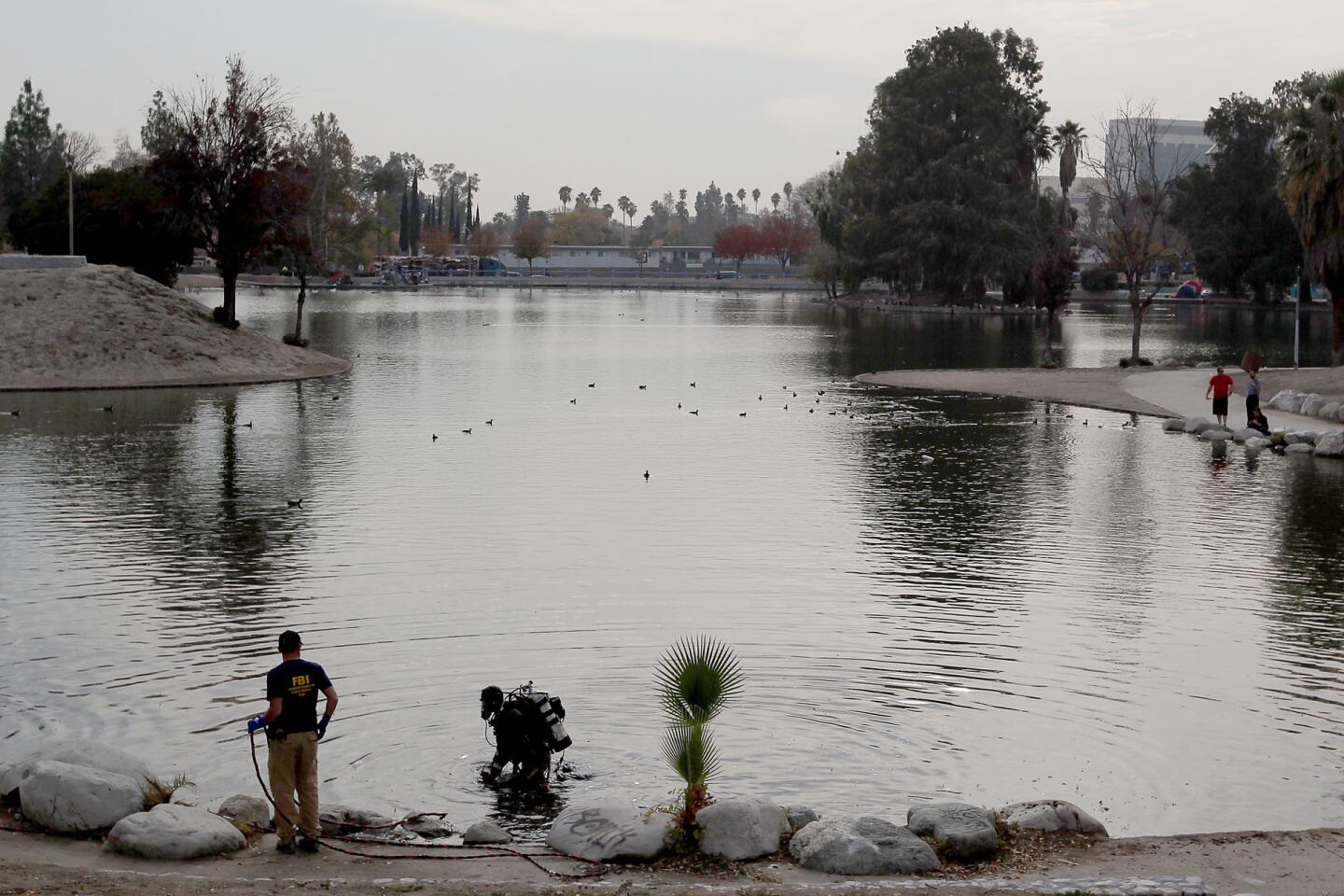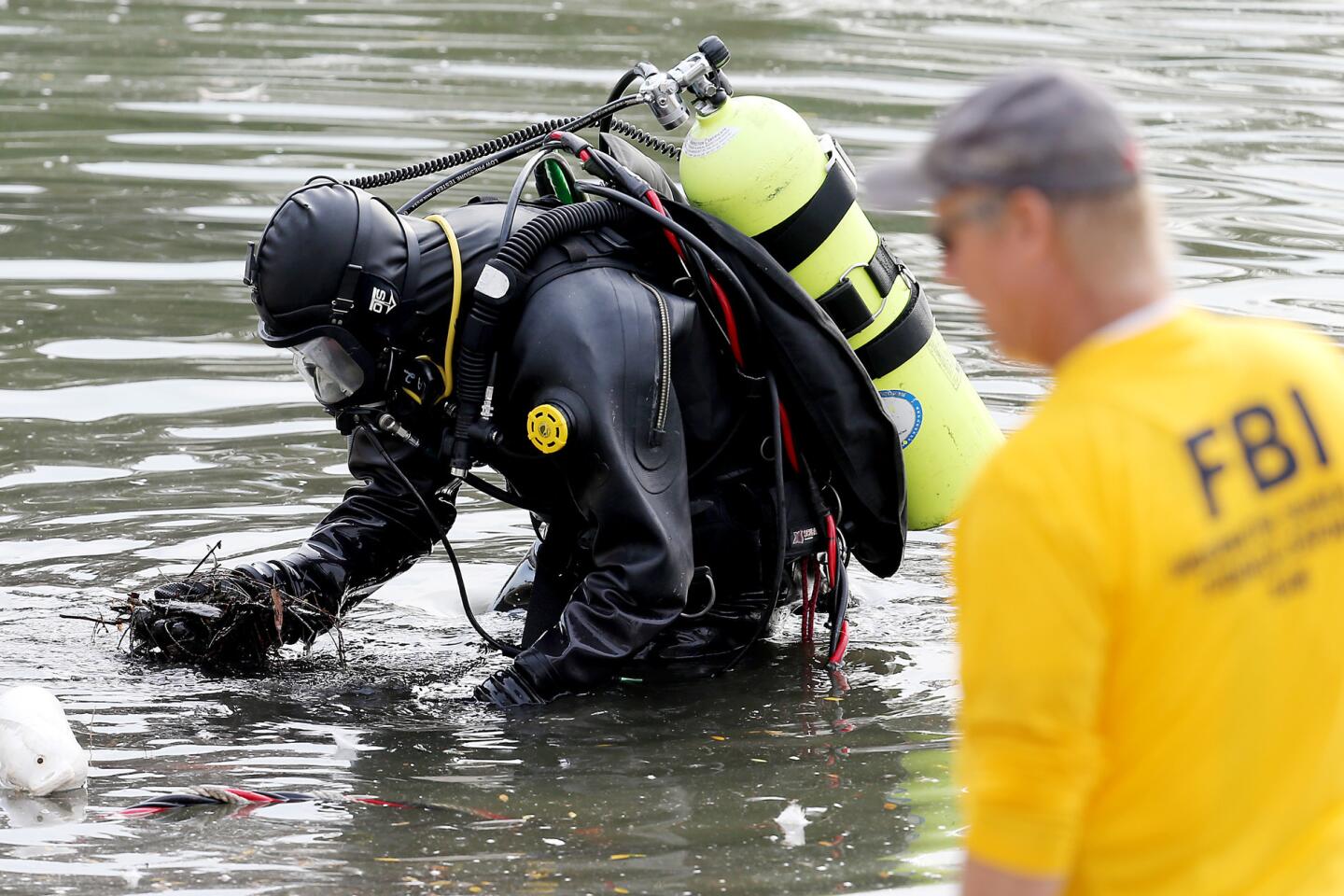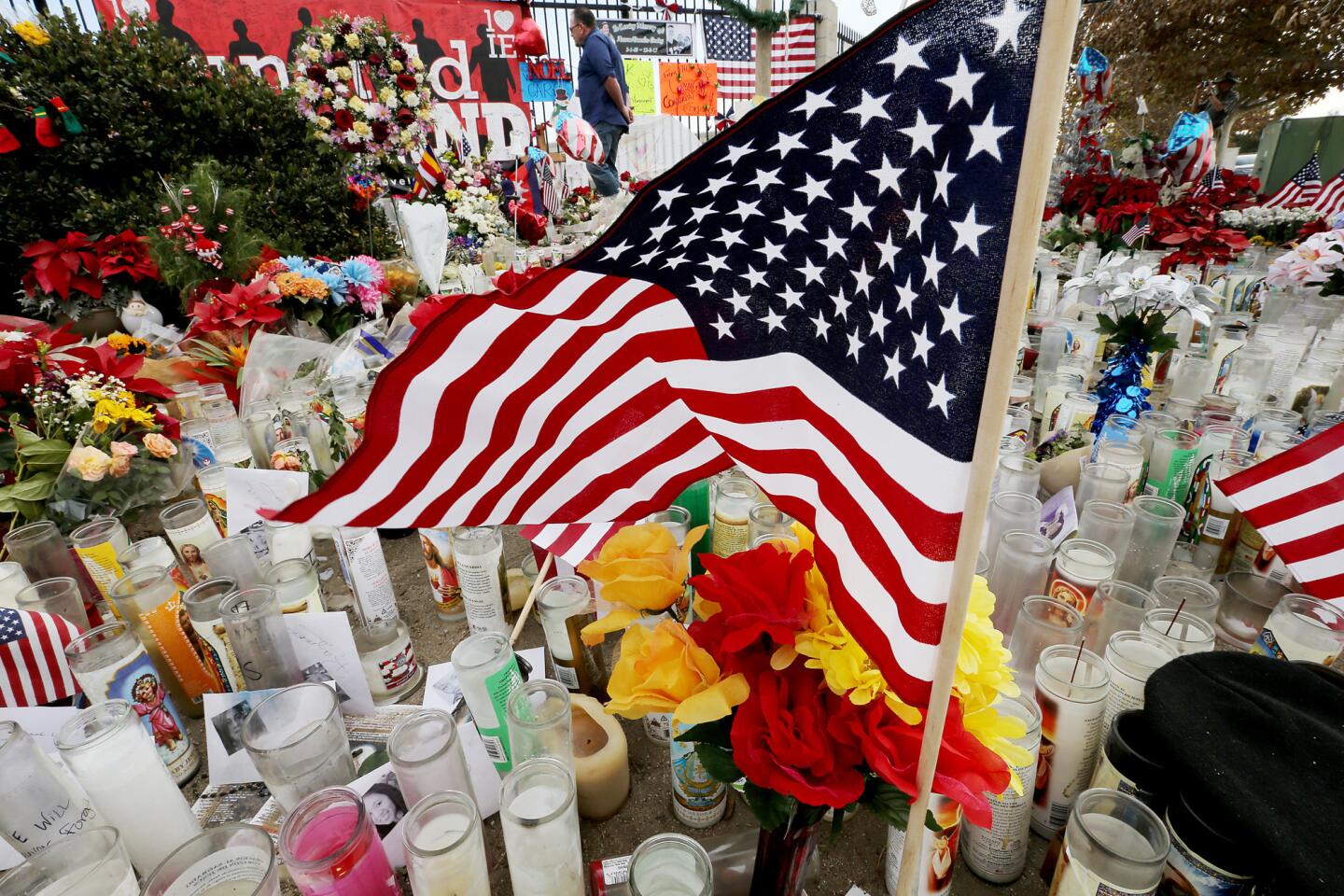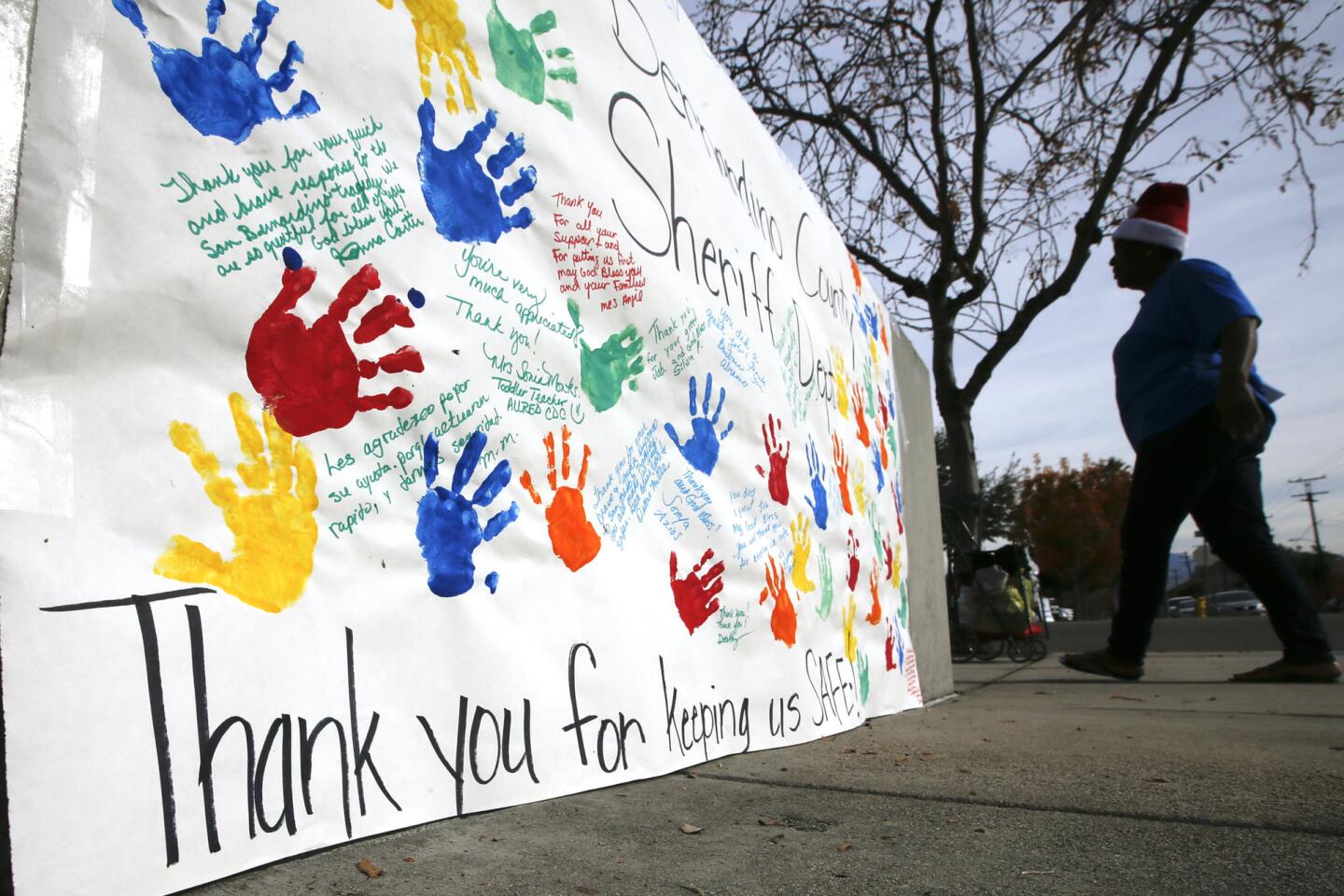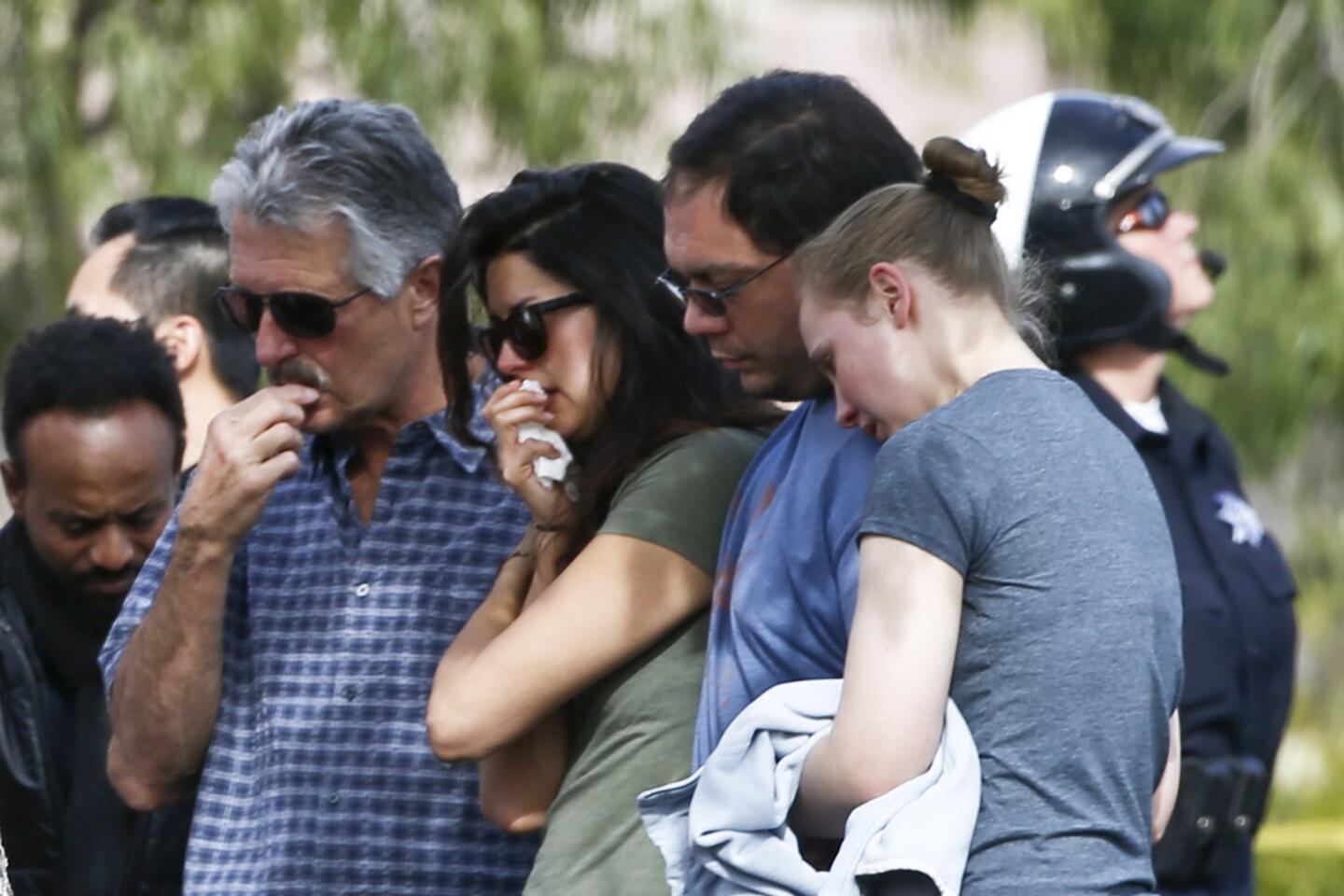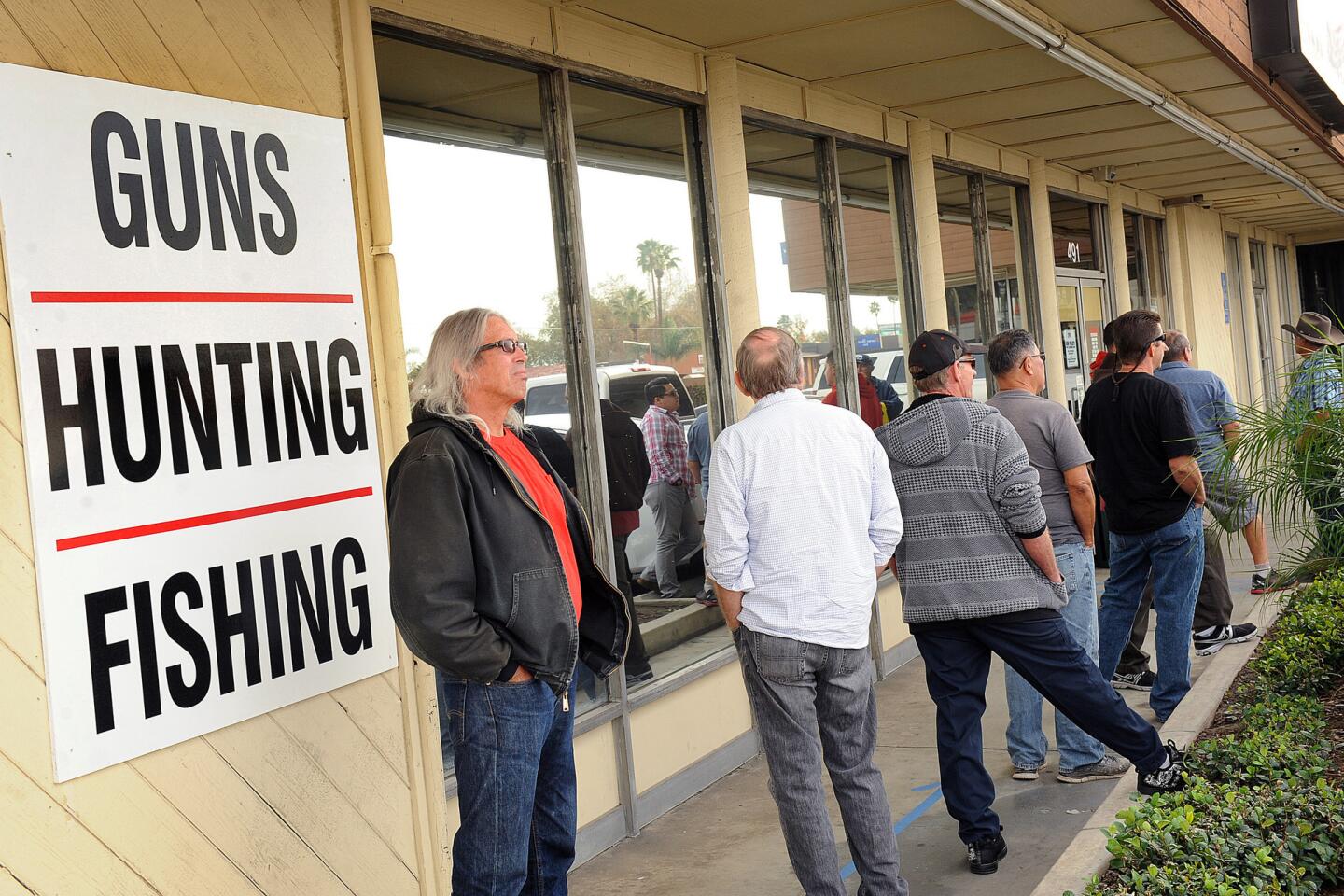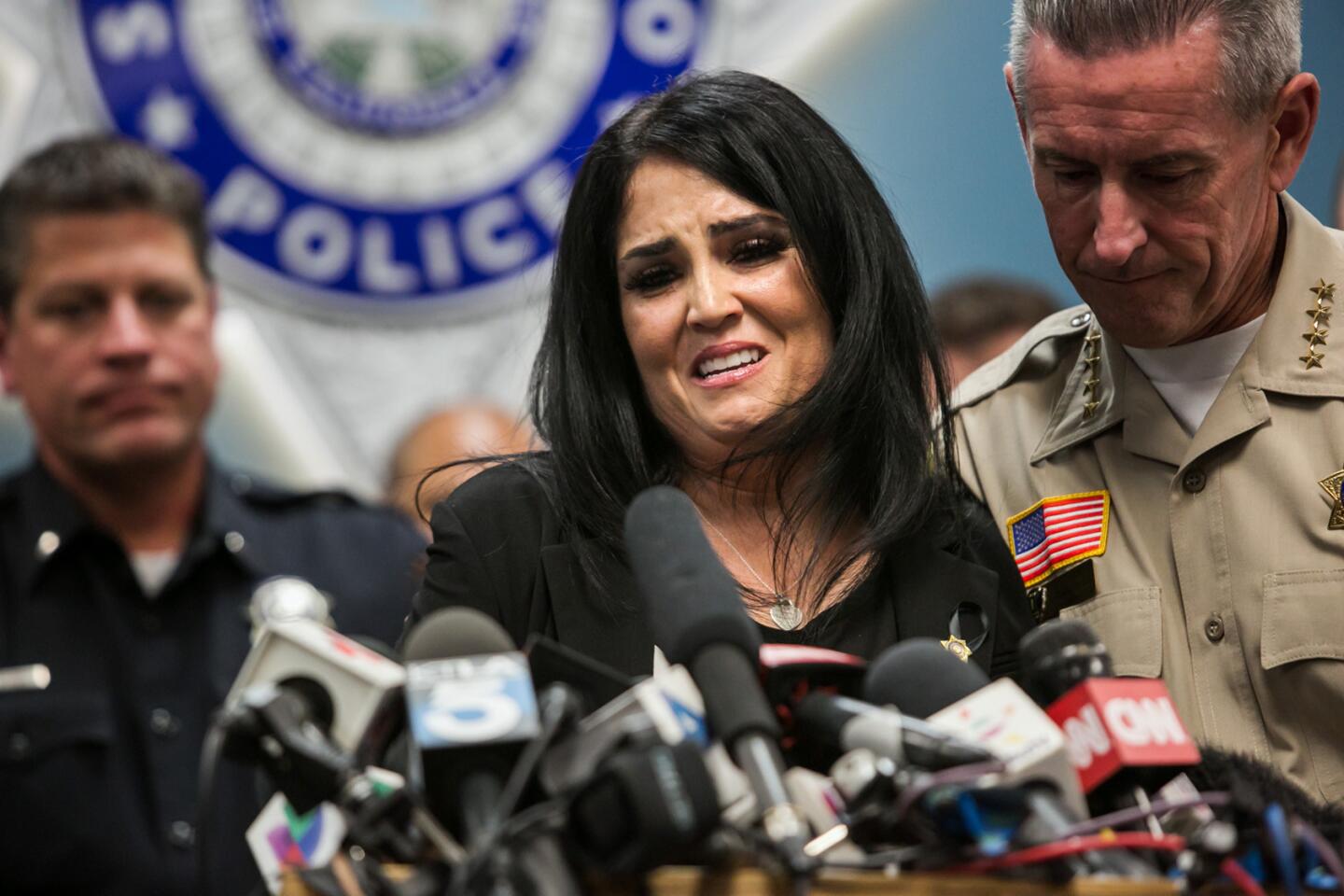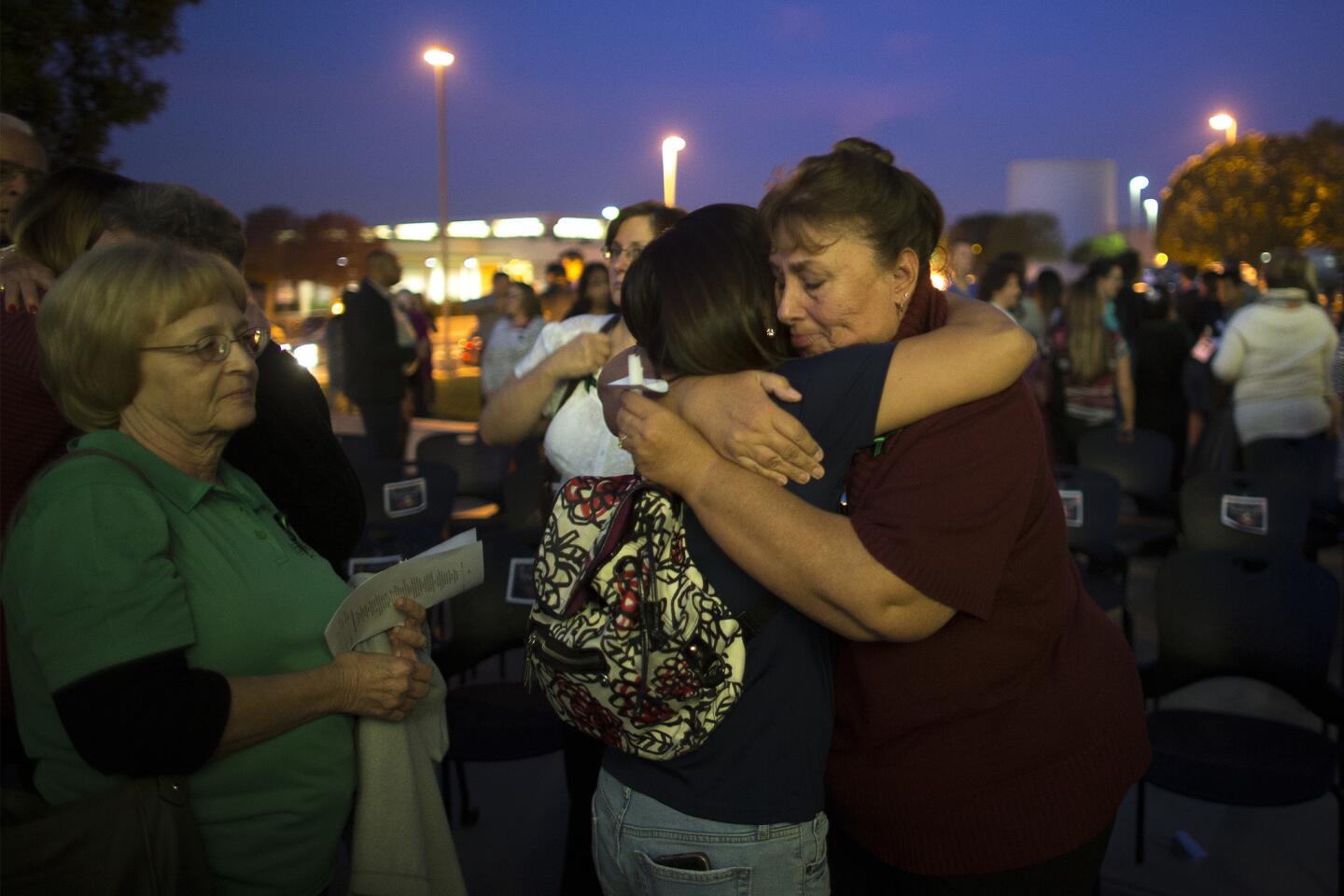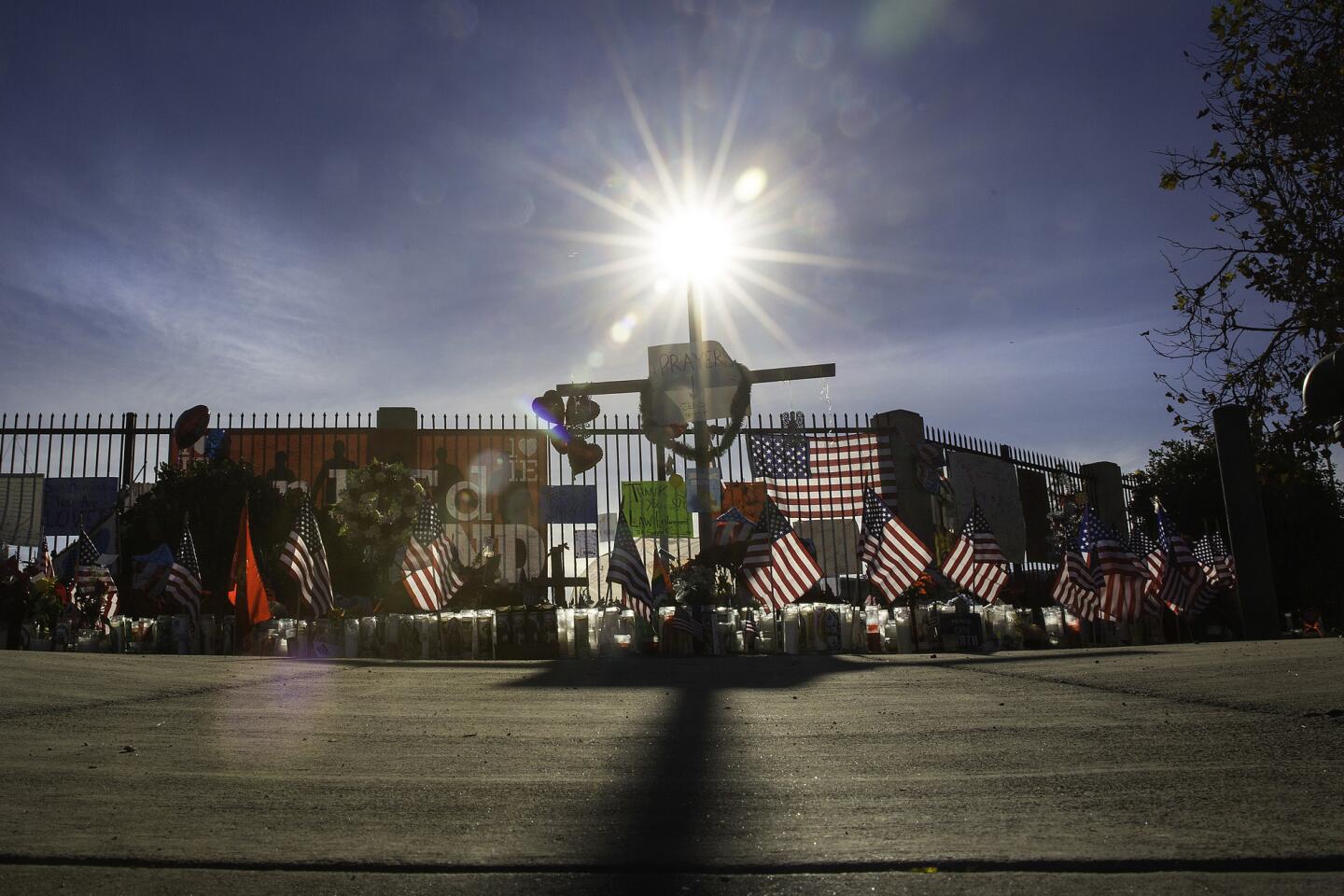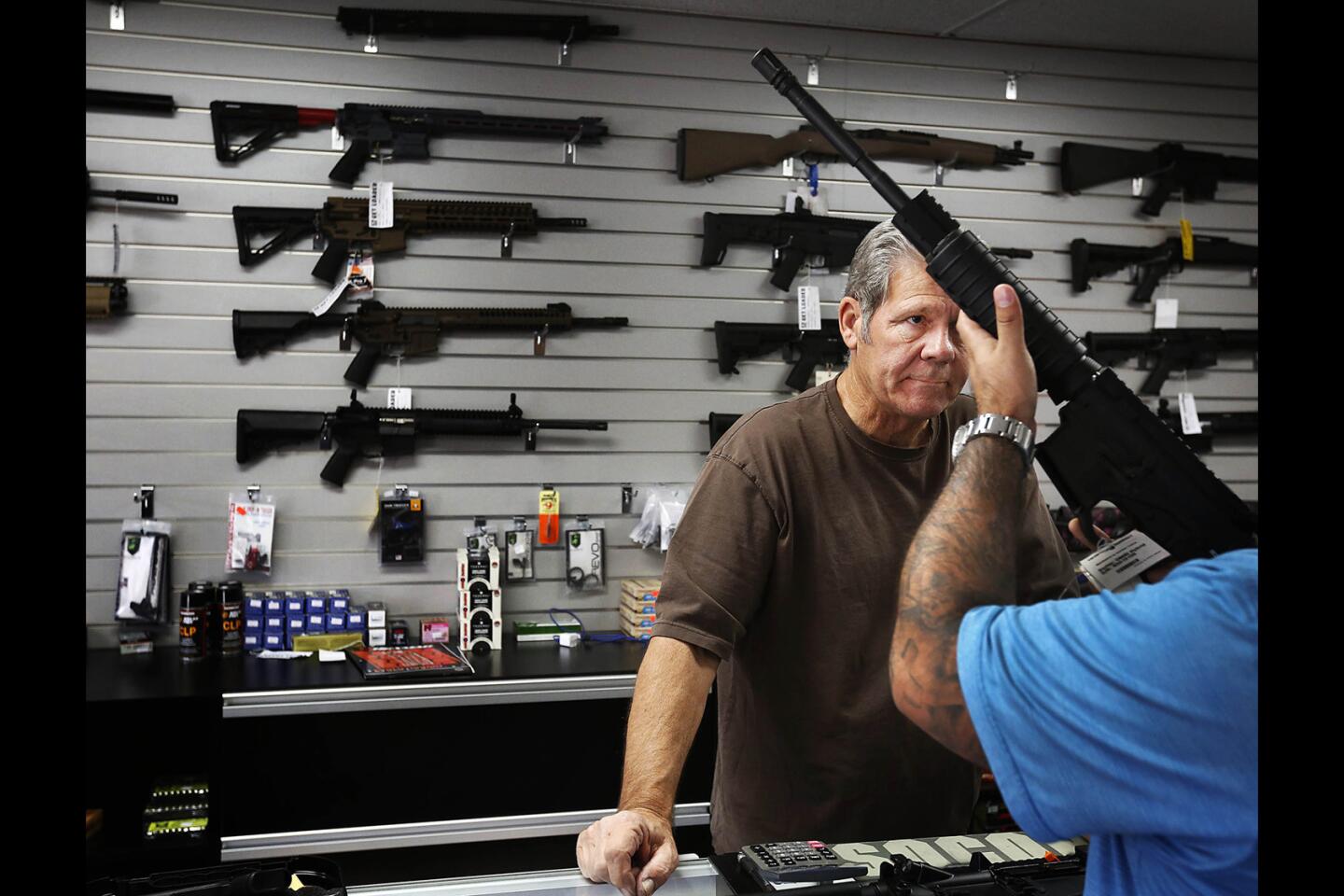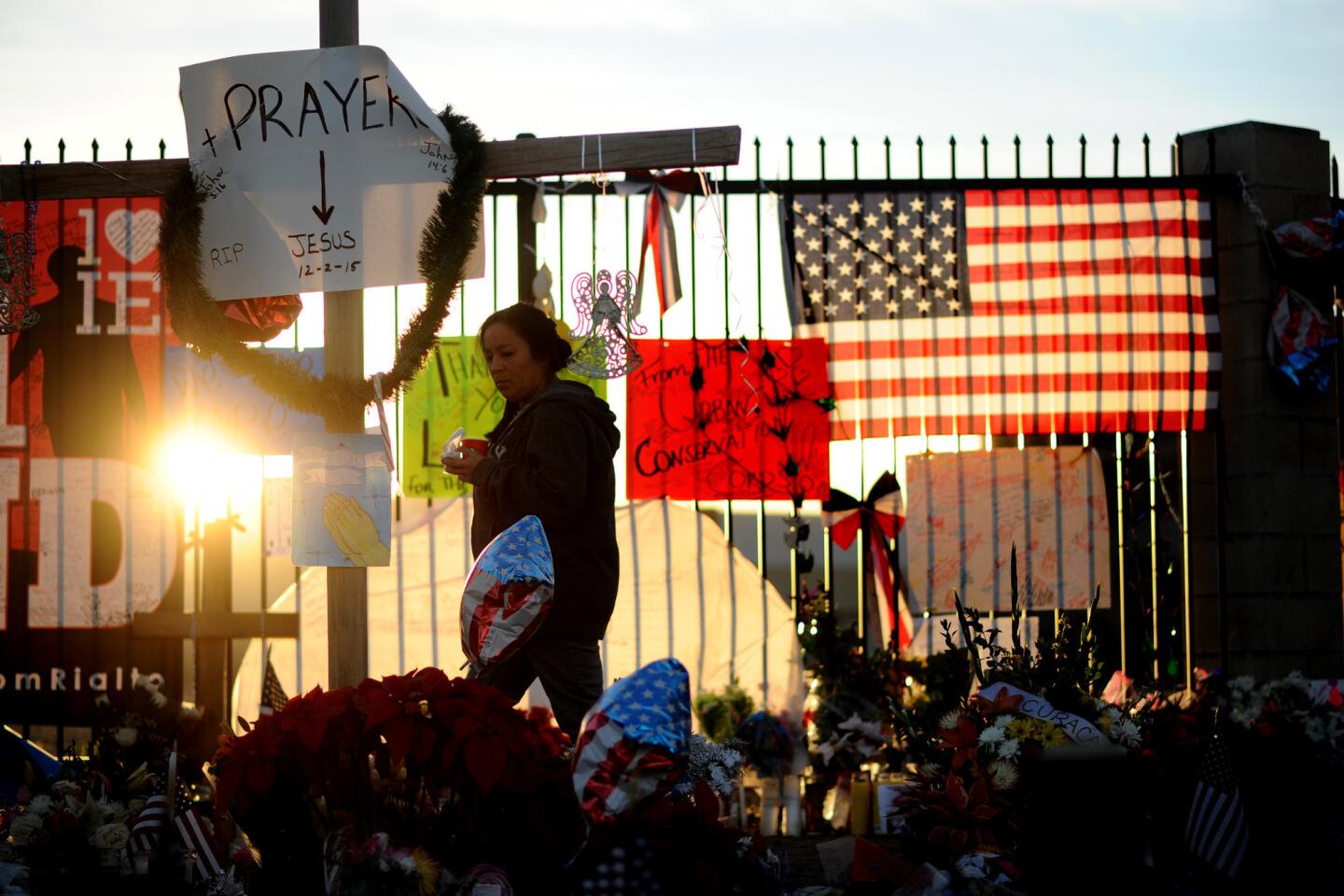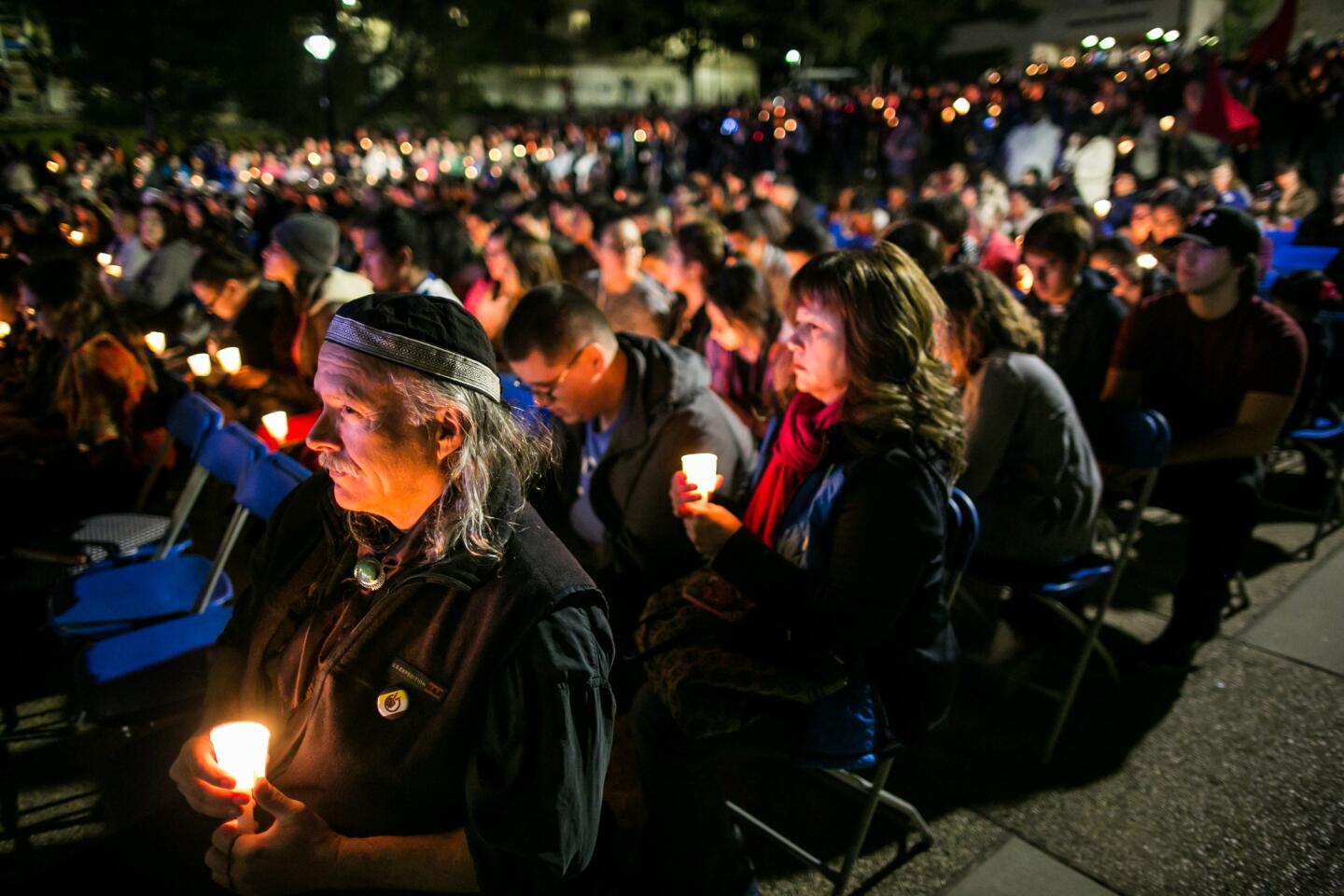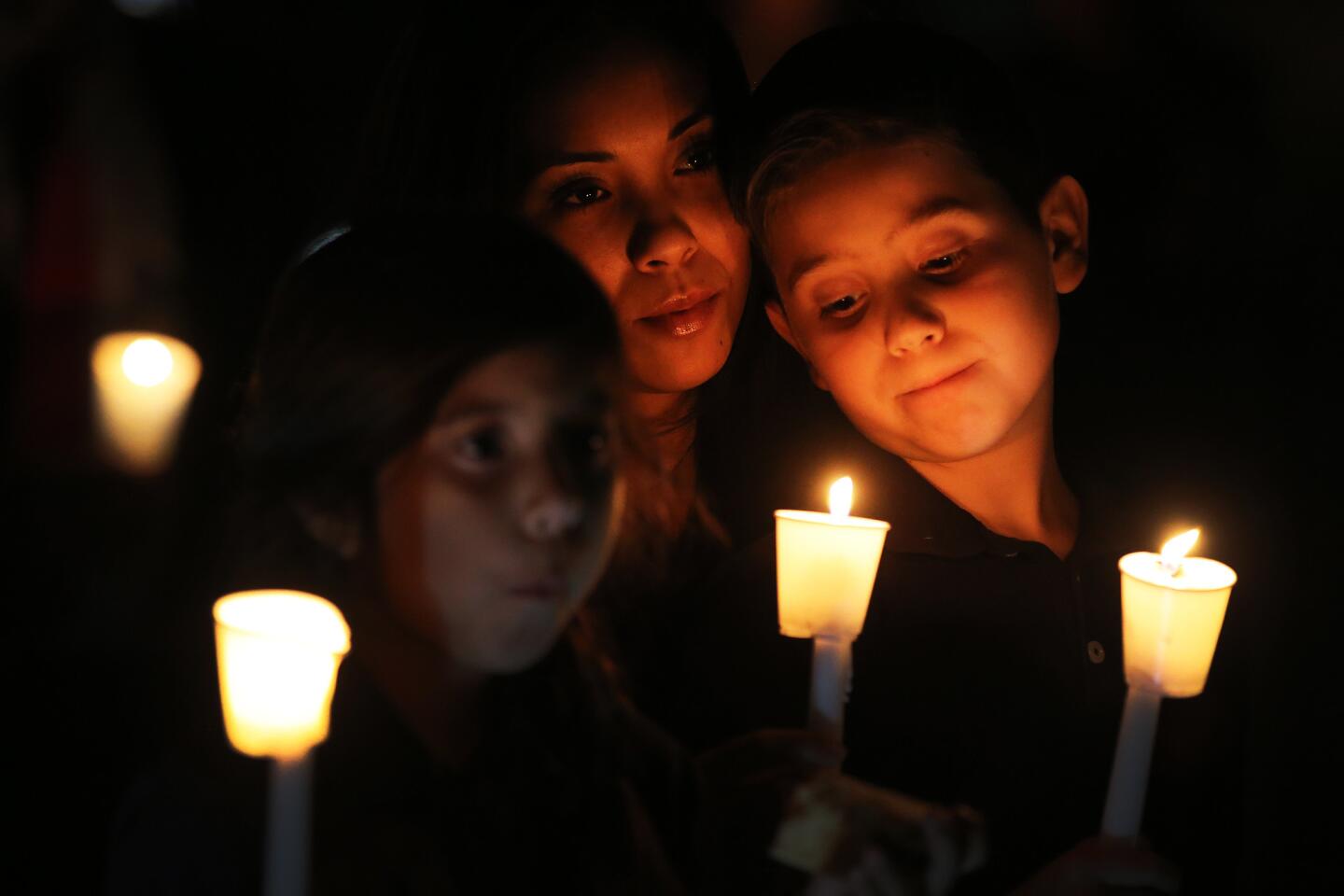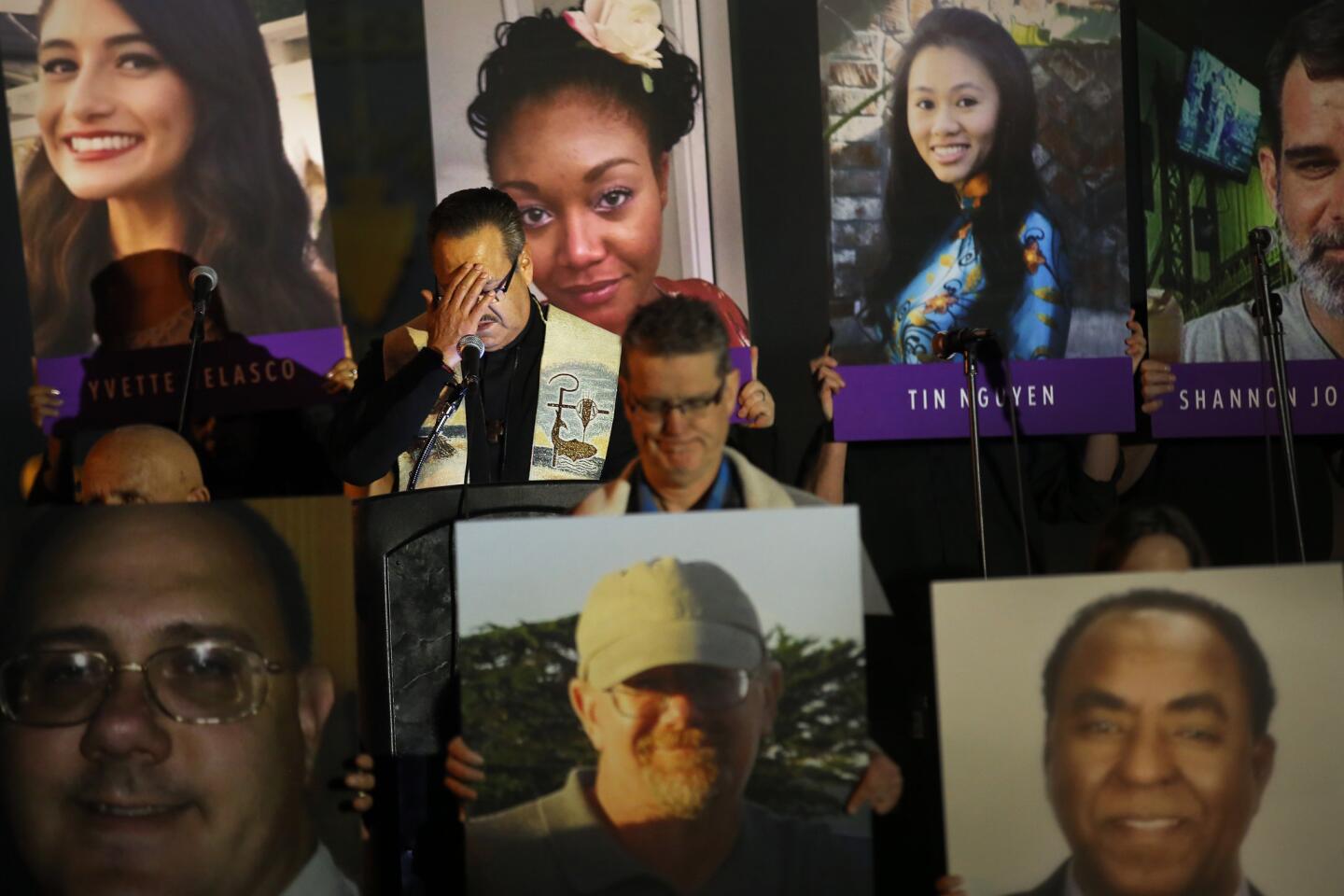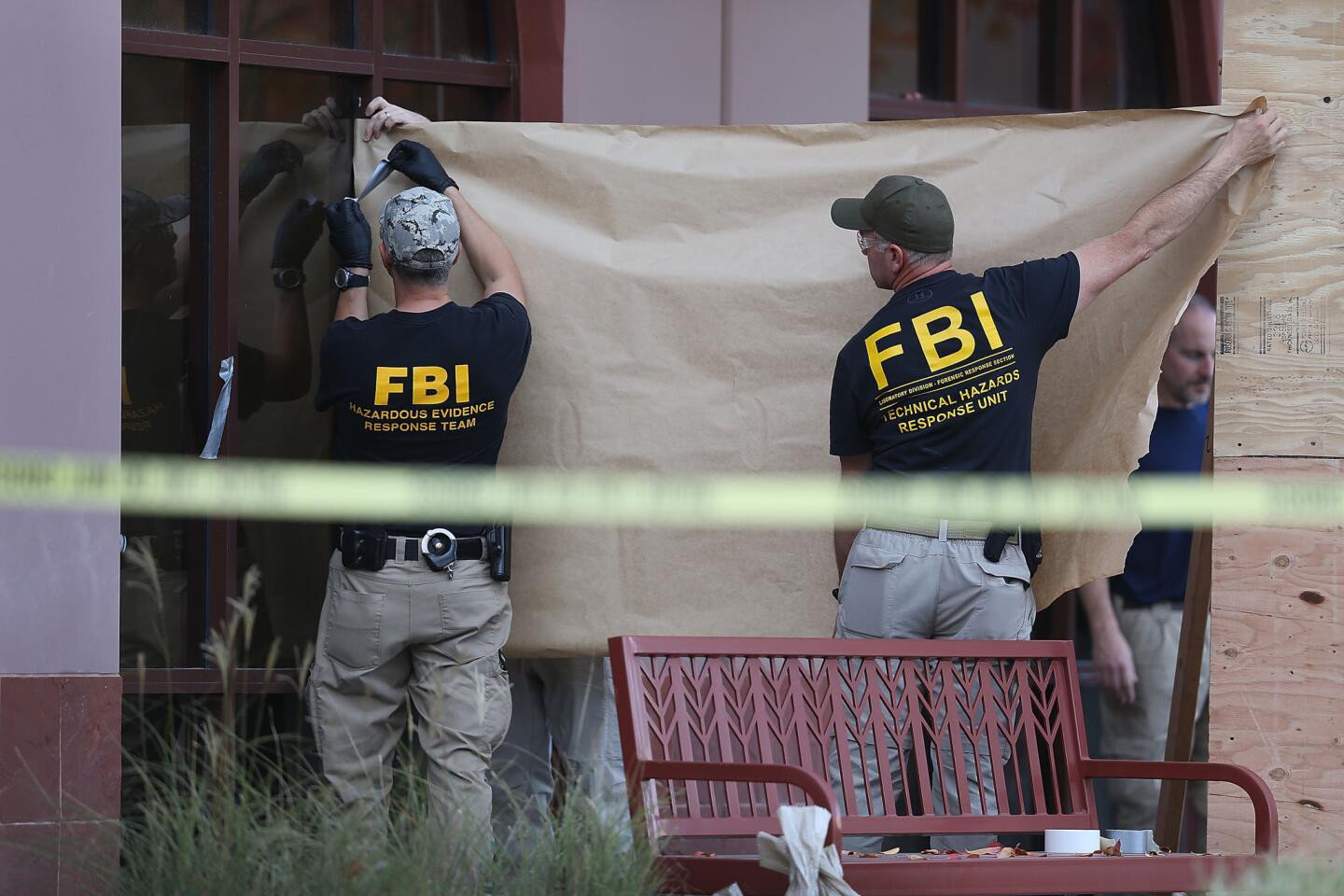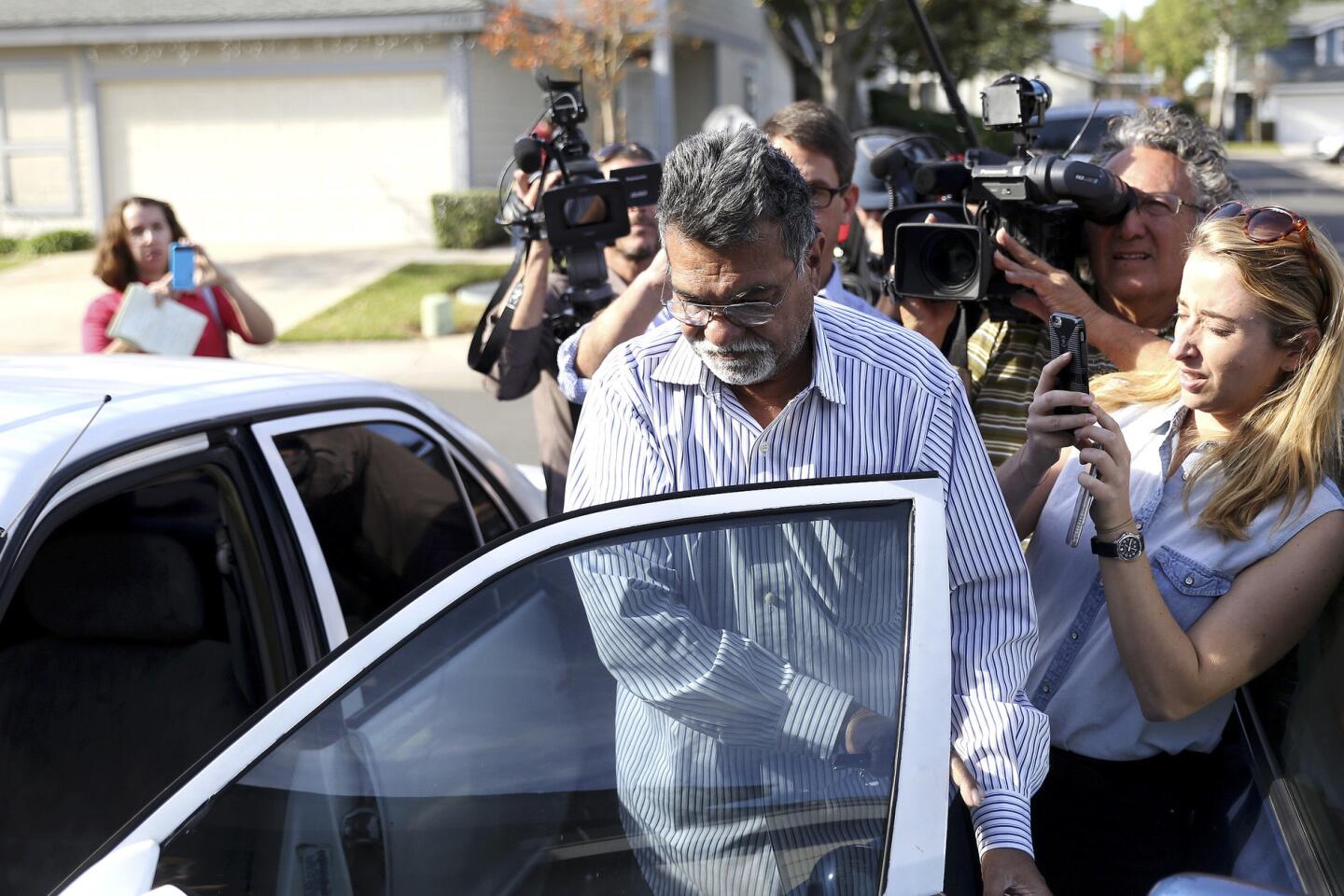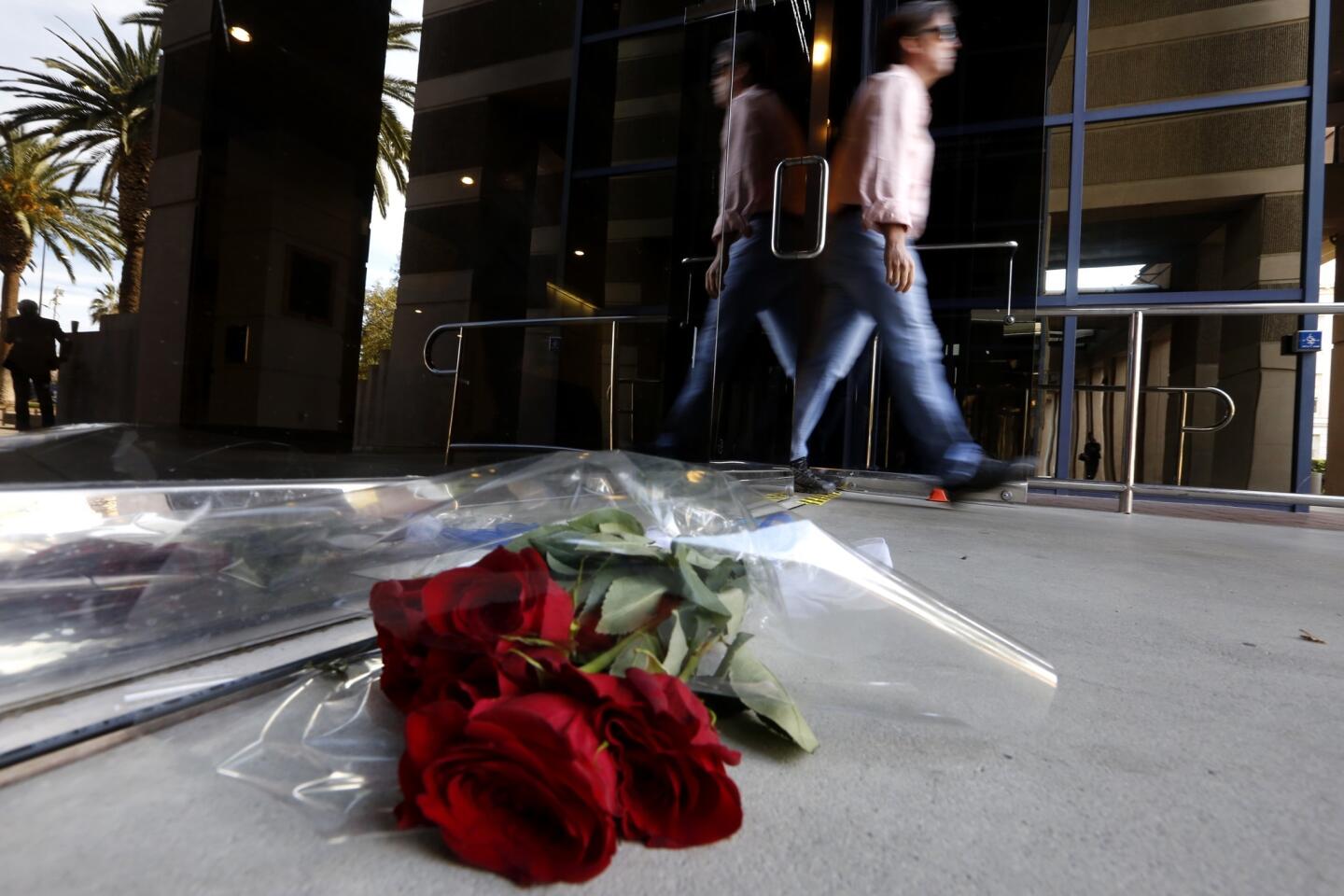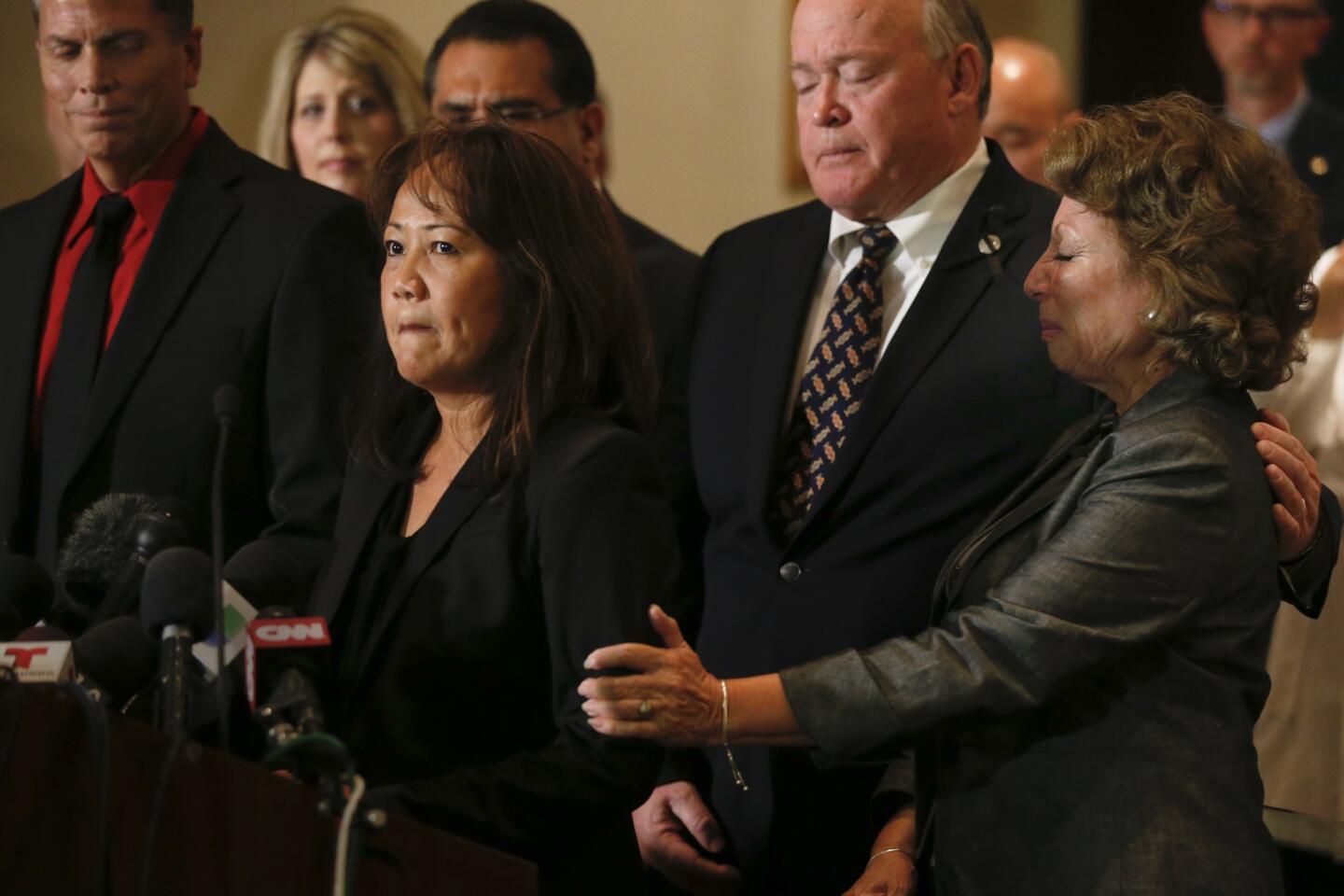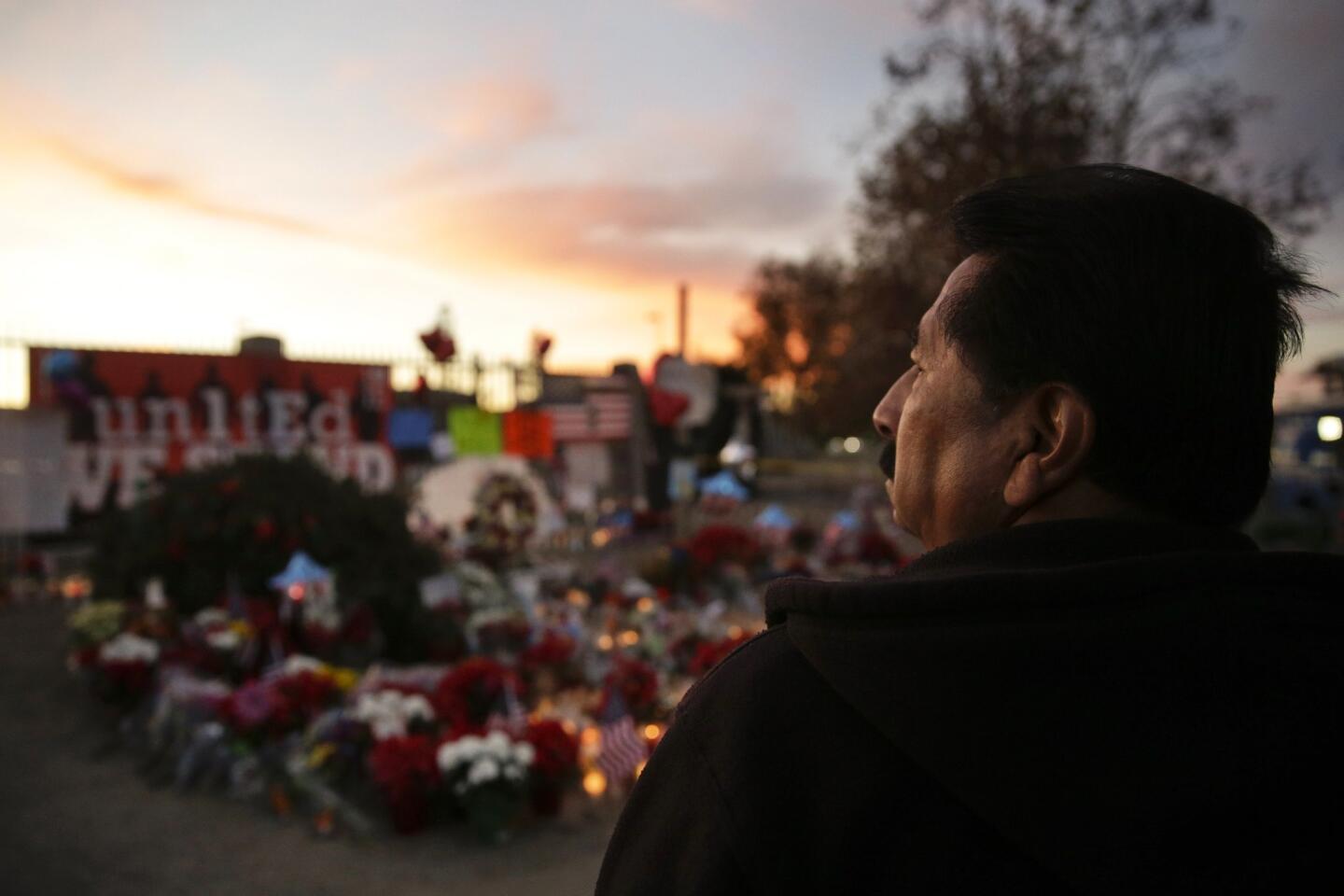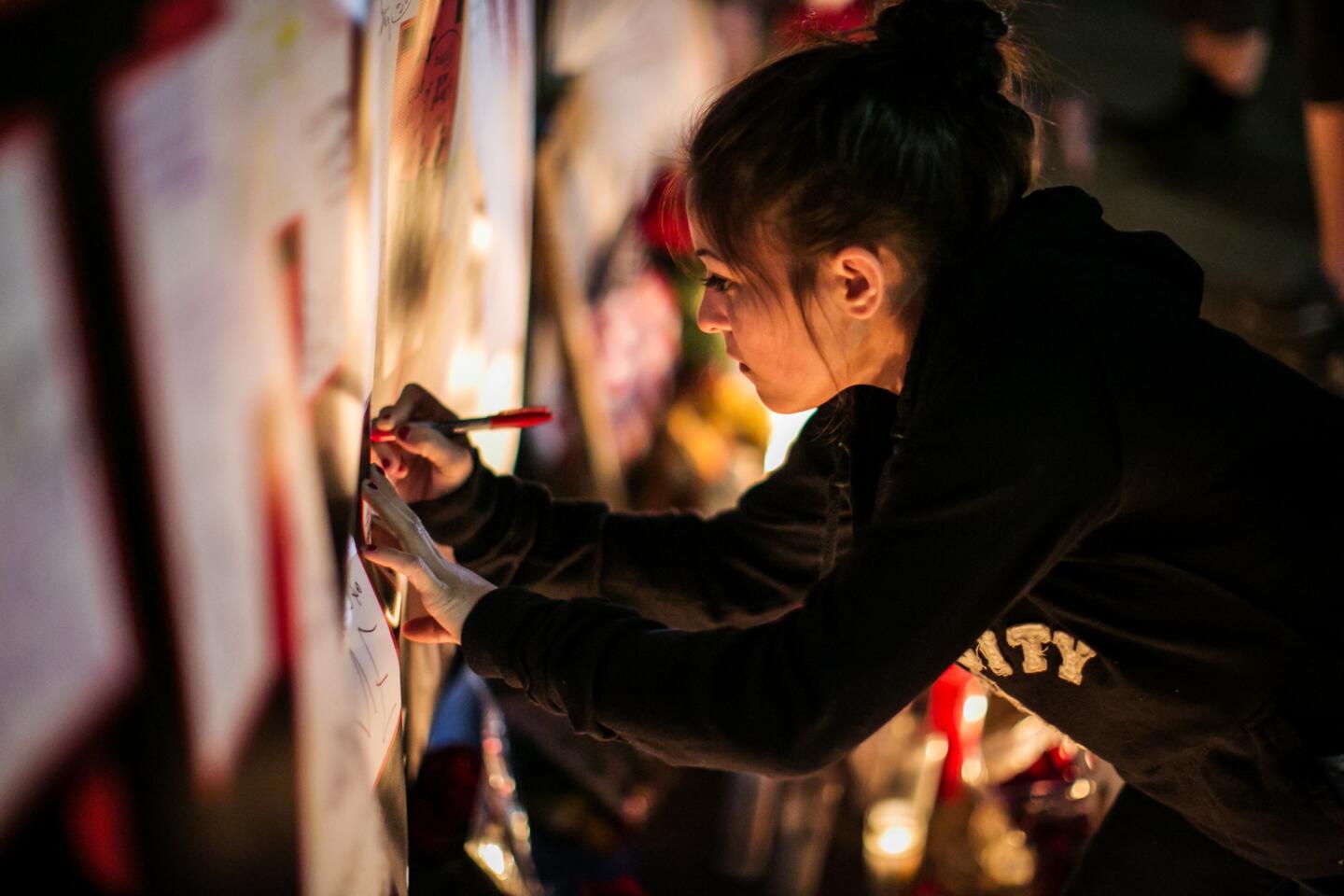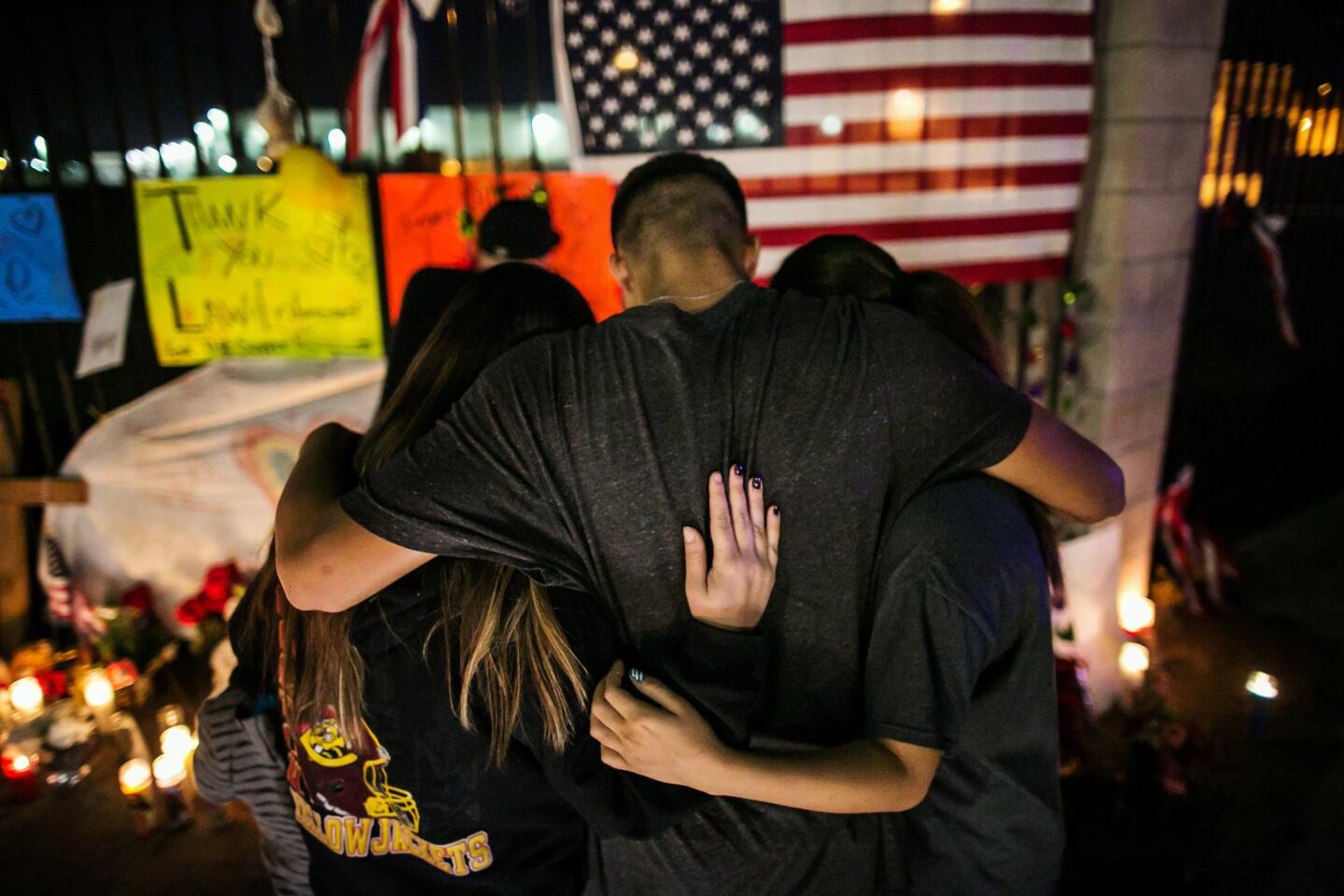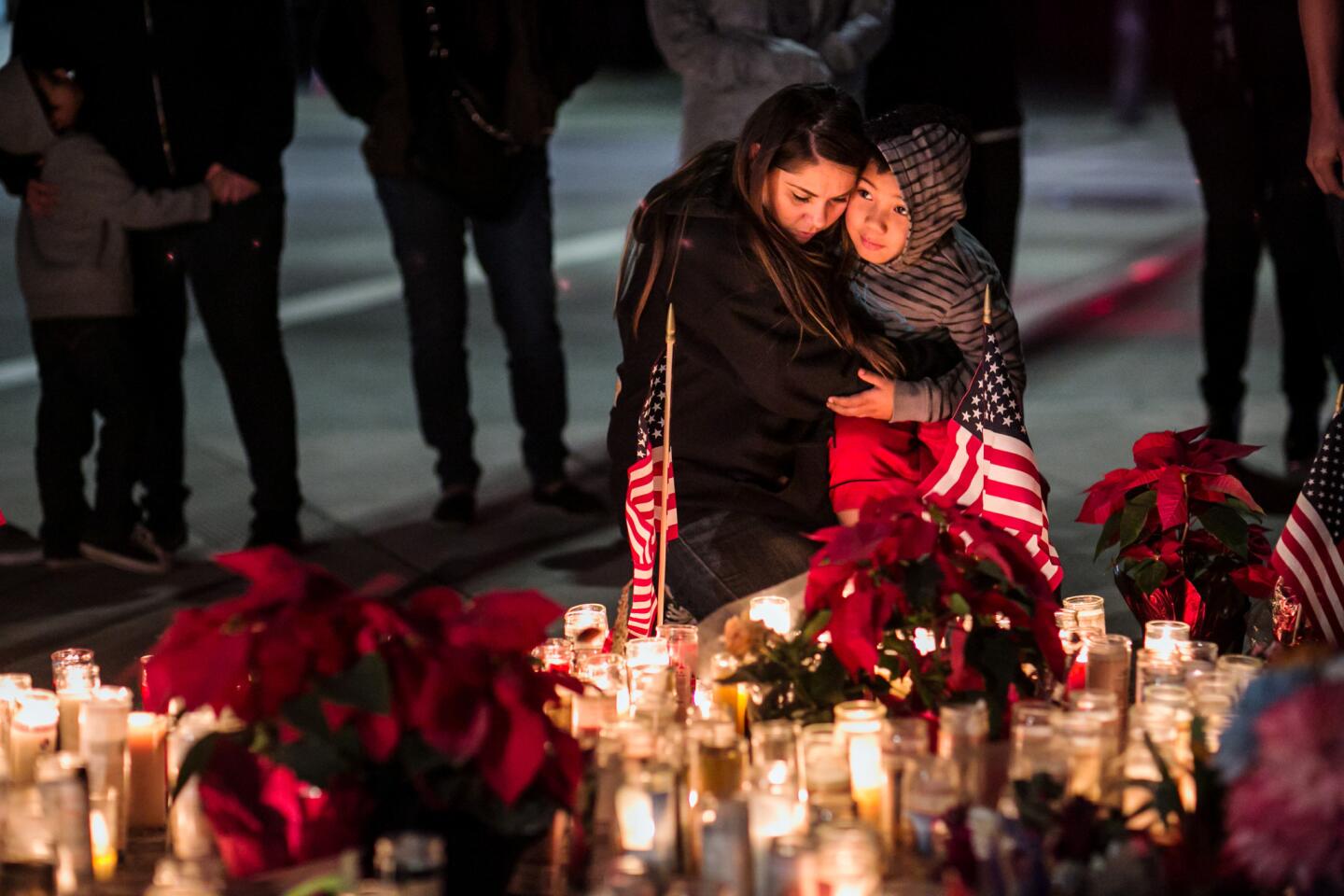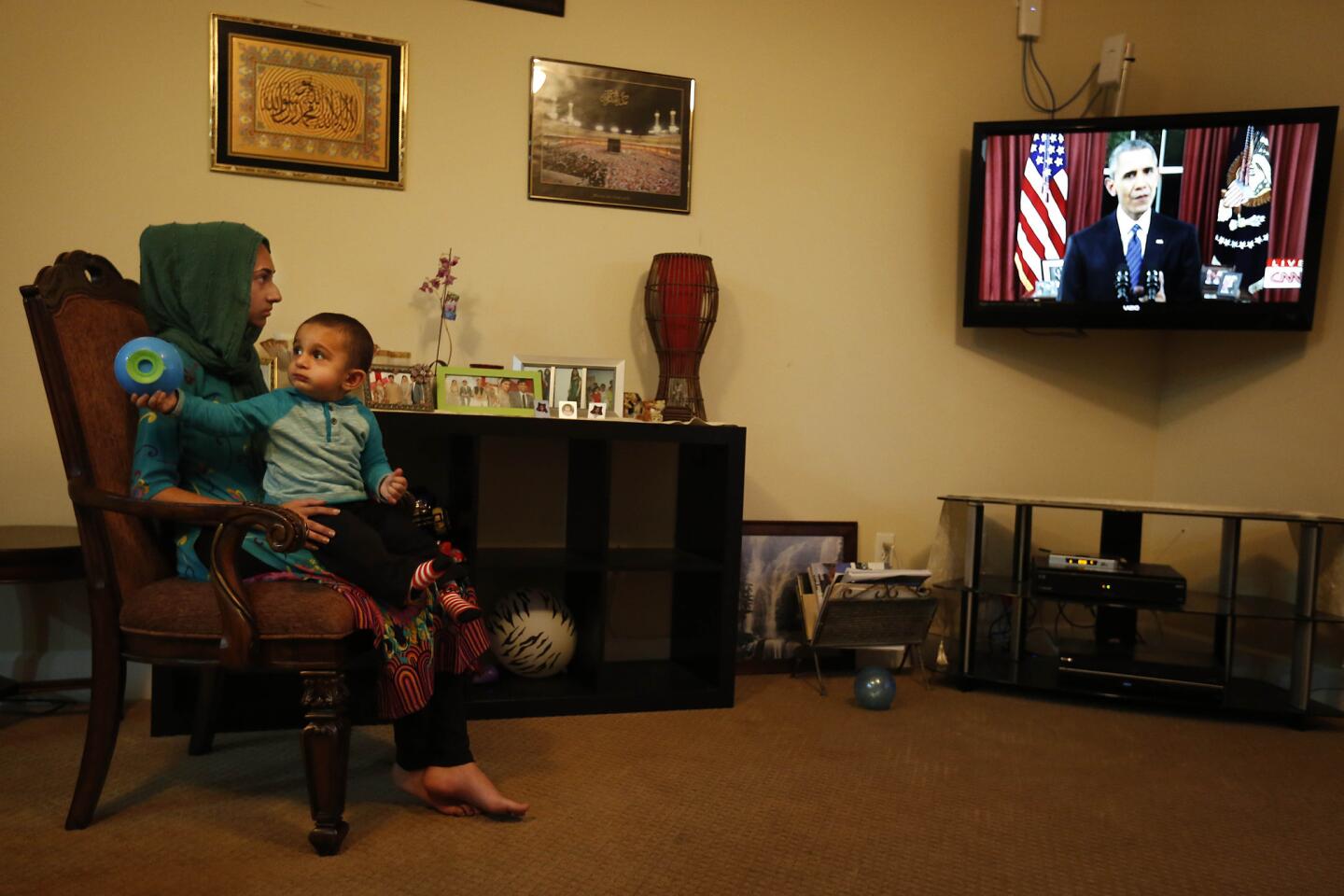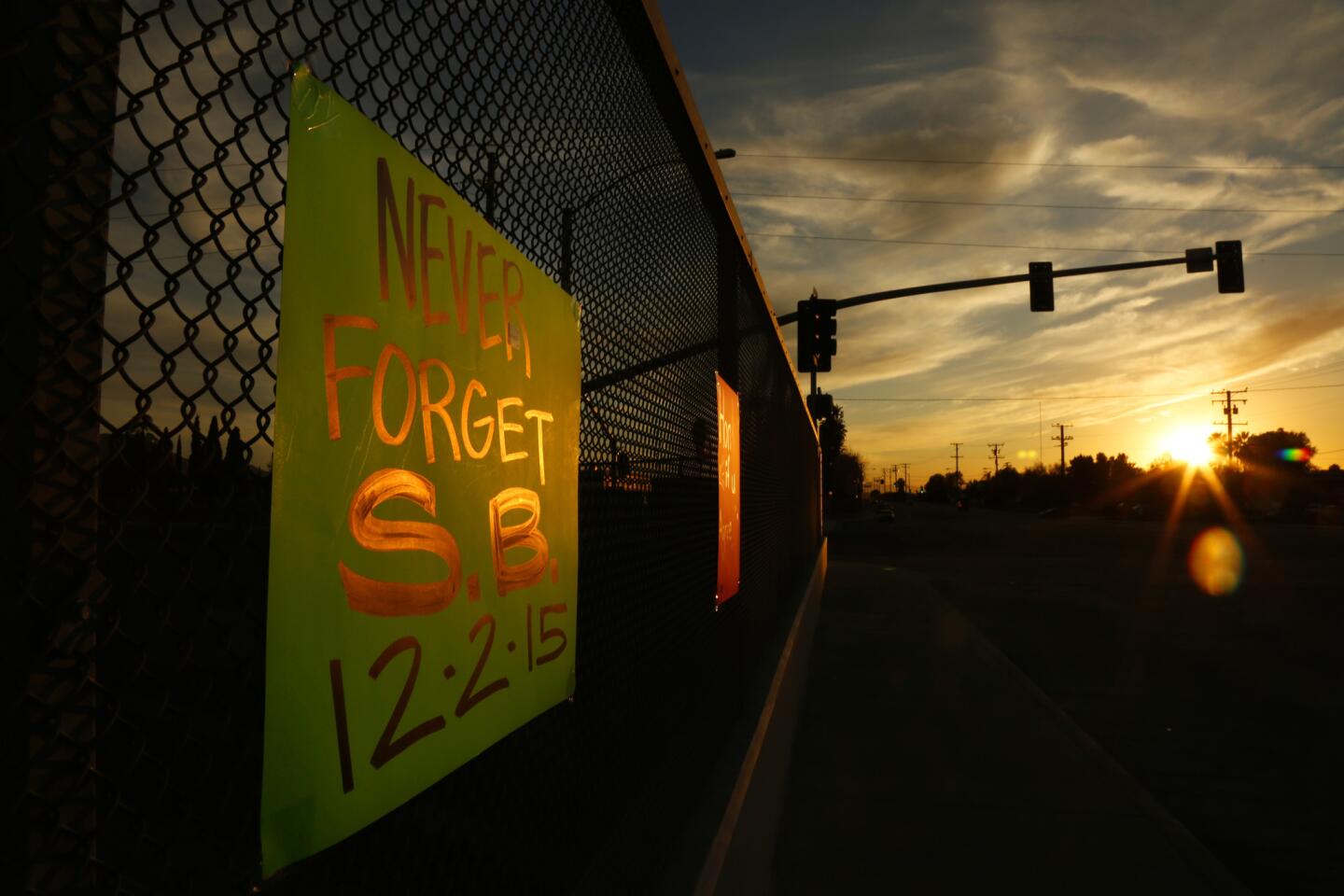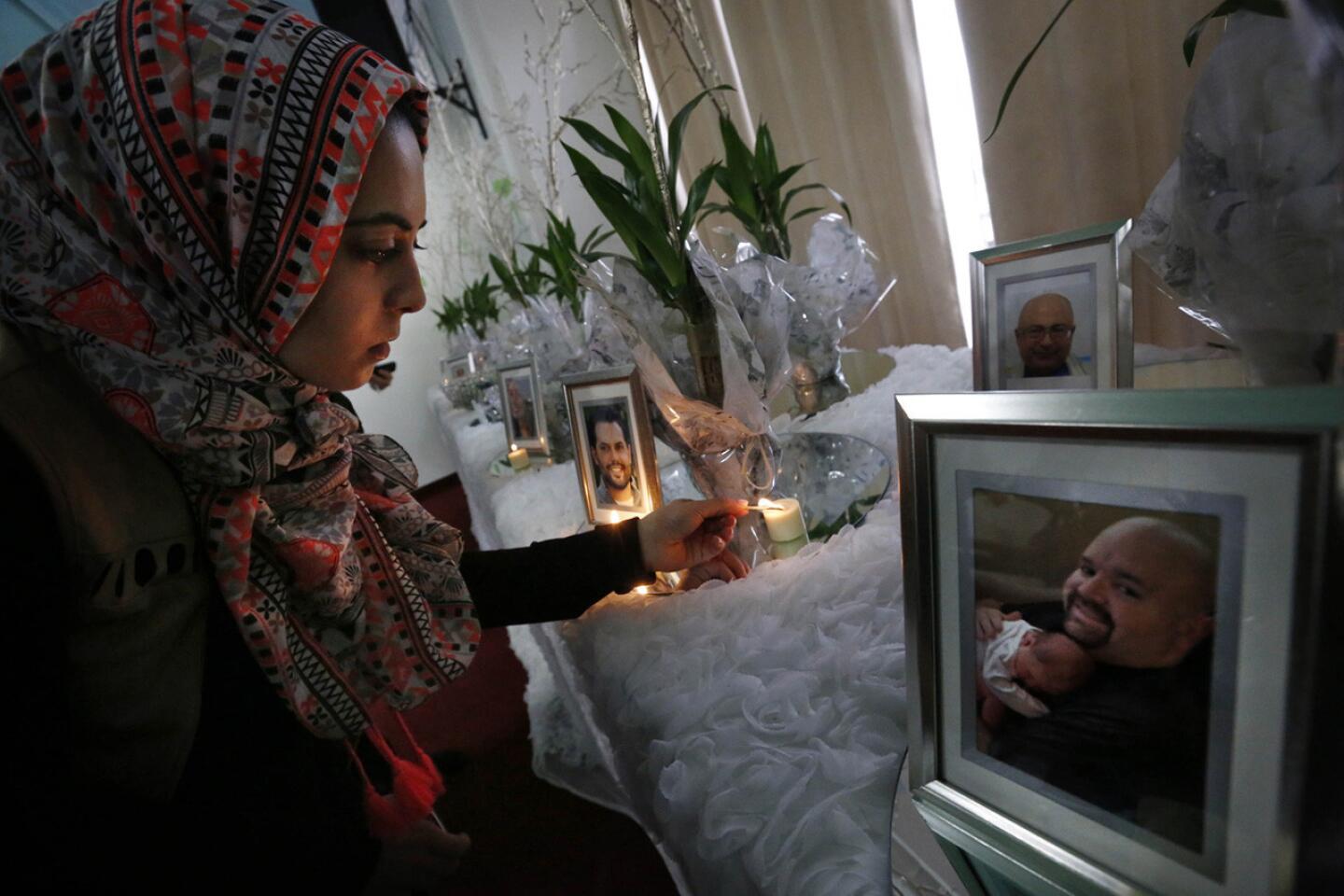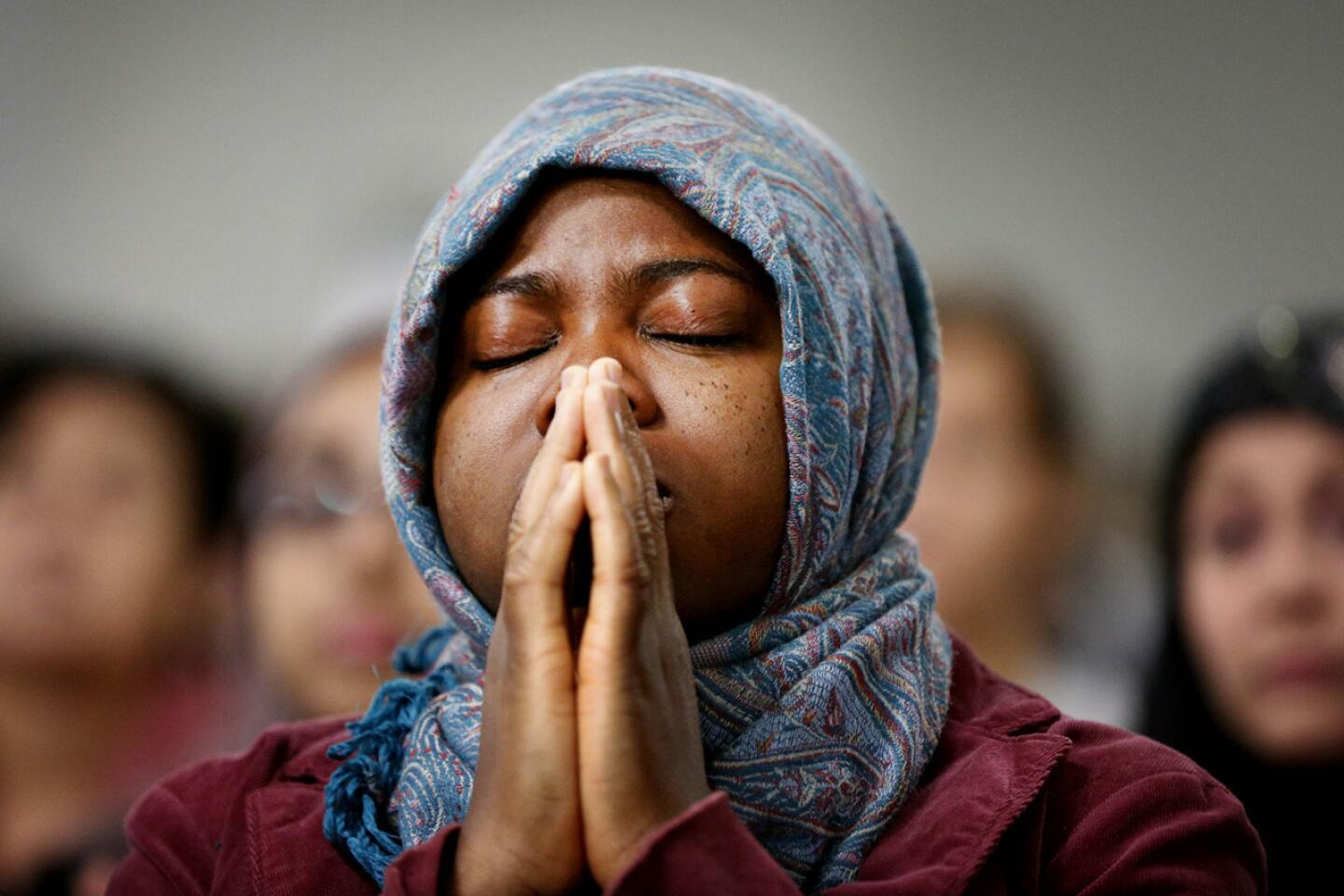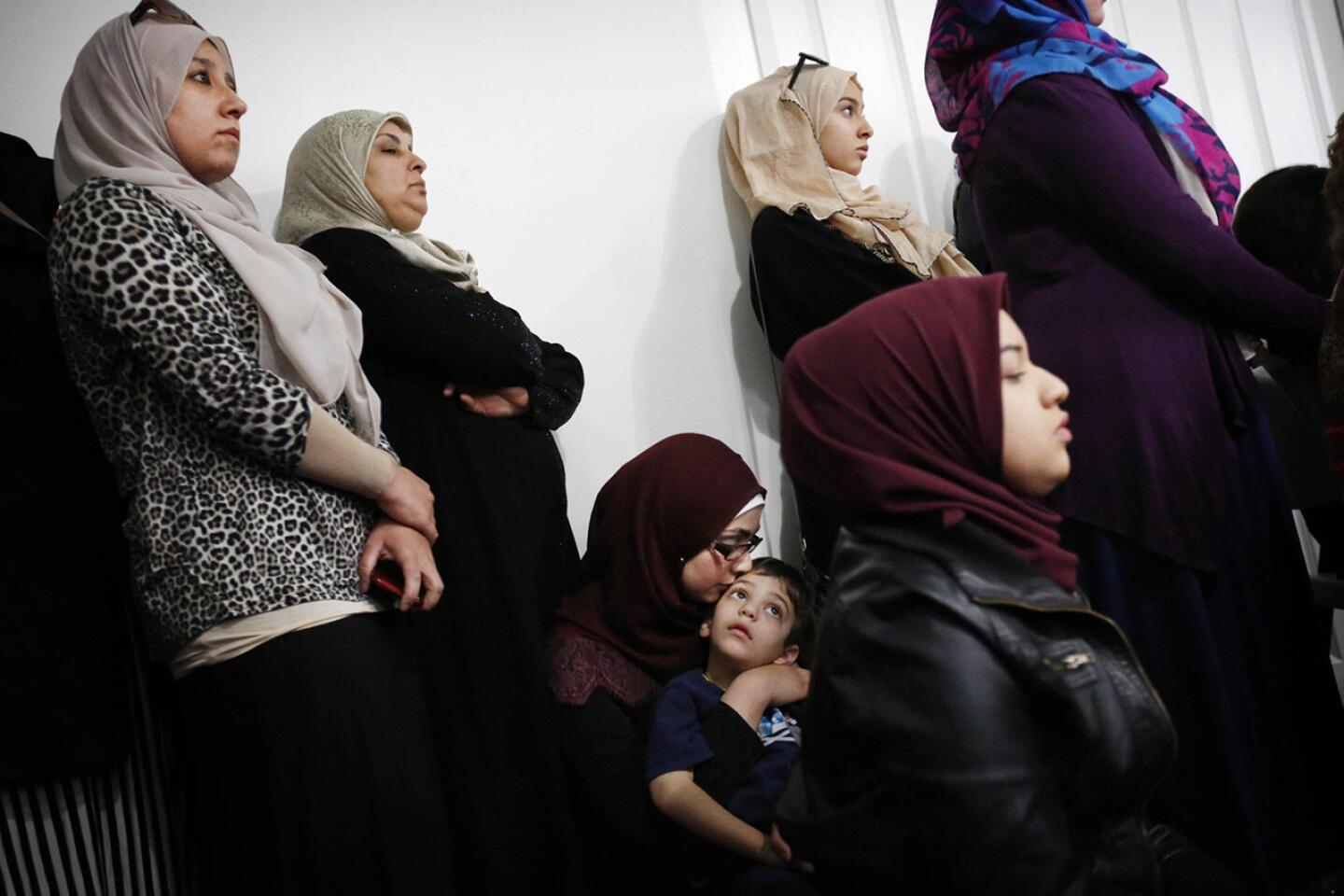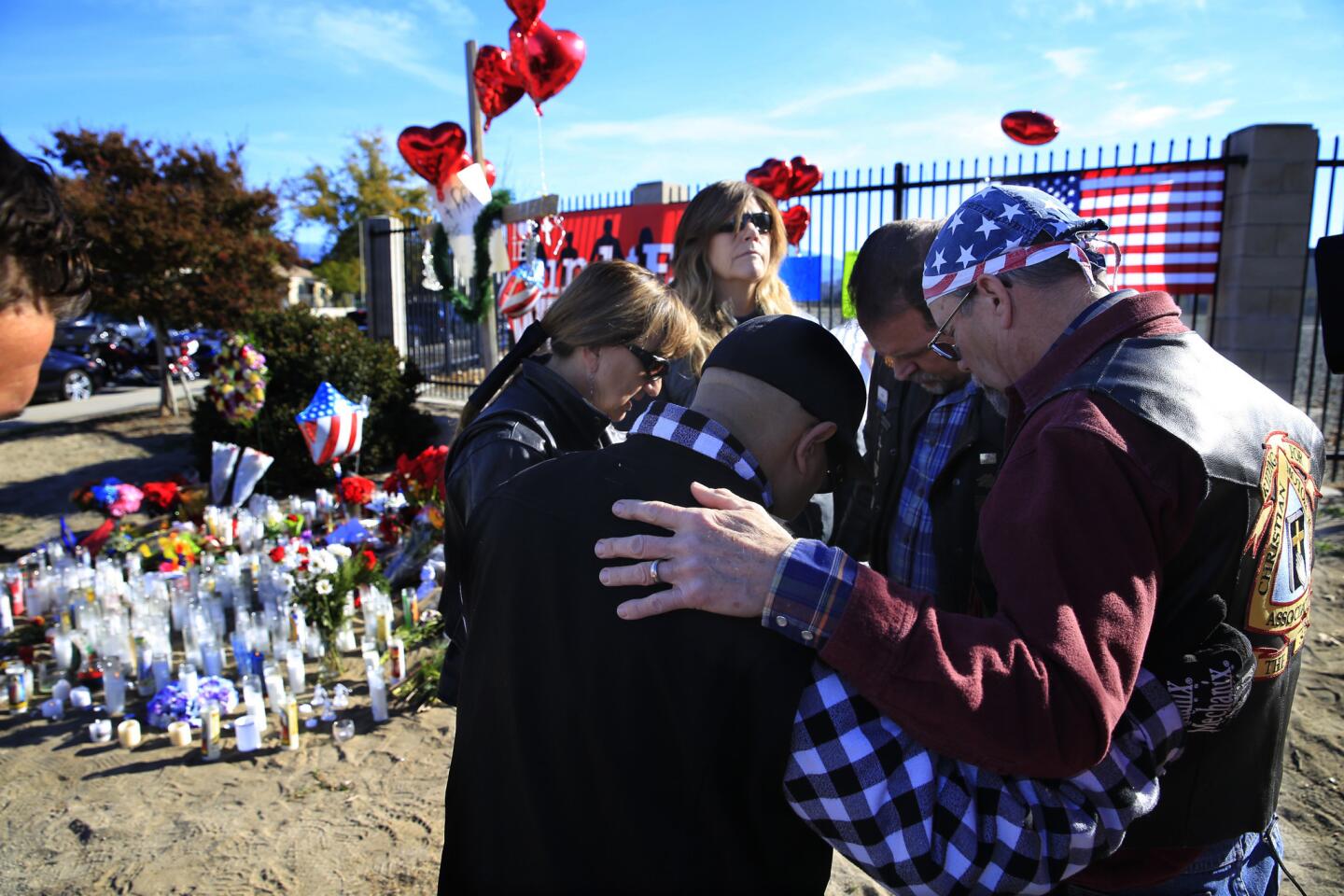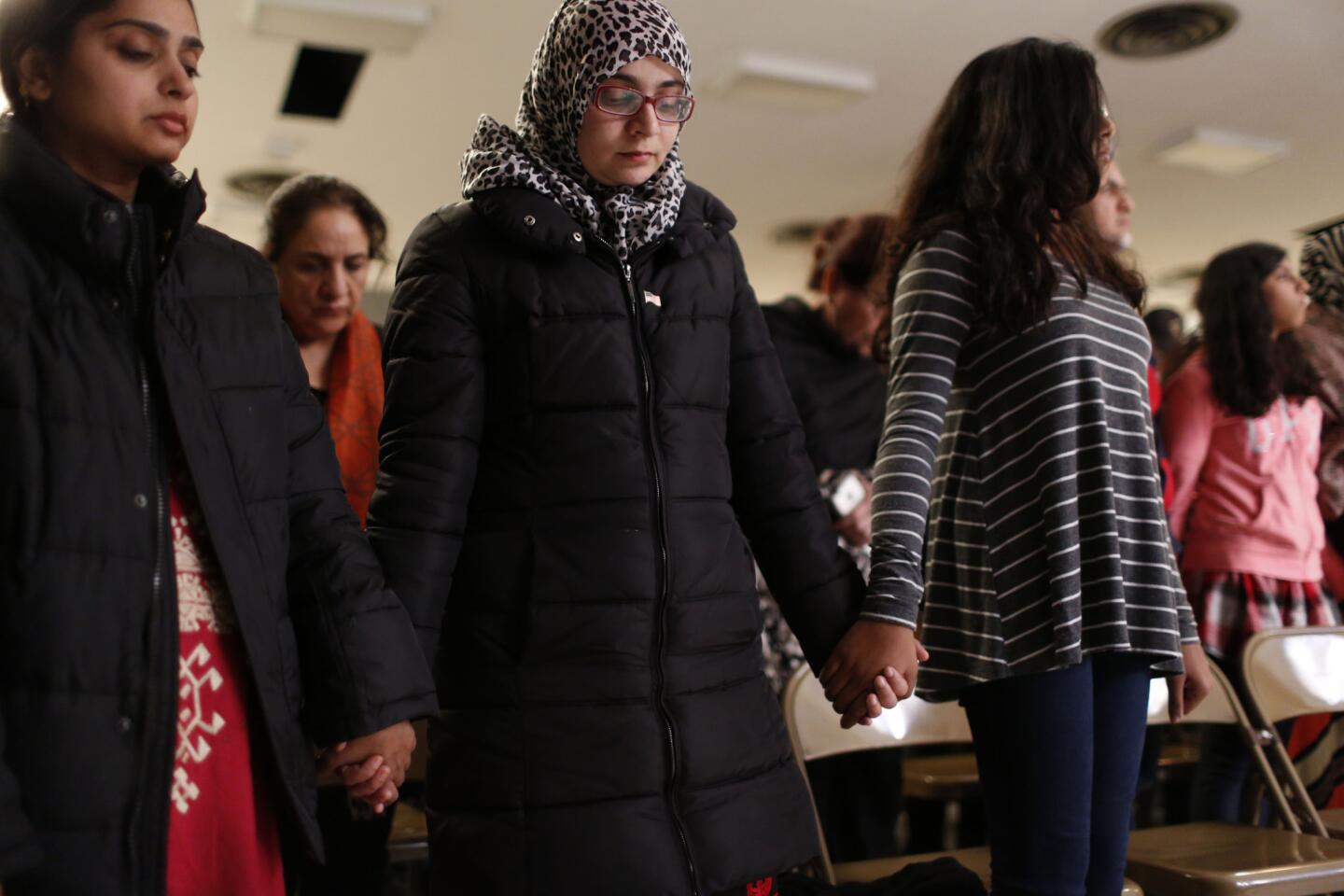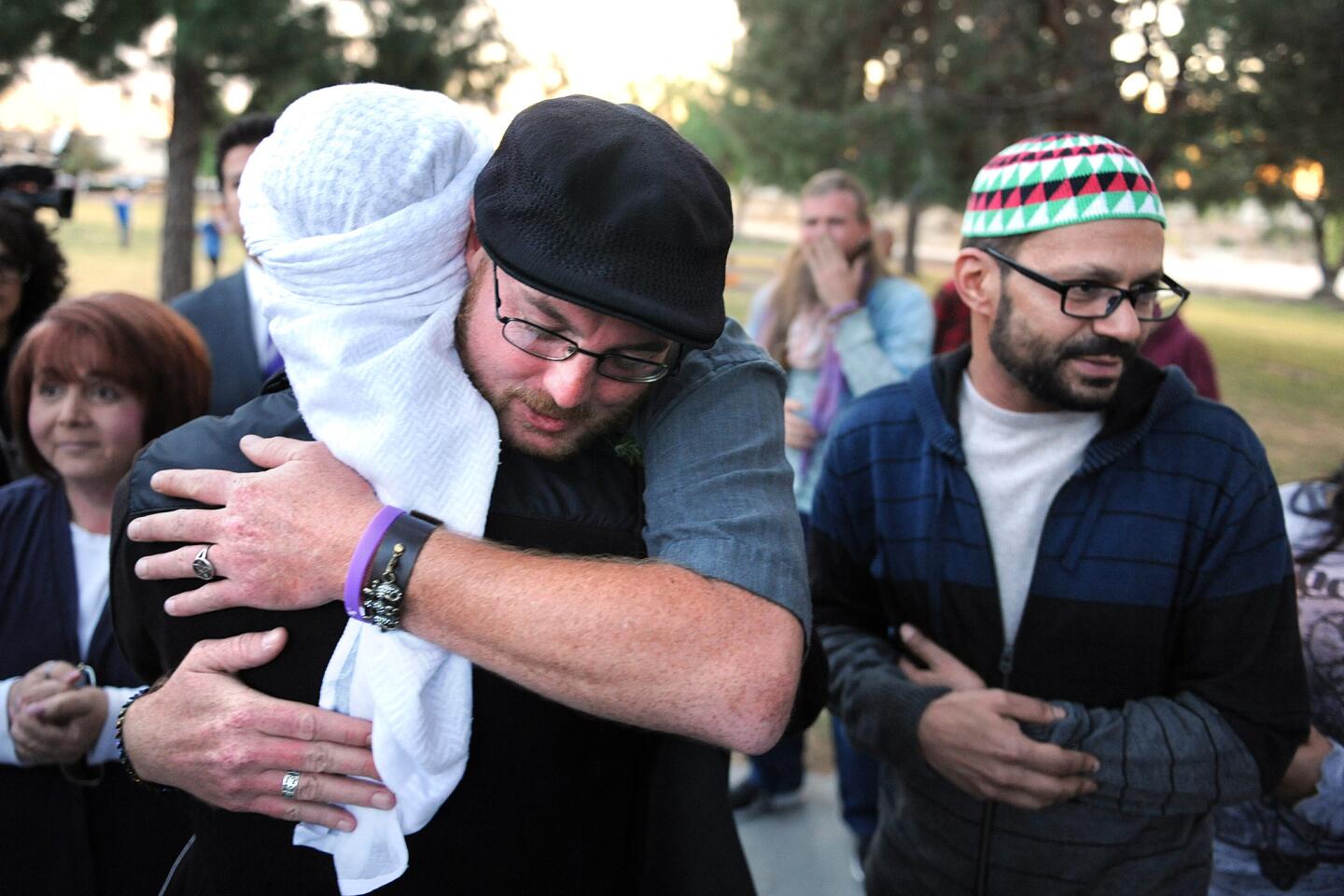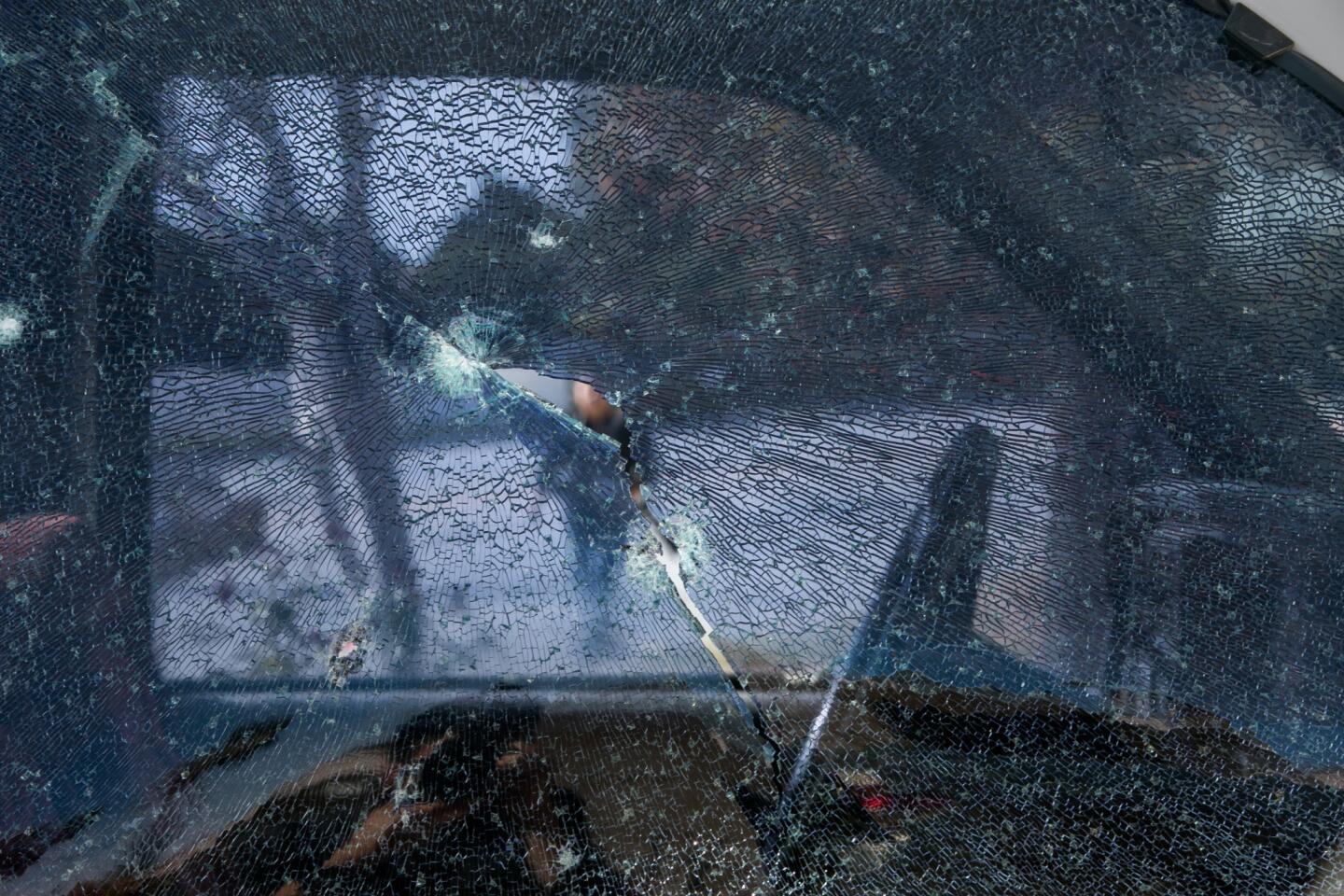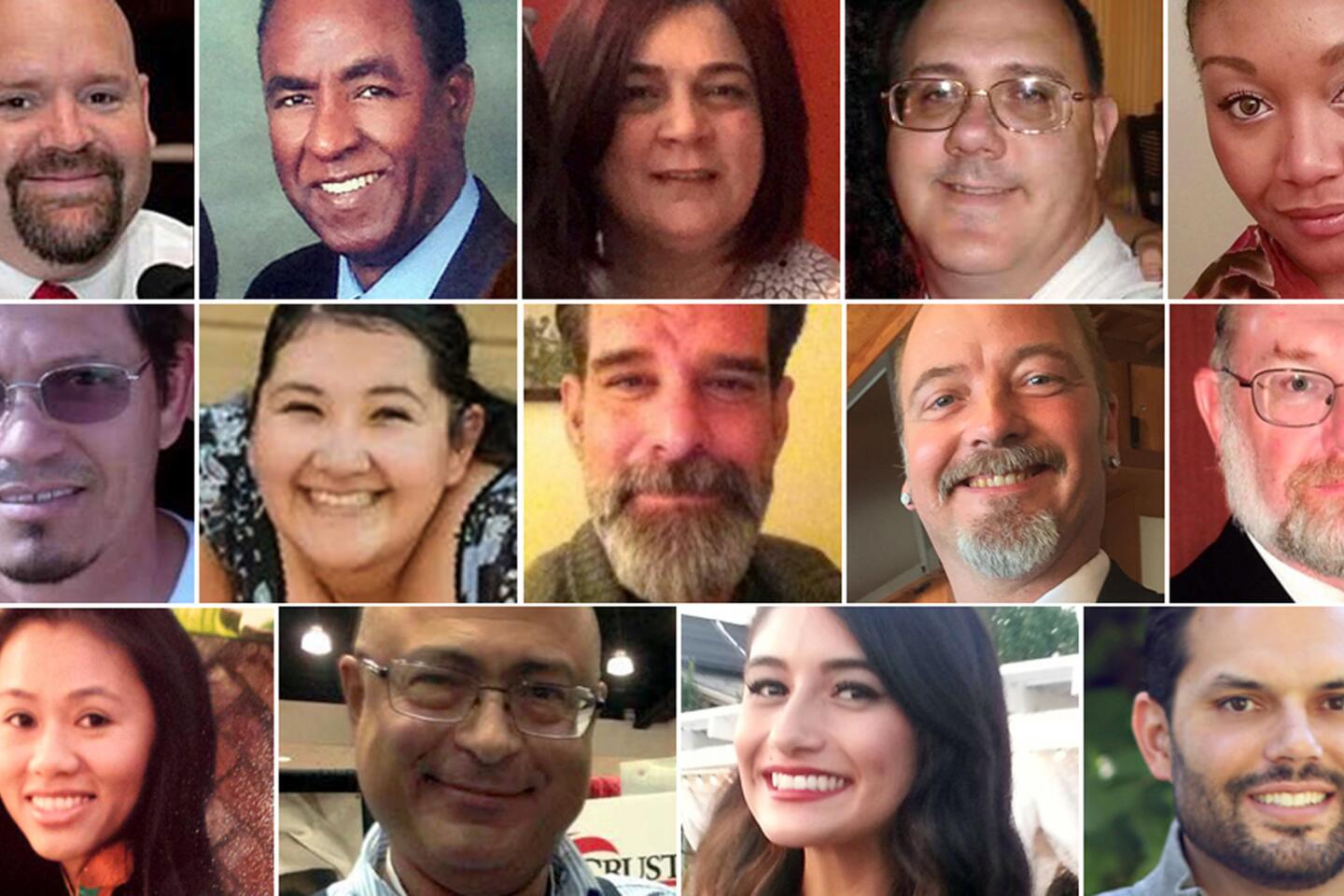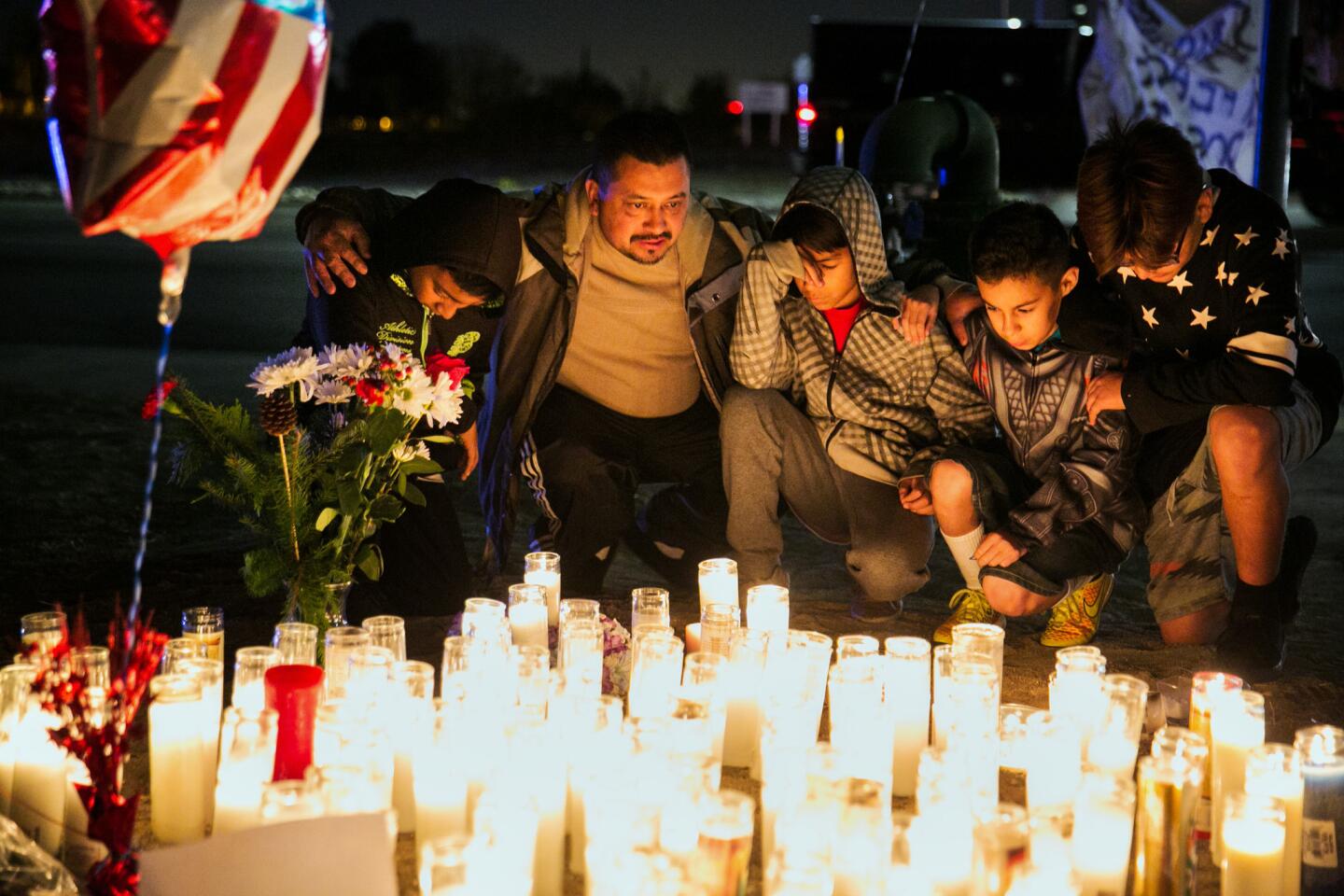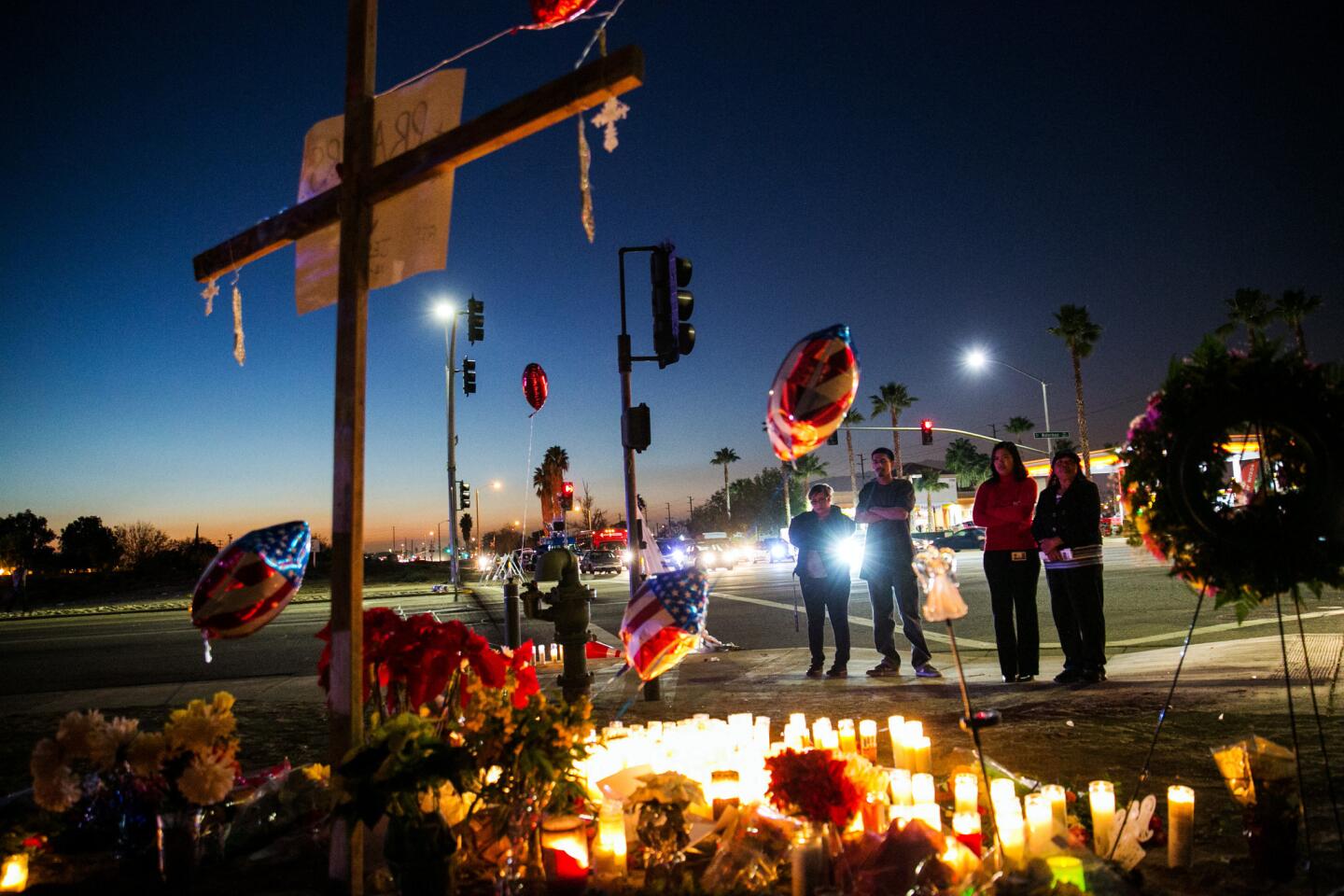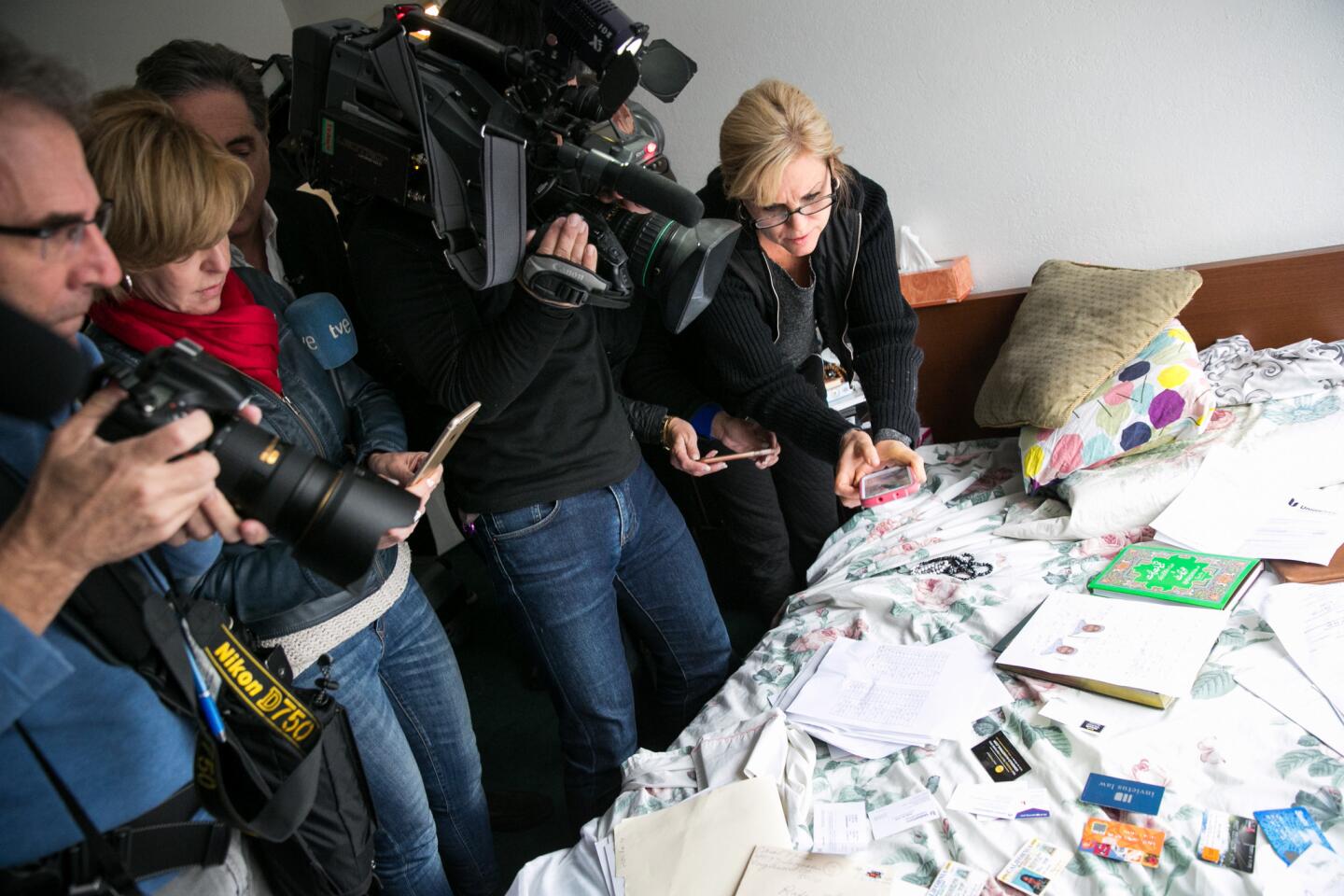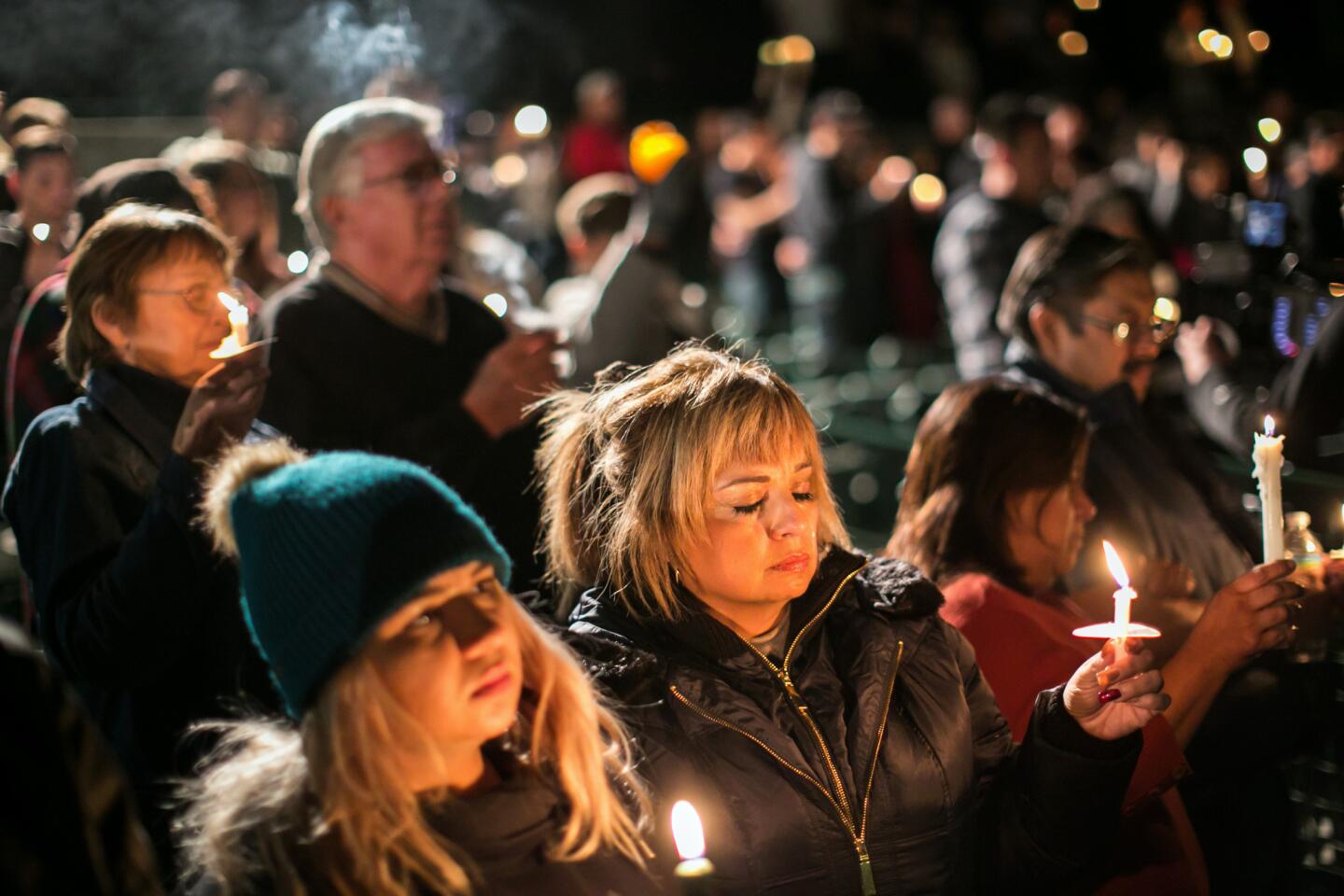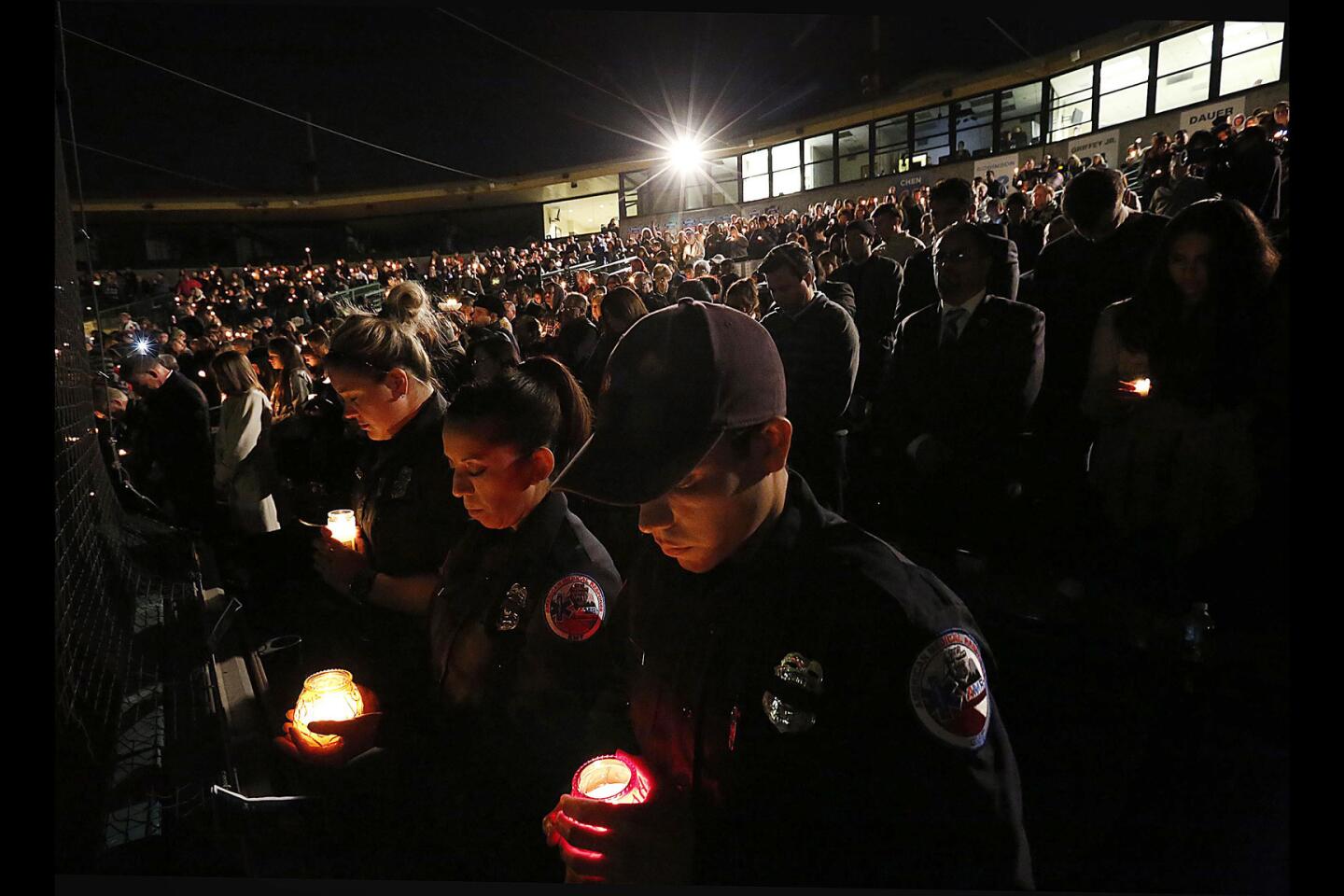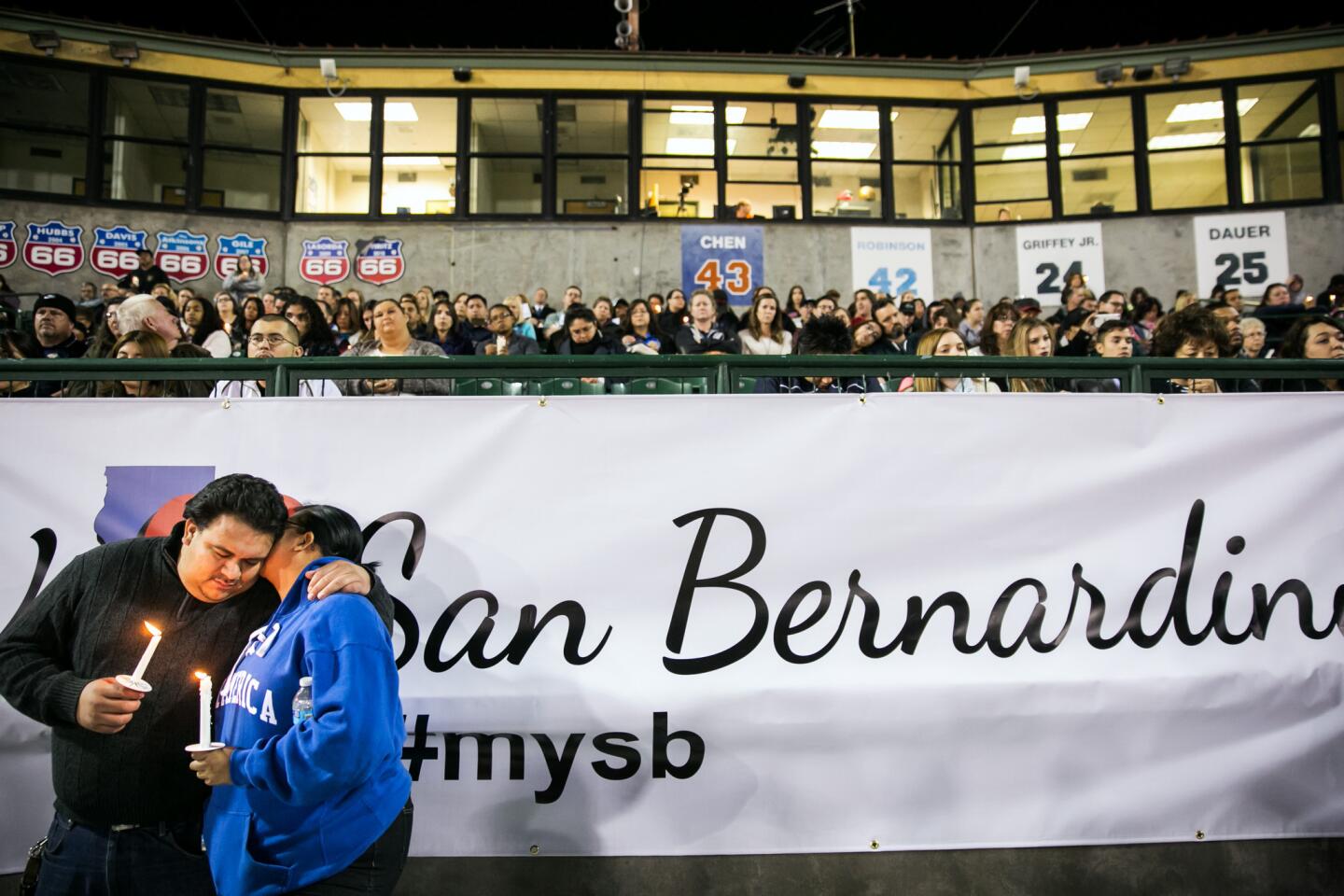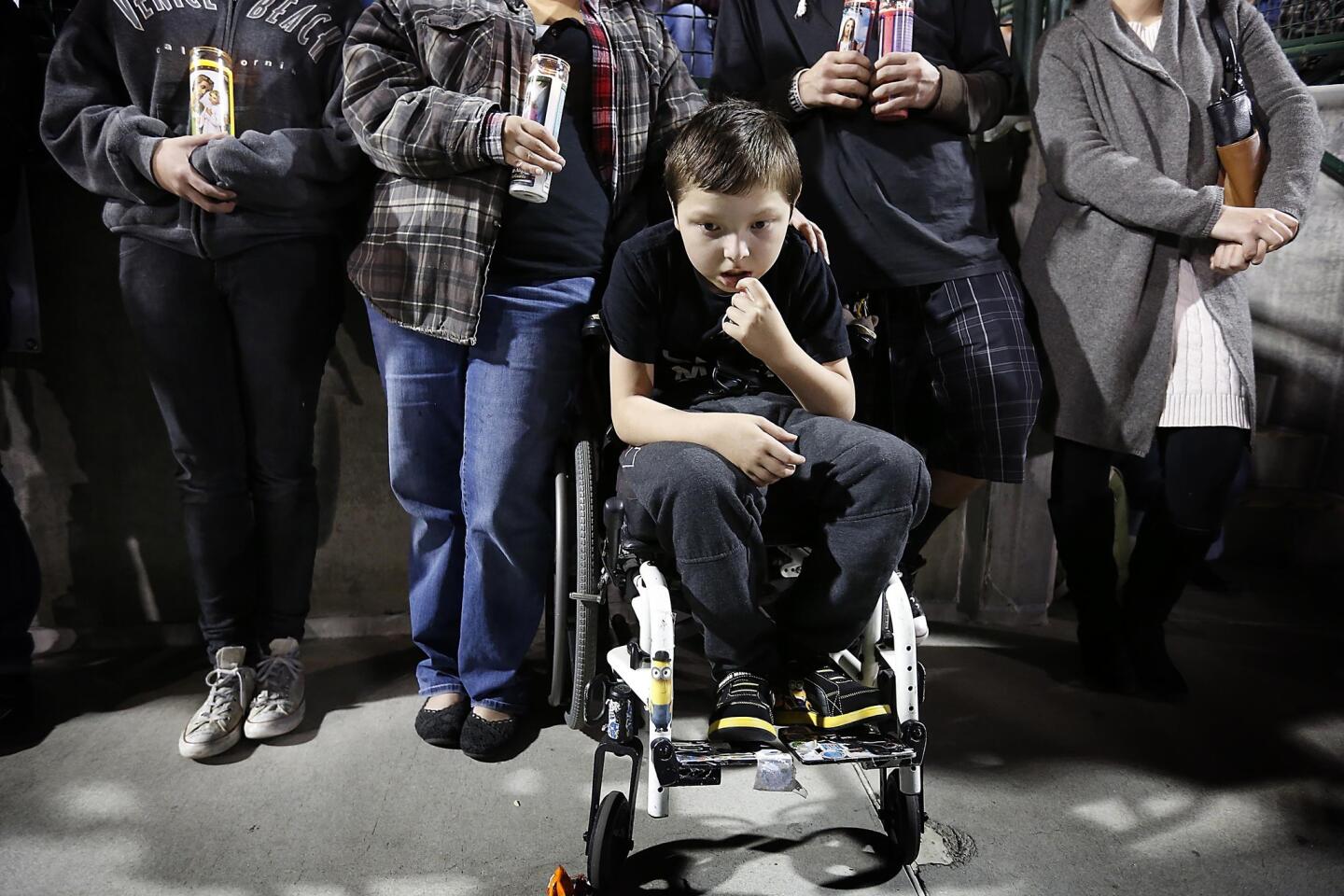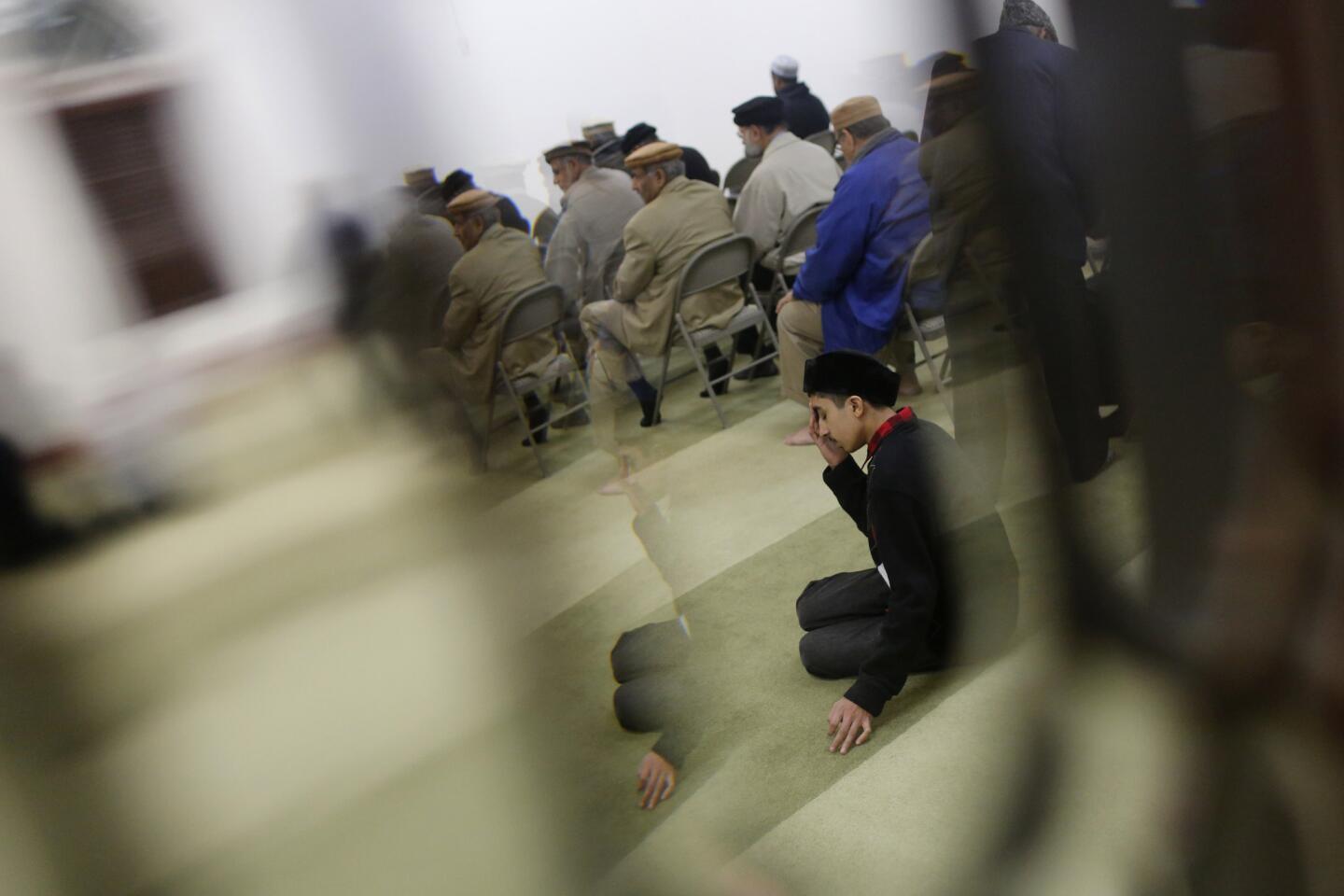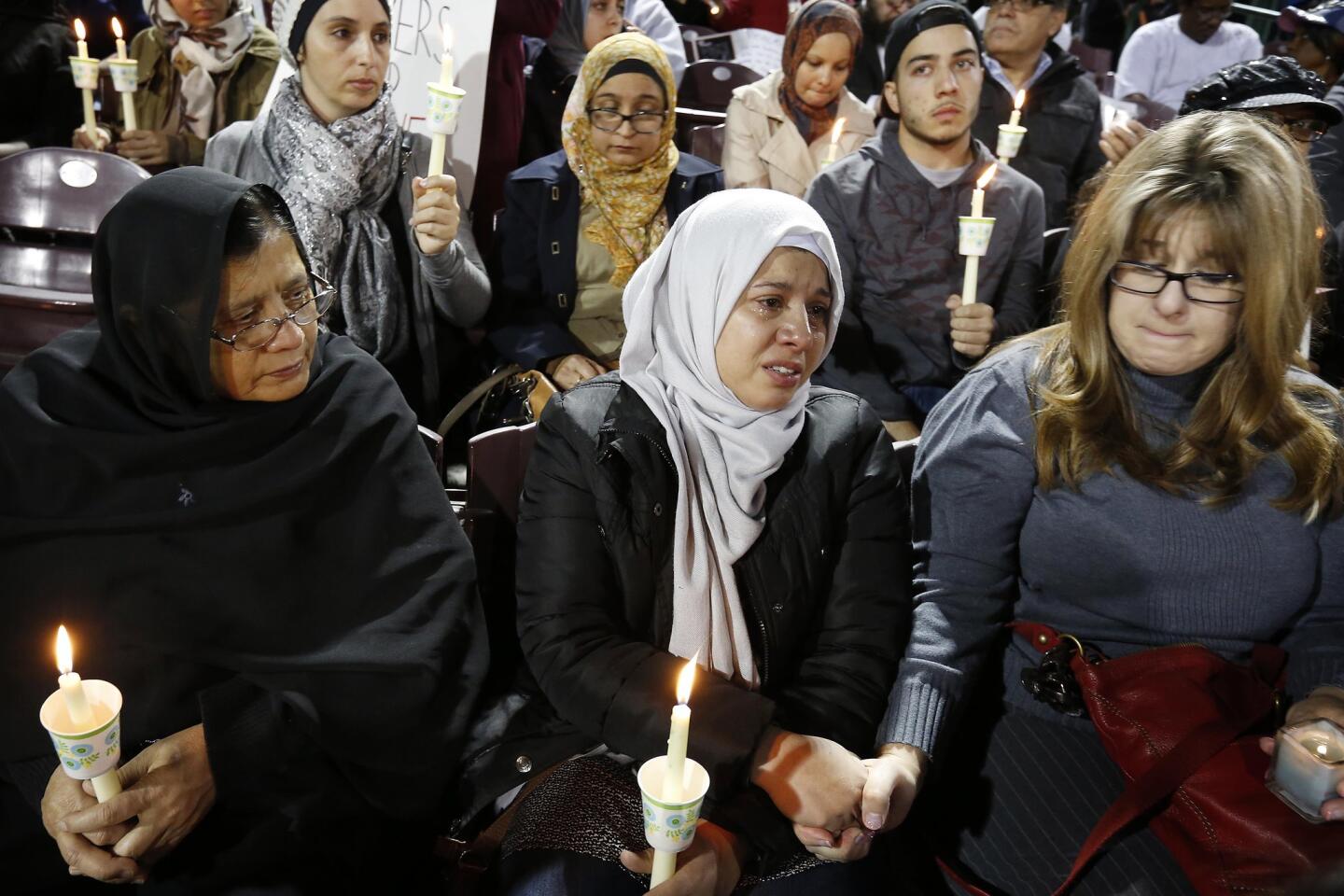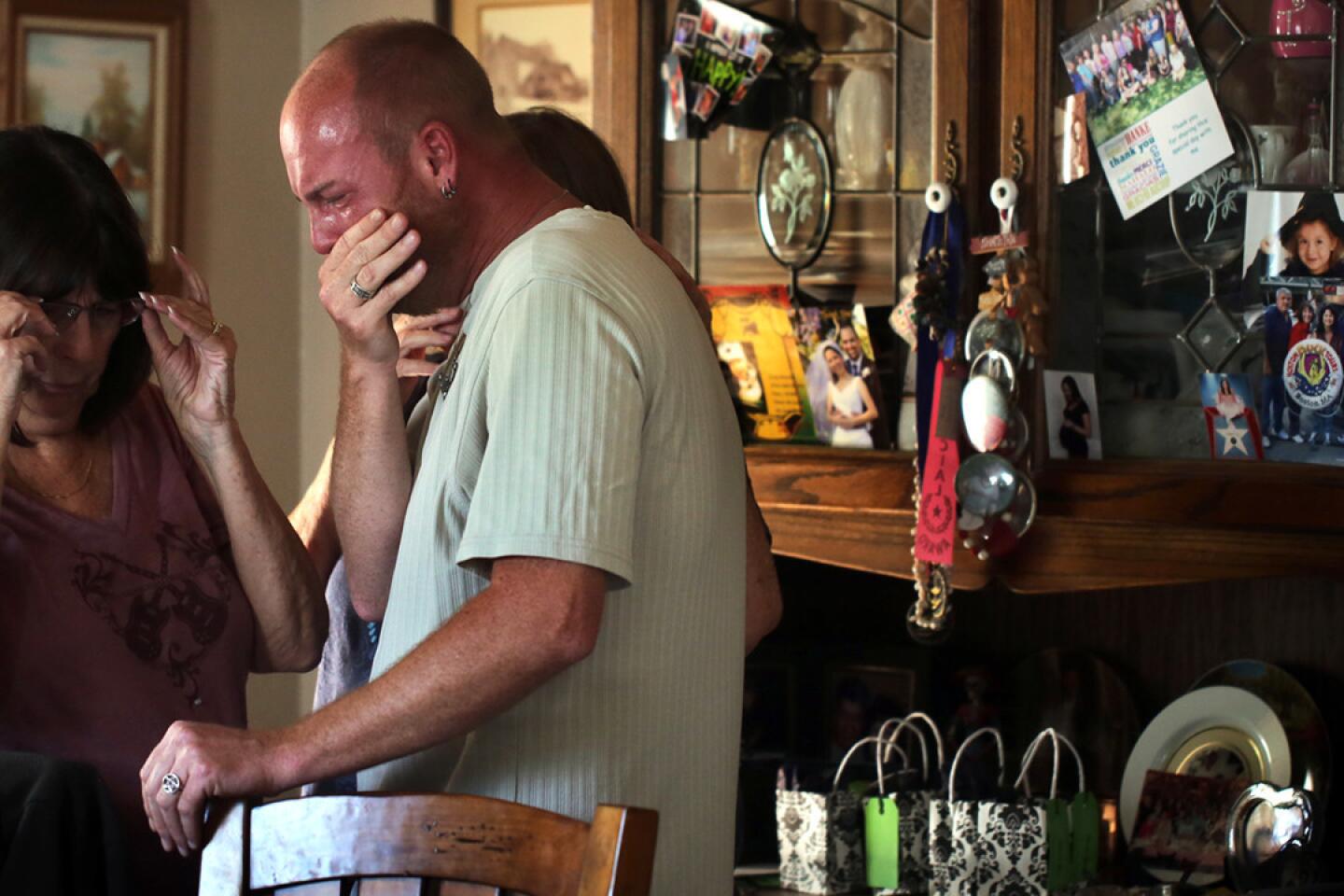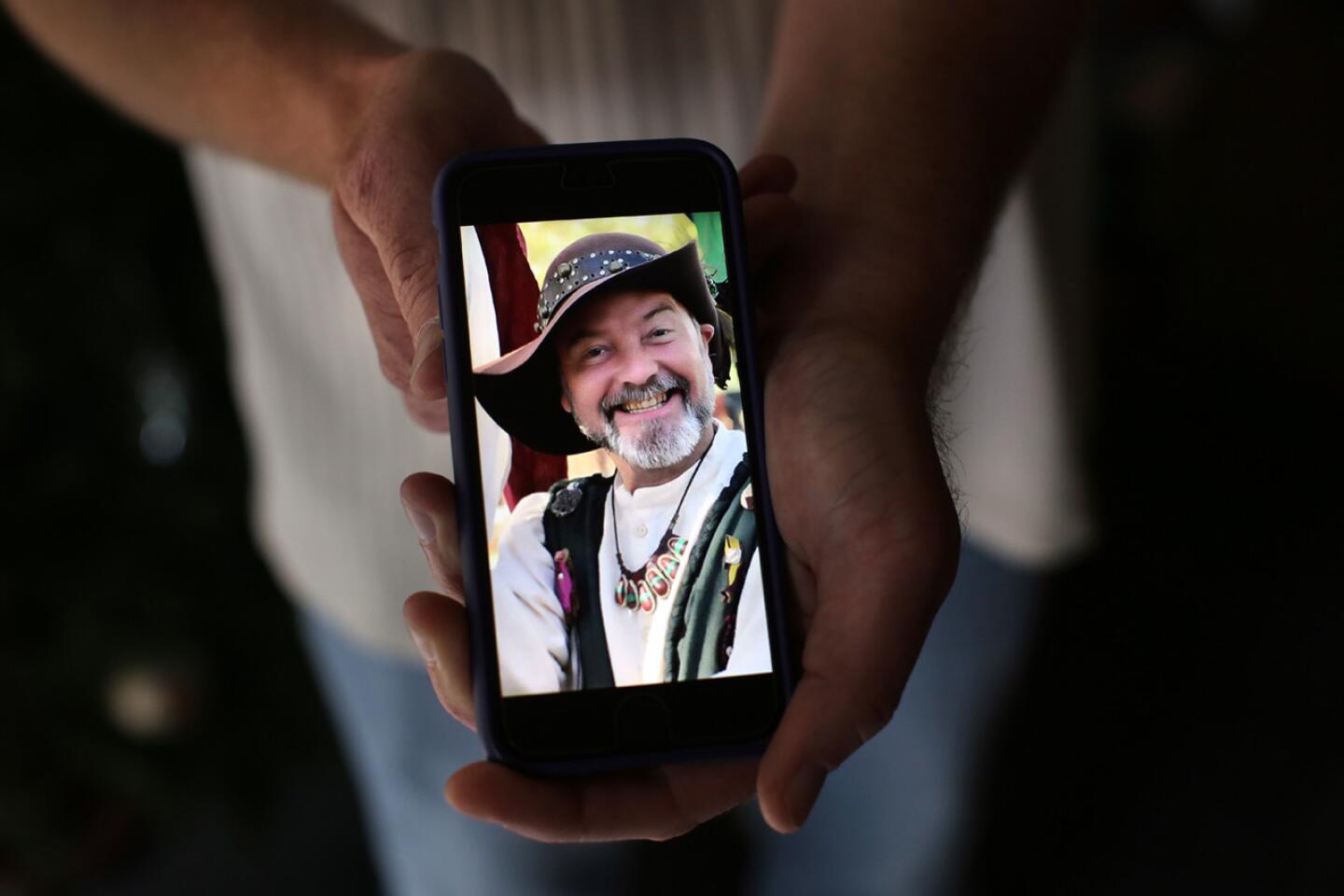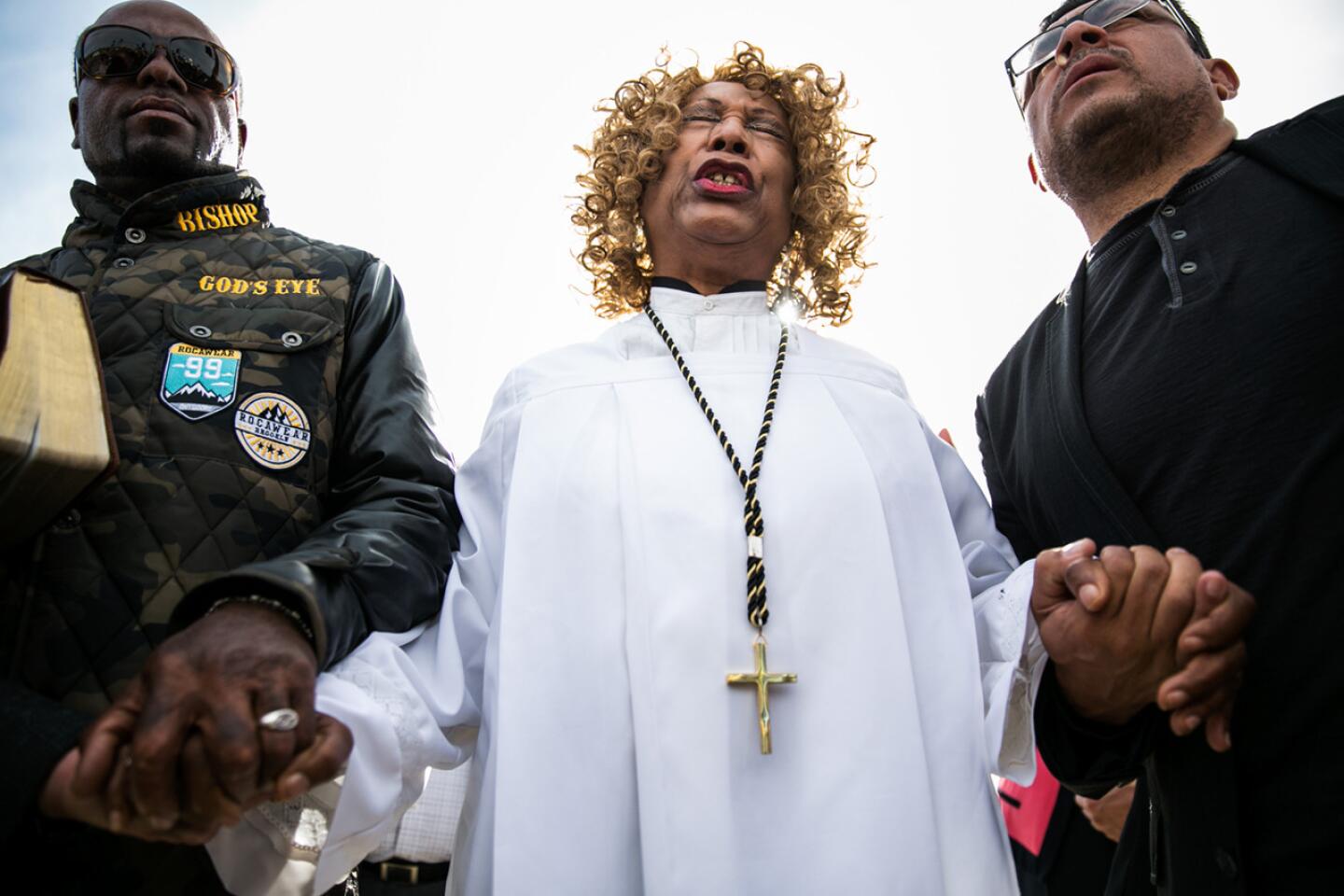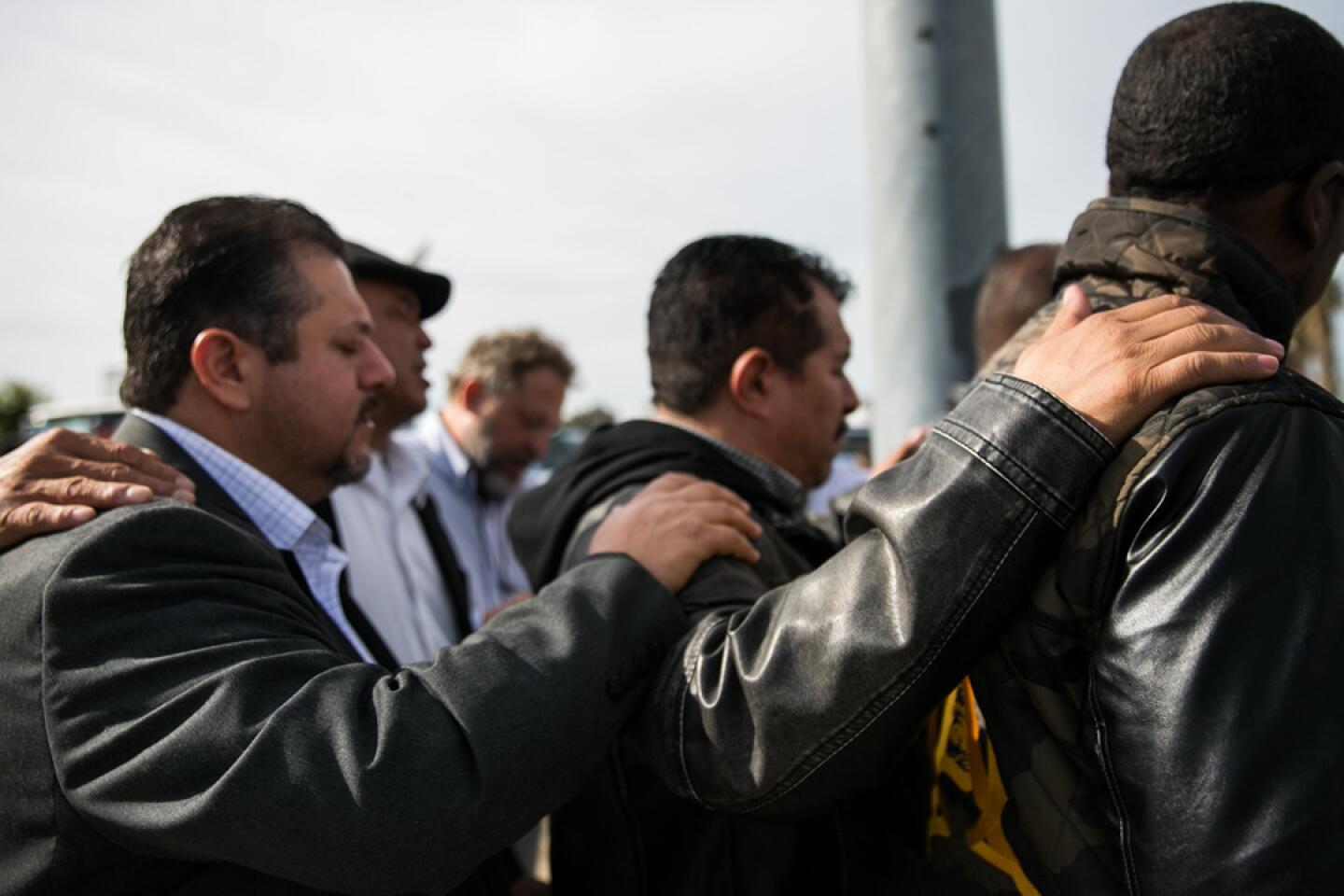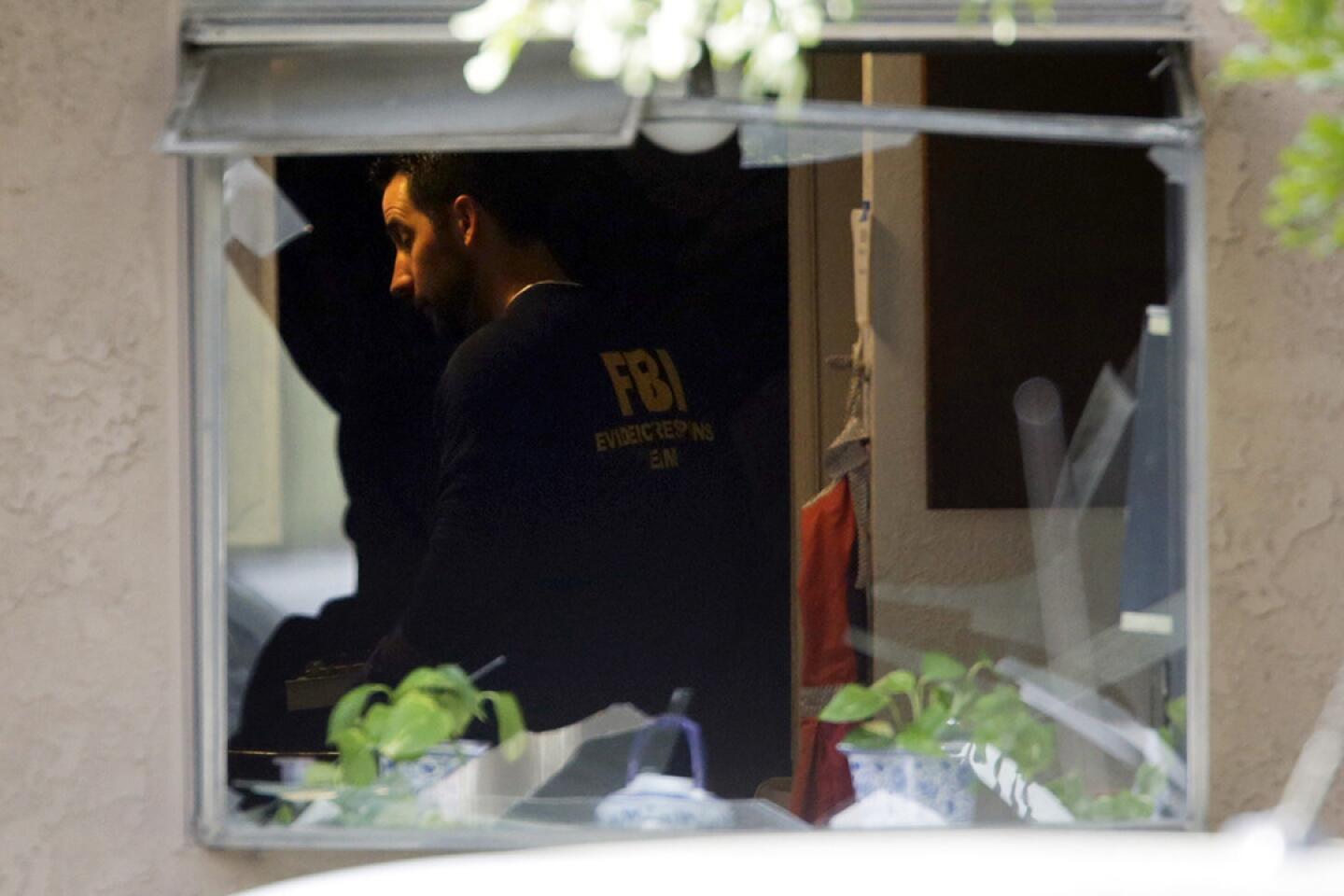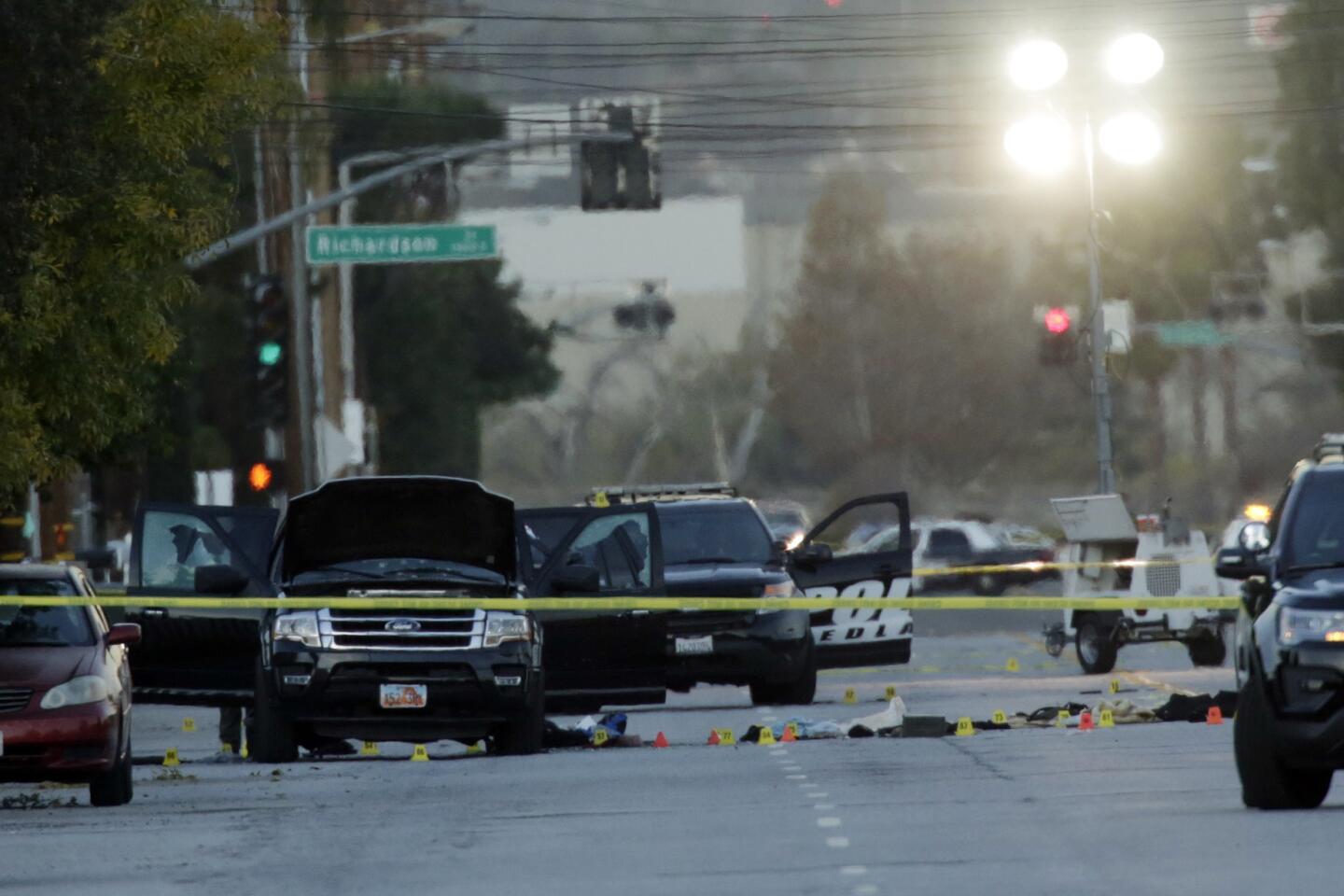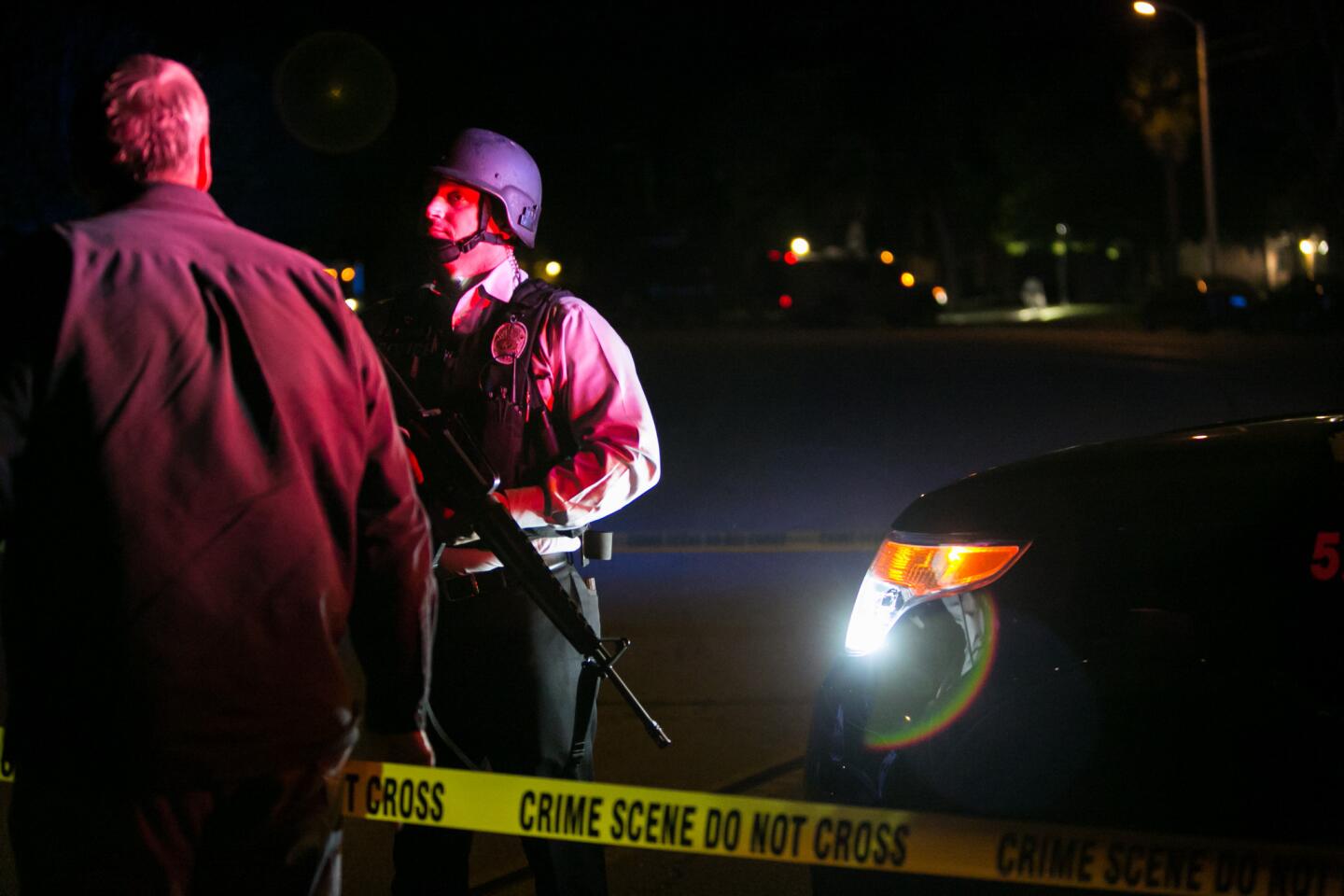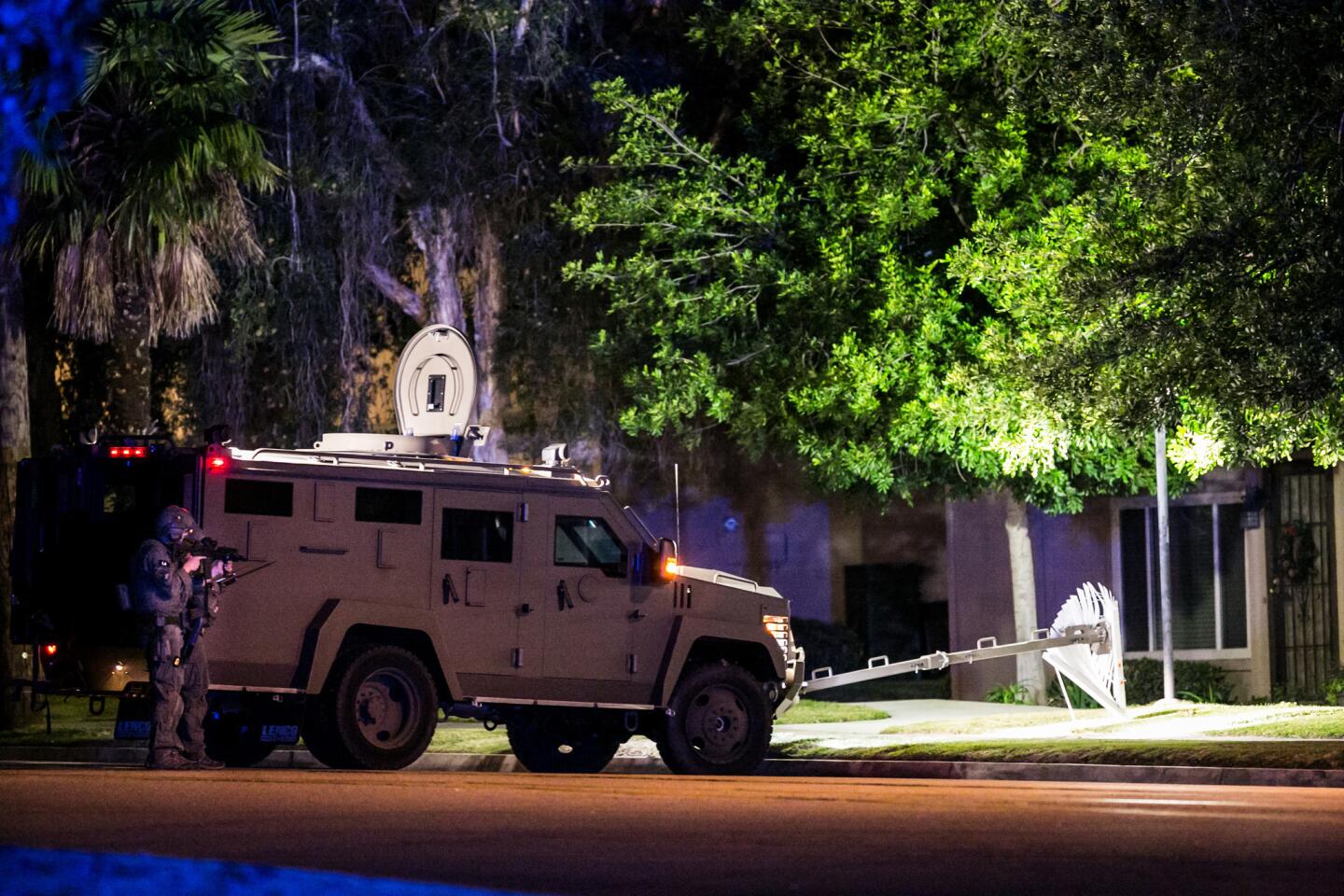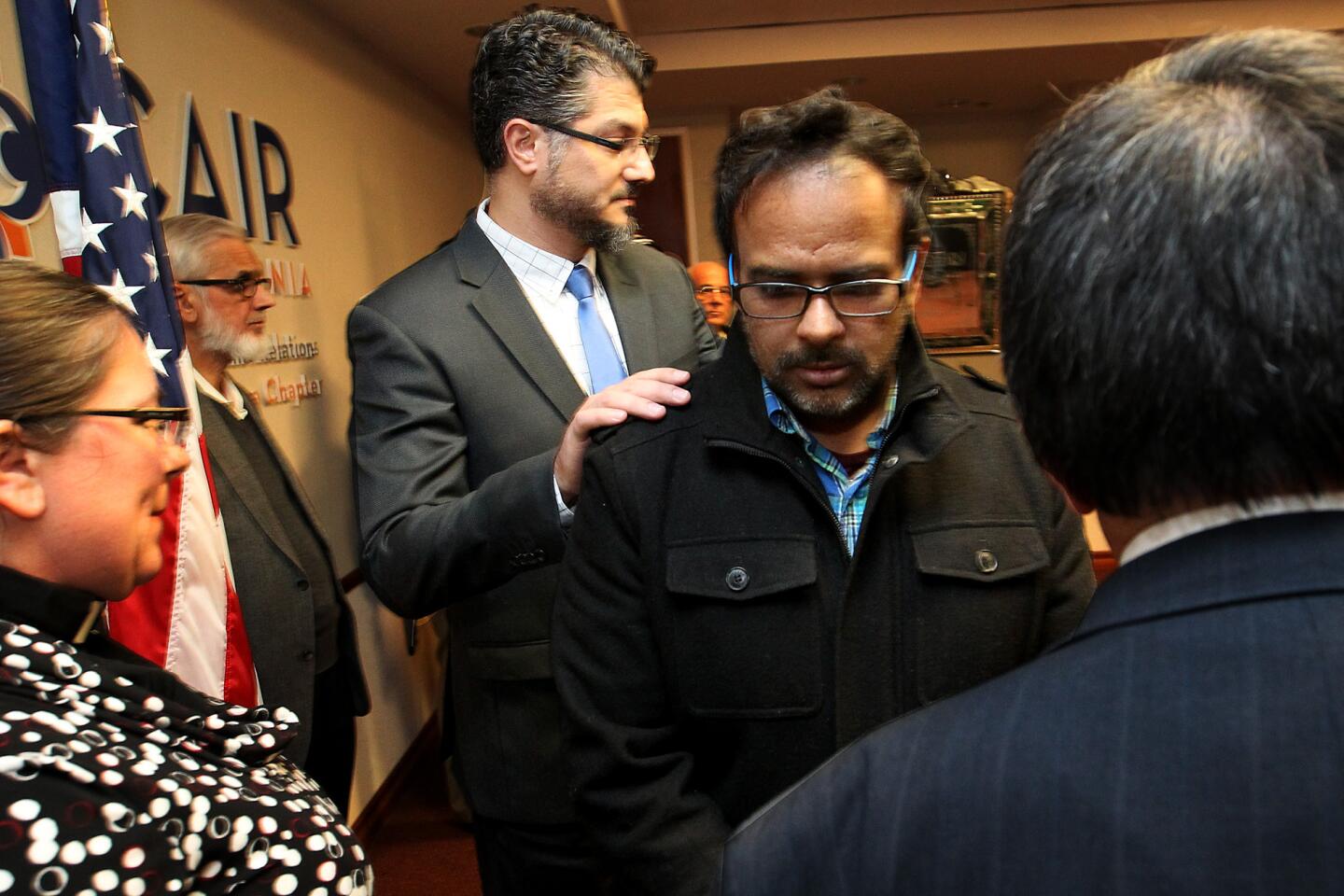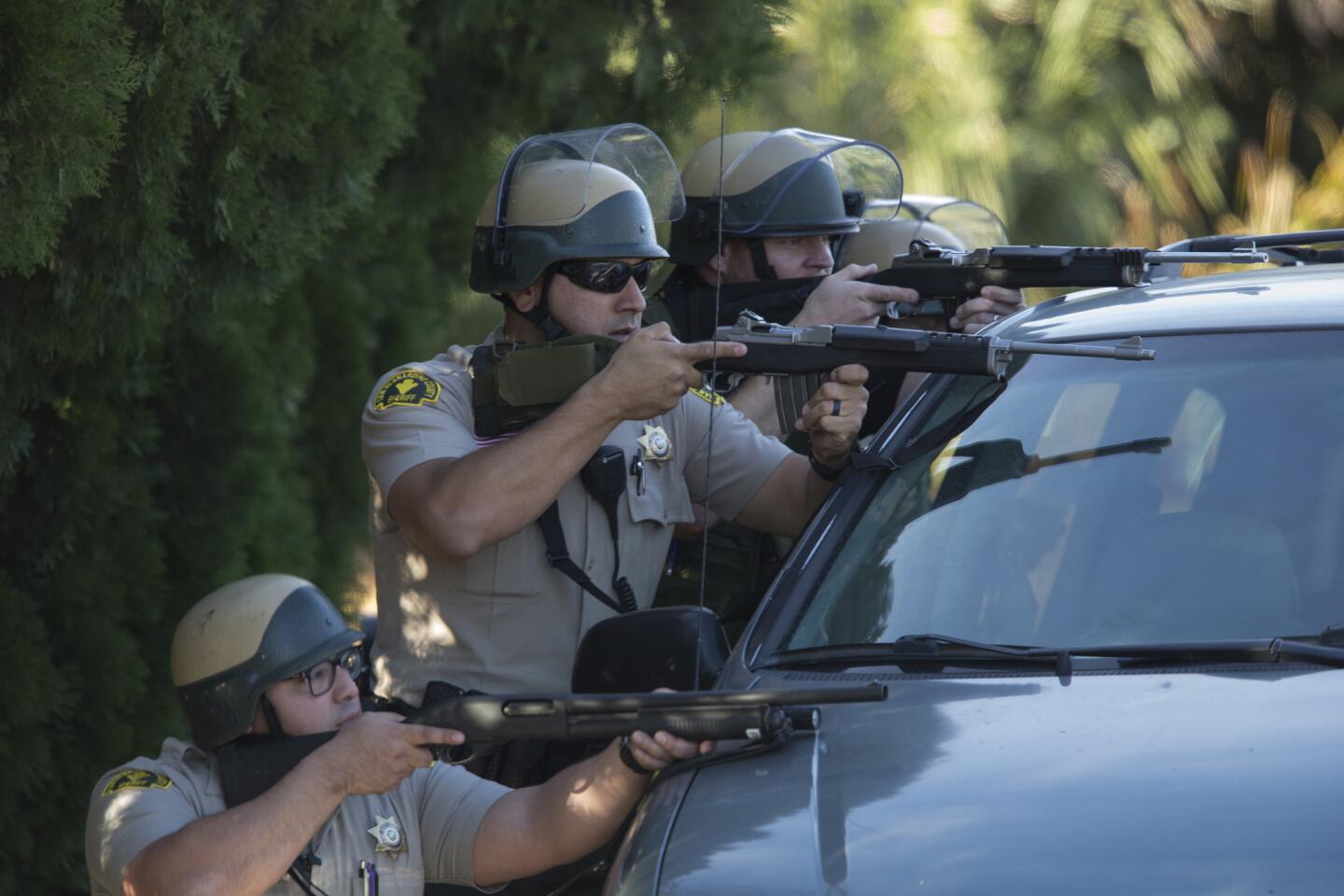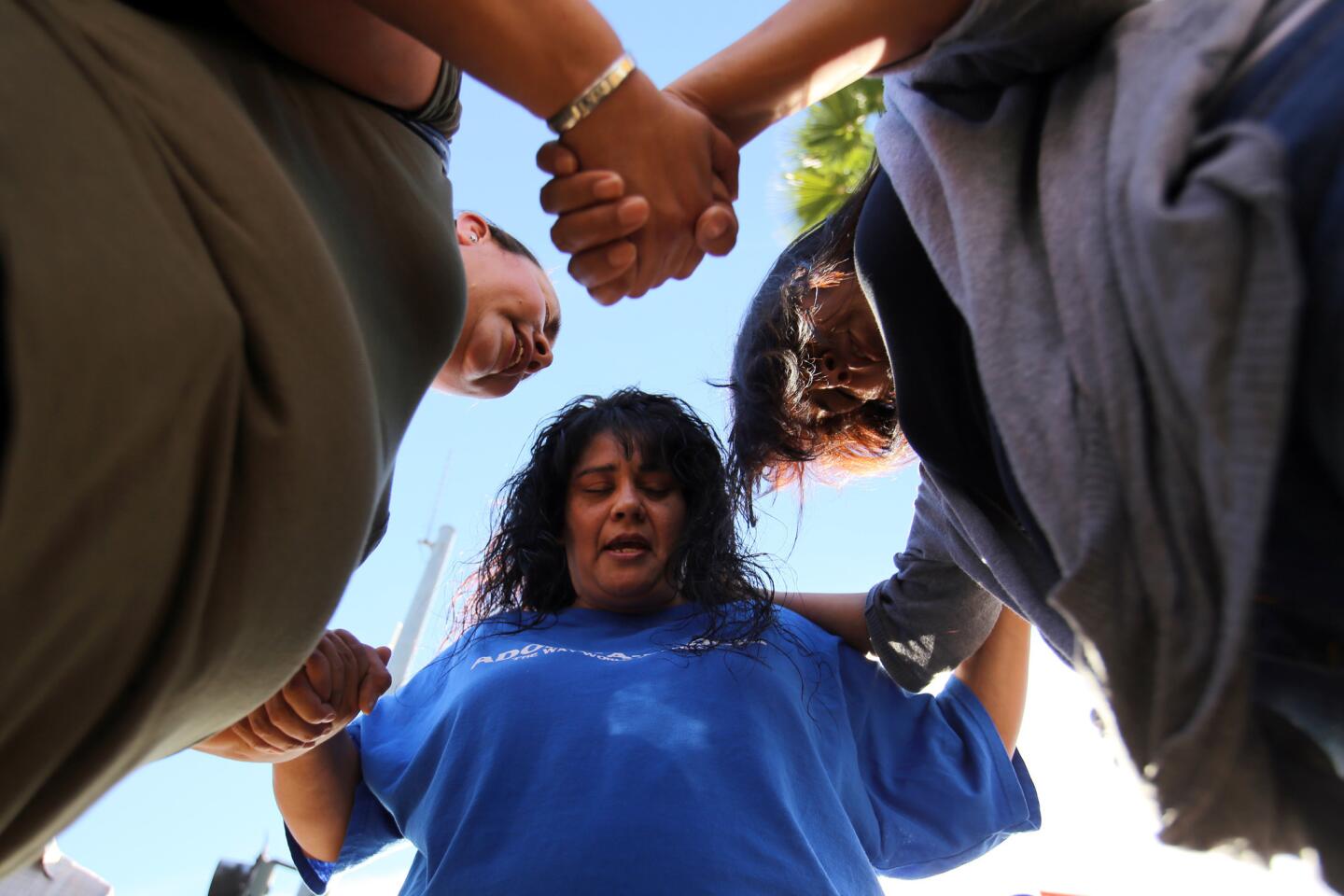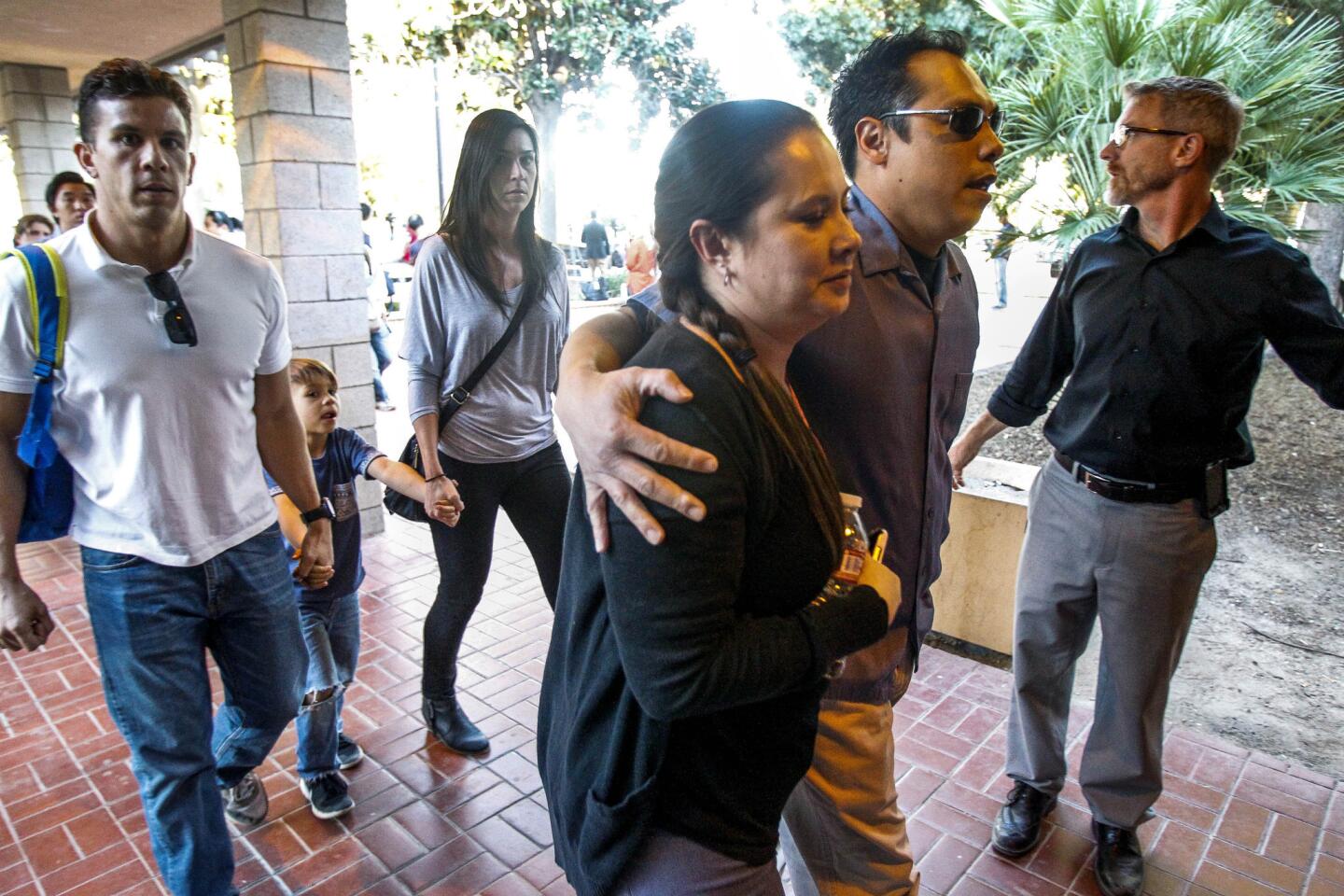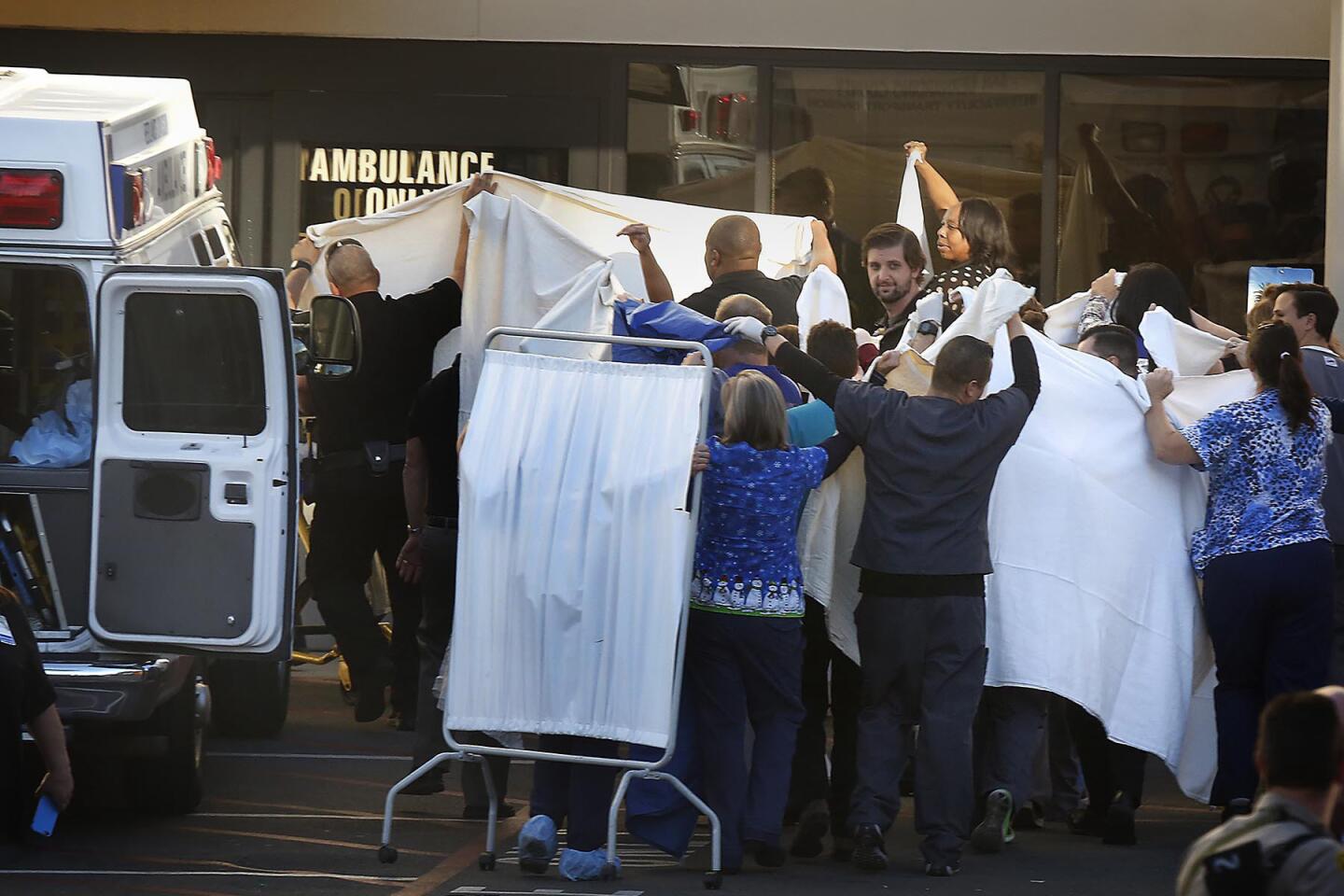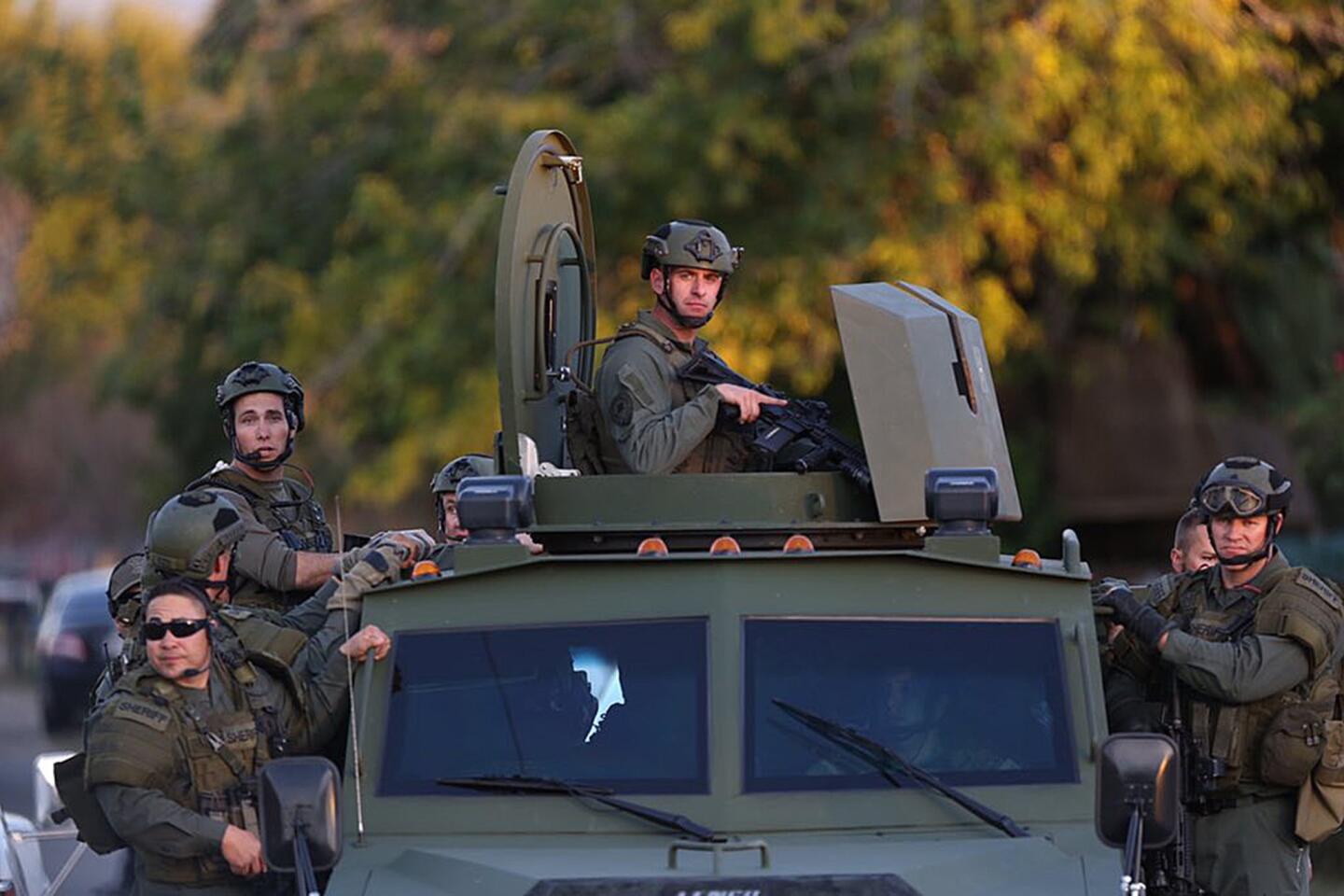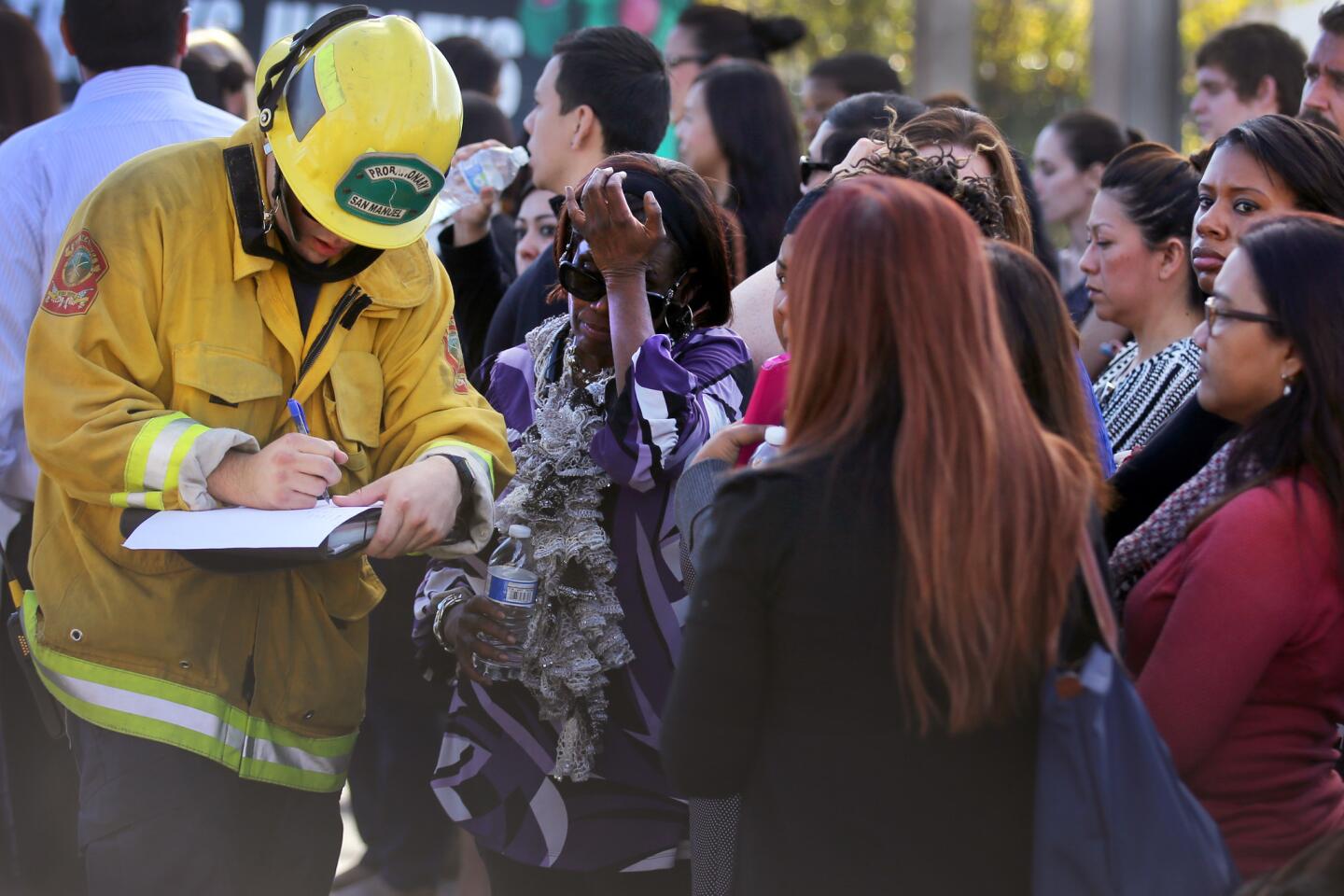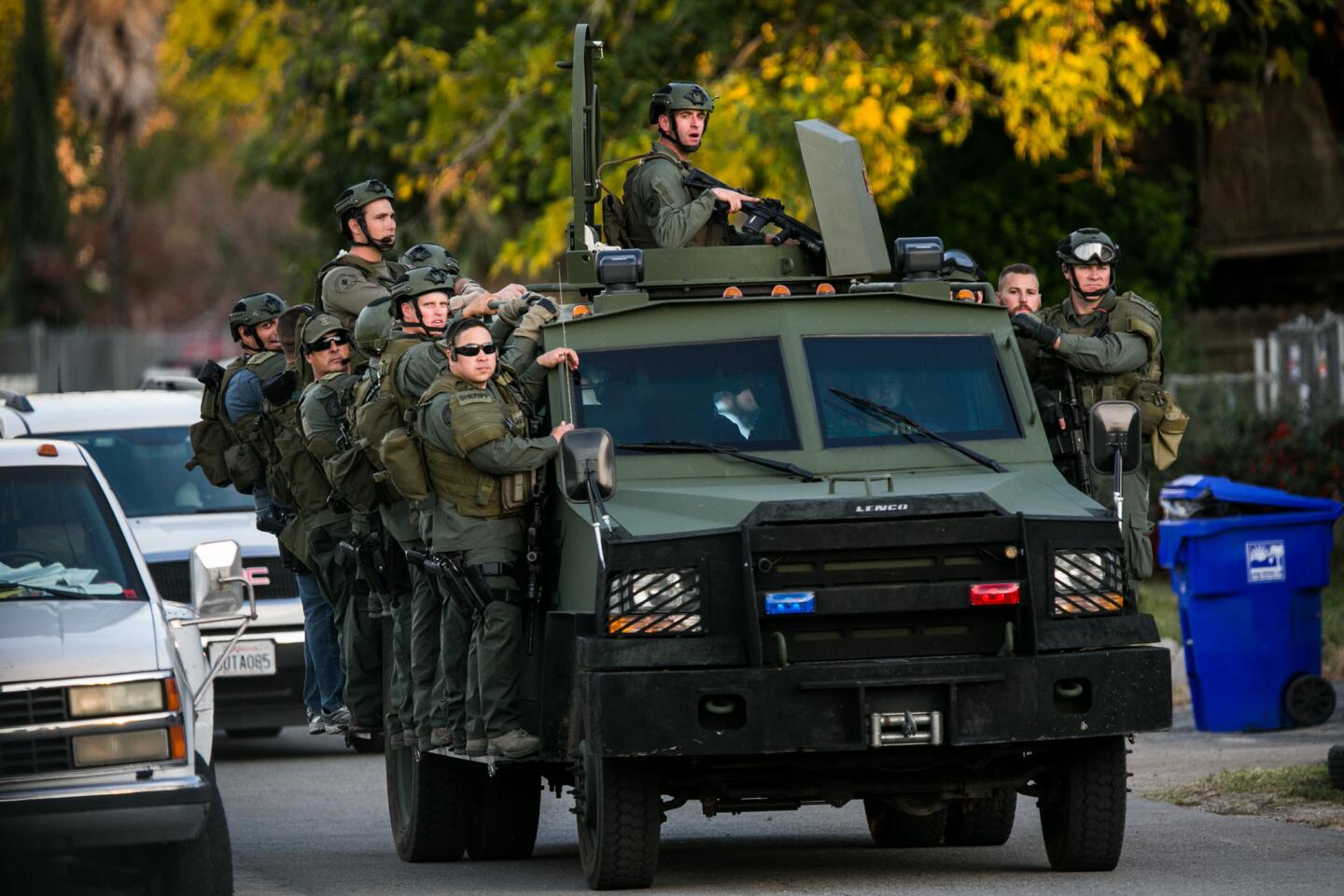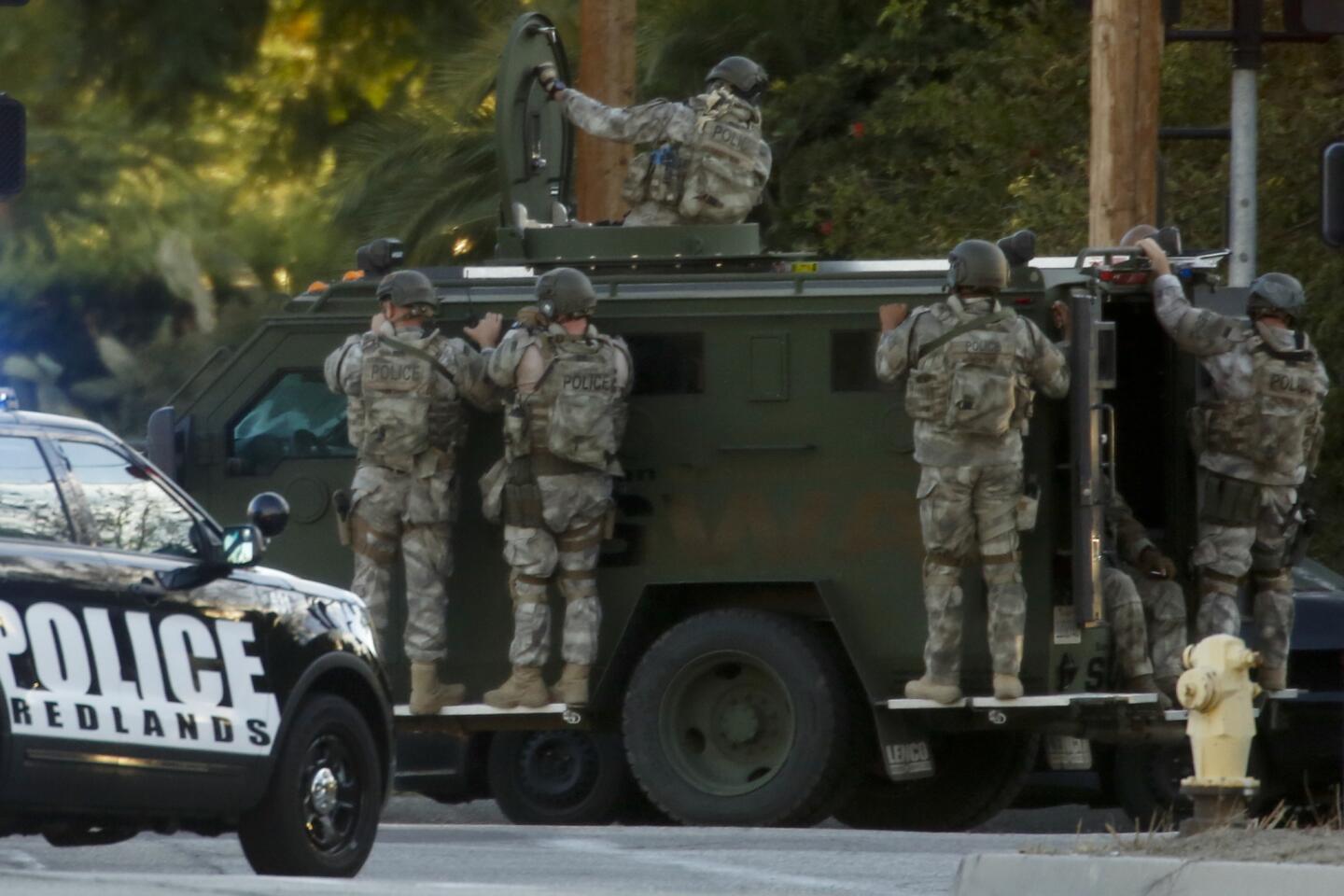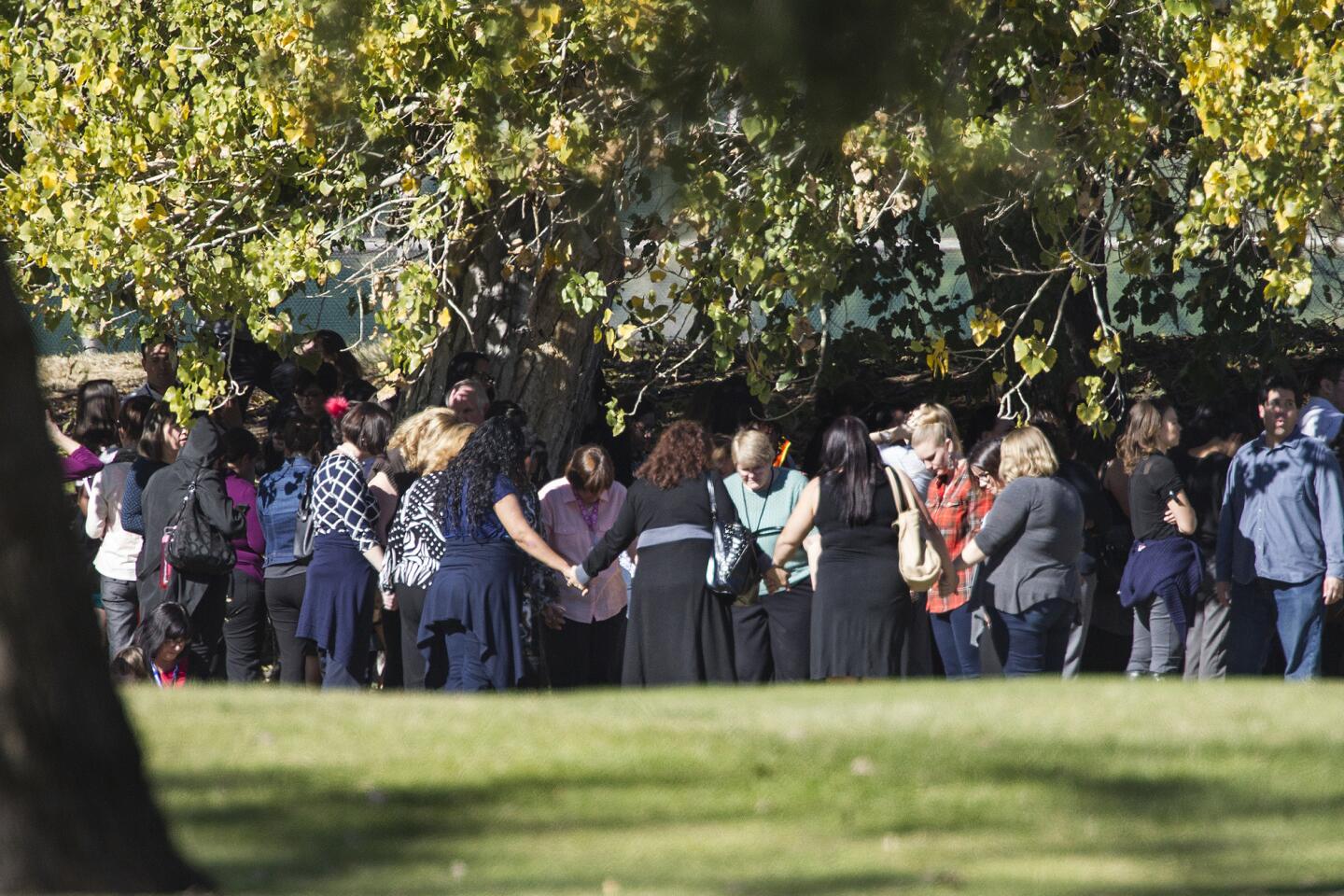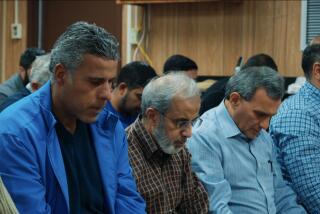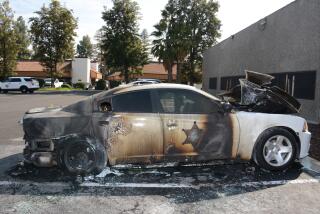One brother hatched a terrorist massacre, the other served his country in the U.S. Navy
- Share via
One brother was responsible for the deadliest terrorist attack on U.S. soil since 9/11. The other brother served his country in the U.S. military.
As investigators probe the San Bernardino massacre, they are trying to understand the family dynamics of shooter Syed Rizwan Farook.
Farook grew up in Southern California and carried out the attack with his wife, Tashfeen Malik, who was born in Pakistan and came to the United States last year after meeting Farook on an online dating site.
FULL COVERAGE: San Bernardino terror attack | Live updates
Growing up, Syed Rizwan Farook and his older brother Syed Raheel Farook were a study in contrasts, said a friend.
“Raheel was the loud guy. He liked to interact with everyone,” said Shakib Ahmed, who attended the same mosque as the Farook family. “Rizwan was always the quiet one.”
Ahmed recalled conversations with Raheel in which the older brother told him “he wasn’t into Islam.” Like many young people in the mosque, he said, Raheel showed up to make his family happy. He attended Friday prayers and went to the mosque for Ramadan, Ahmed said, but he also drank and had a girlfriend who wasn’t Muslim.
Rizwan was nothing like that, Ahmed said. He was much more religious.
The younger brother’s dedication to his faith — and his quick temper with Raheel — became clear one time when they all drove to prayers together, Ahmed said.
In 2003, Ahmed and his younger brother, Salman, were sitting in the car with Rizwan, waiting for Raheel to come outside.
They were running late. Rizwan began to lose his patience, Ahmed said, but the final straw came when Raheel stepped outside with his hair still wet from the shower and said he would just need a few more minutes.
“Rizwan was yelling. He was cursing,” Ahmed said.
Rizwan was a serious person, Ahmed said, and didn’t appreciate his brother’s nonchalance.
“Raheel just said, ‘All right, all right,’ like it was nothing. He was laid back,” Ahmed recalled.
Rizwan never lashed out at friends, Ahmed said. He only saw him get angry with his brother.
“Rizwan was kind of the boss, even though he was younger,” he said. “But he was really nice to us.”
From 2003 to 2007, Raheel served in the Navy, mostly on the aircraft carrier Enterprise, according to military records, and received two medals of service.
Currently, police in Corona are investigating an allegation of domestic violence against Raheel.
Officers were called to his home about 2:30 p.m. Saturday after an unidentified woman reported a domestic disturbance, said Corona police Sgt. Paul Mercado.
Detectives returned to the home Monday afternoon for followup interviews. On Tuesday, they forwarded the case to Riverside County prosecutors for a possible charge of misdemeanor domestic battery, Mercado said.
A spokesman for the Riverside County district attorney’s office confirmed the office was reviewing the case.
Farook, 30, has not been arrested or charged. He could not be reached for comment.
Allegations of domestic violence were raised when the Farook brothers’ parents divorced, according to court papers reviewed by The Times.
In multiple requests for domestic-violence protection, their mother detailed the abuse she said she endured and that her children witnessed: Her husband had once drunkenly dropped a TV on her. Another time, he pushed her toward a car. After a drunken slumber, he allegedly shouted expletives and threw dishes in the kitchen, records show.
In the weeks before the San Bernardino massacre, Syed Rizwan Farook and Malik obtained a $28,500 loan — an advance that authorities believe may have helped them acquire firearms, ammunition and components to build explosives at the last minute before last week’s attack, two federal officials said Tuesday.
The loan offers investigators a key new detail as they try to unravel how Farook and Malik plotted the deadliest terrorist attack on U.S. soil since 9/11. The money could also explain how they managed to pay for target practice time at local gun ranges, as well as the rented sport utility vehicle they used during the Dec. 2 attack, the officials said.
Authorities were also looking into whether they left a device — made up of three bundled pipe bombs and remote-control car parts — that was apparently intended to harm police responding to the shooting at the Inland Regional Center, according to a law enforcement source familiar with the investigation who requested anonymity in order to speak candidly.
Police radio chatter on the day of the shootings, in which 14 people were killed, mentioned a “suspicious device” in or near the conference room where the attack occurred. “We need to slow things down,” an officer ordered after the device was located. “I need you to advise all the units to move with caution.”
Left in a canvas bag, the device mirrored the crude explosives that dot the pages of Al Qaeda’s “Inspire,” a publication favored by radicals seeking guidance in planning attacks, multiple sources told The Times.
Bomb technicians do not believe the device would have detonated, the law enforcement source said, adding that the building’s sprinkler system was activated during the shooting and water damage could have caused the device to malfunction.
The global investigation into the attackers’ backgrounds and any possible ties to larger terror networks has examined the couple’s finances.
Farook, an environmental health inspector for San Bernardino County, earned about $50,000 a year while his wife stayed home with their 6-month-old daughter. They lived in a modest, rented townhouse in Redlands.
On Monday, the FBI said it appeared that Farook and Malik had been radicalized “for quite some time.”
Malik was a member of an affluent and politically influential family in a region of Pakistan where religious schools are known as incubators of Islamist extremism. She began posting extremist rhetoric on social media after she moved to the U.S. to be with Farook. Moments before the shootings, the 29-year-old declared allegiance to a leader of Islamic State on Facebook.
She had met Farook, 28, on a dating website. A Sunni Muslim born in Chicago to Pakistani parents, he noted that he was looking for “someone who takes her religion very seriously.” He once told an acquaintance how he appreciated that Malik wore a niqab, a veil that covered almost all her face, and did not embody today’s notion of a modern woman.
Federal investigators have been trying to determine whether Farook was influenced by Mohamed Abdullahi Hassan, a former Minneapolis resident known as Mujahid Miski who has served as a recruiter for Islamic State. Hassan surrendered Monday to authorities in Somalia.
Hassan is in the custody of the Somali National Intelligence and Security Agency in Mogadishu, and U.S. officials are discussing his case with government leaders, a State Department spokeswoman said.
Meanwhile, many of the 21 injured victims have gone home. Loved ones have been mourned, vigils held. And a community left to make sense of a day when a holiday party became a scene of horror has attempted to heal.
Times staff writers Sarah Parvini, Jack Dolan, Joel Rubin, Joseph Serna, Hailey Branson-Potts, Stephen Ceasar, Matt Stevens, Lauren Raab, Paloma Esquivel, Tony Barboza, Kate Mather, Soumya Karlamangla, Rong-Gong Lin II, James Queally, Veronica Rocha, Taylor Goldenstein, Dexter Thomas and Christine Mai-Duc contributed to this report.
MORE ON SAN BERNARDINO
San Bernardino shooting victims: Who they were
After San Bernardino attack, rattled residents reach for their guns
Why Muslims should not have to apologize for San Bernardino shooting
More to Read
Sign up for Essential California
The most important California stories and recommendations in your inbox every morning.
You may occasionally receive promotional content from the Los Angeles Times.
